Each month, Blue Heron Review will post a heart-centered, poetic offering—either from one of our contributors or a guest author. Check back for messages of inspiration, support, and nourishment for the soul.
March 2020 / Lorette C. Luzajic
The March 2020 Blue Heron Review Featured Author is Lorette C. Luzajic
Disappointment
after Water Lilies, Claude Monet, 1919
I imagined Monet in his mist, shrouded by morning’s last weight. Claude evaporating with the water, pushing pond lilies to the side of the pirogue with a tender oar, lifting the slimy pads to new light with a lover’s hand. I’d read about his love affair with the lilies, felt flush thinking of the intimacy of his long looking. The caress of paint, in pursuit of pure beauty, how he dusted every water lily pad at dawn. It was an obsession against nature interfering with nature, recording truth that isn’t truth, the artist taking her virginal, wiped clean, back to the start, again and again. The spell snapped like first love, shattered, upon learning about the maid. Claude hired a cleaning lady to tend to his passions, someone to dust and wipe his water flowers before he painted them. Another arrow through the heart of poetry. Well, then. Morning has broken.
The Piano Man
after The Pianist, Moshe Rynecki, c. 1930s
The first time you visited him at the hospital, there was a gray, thin man who played at the piano. His hands were shaking, but his notes were pristine white flames. By chance you and your friend are talking about those years when you would see him like that, shuffling to the visitor station in ill-fitting jeans and fuzzy slippers. The memory brings the musician to mind, but your friend shakes his head when you ask if they stayed in touch. The piano player is gone, he tells you. Infuriated by the voices in the treble bridge, he’d hurled himself through that double paned window. Landed right on the doorstep of the shop where they made the toffee twist donuts you’d bring with black tea. You can still recall what the man sang. I’m sure that I could be a movie star if I could get out of this place… The ragged edge of him quietly burned a hole right through you. Sad, isn’t it? your friend says, and you both know what the other is thinking—how easily it might have been one of you, instead, how hard you had both tried to abandon ship along the way. You think about the piano man on the psych ward at Mount Sinai, how he might not know that anyone had noticed his music, that anyone might notice him missing. Or maybe he did. It wouldn’t be enough. You tell your friend you are bereft during the times that you lose touch with each other. Sometimes it’s like that: you are seized with a small and sudden panic over circumstances you can’t control. You think about the thin man, how he had already been a ghost. His heart of glass, that pale blue flare.
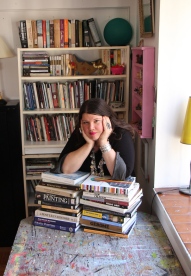
About the Author
Lorette C. Luzajic is an award-winning mixed media artist whose collage paintings are collected internationally. She is also a widely published poet, twice nominated for Best of the Net and the Pushcart Prize. She also writes a column about pairing Wine and Art for Good Food Revolution. She is the founder and editor of The Ekphrastic Review, a journal devoted to writing inspired by art. Visit her at www.mixedupmedia.ca
Pretty Time Machine (2020)
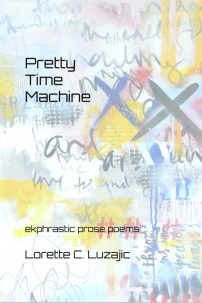
Book Review of Pretty Time Machine
“Poet as Pilgrim” by Mary McCarthy
Pretty Time Machine artist and writer Lorette C. Luzajic’s new book, is like a modern day pilgrimage through a fallen world, whose patron saints are Dante and Basquiat. There is no guide, no map but the one created, step by step, between the landscape of a past full of losses, dark as a battlefield littered with the unburied dead, and the struggle for life, survival, healing and redemption. How can there be a future after such a nightmare of grief? Luzajic’s poems refuse to deny or escape, they look with a clear eye and speak in language gripping and honest, yet filled with generosity and tenderness
With so many losses, abandoned and widowed again and again, watching as friends and lovers fall like plague victims, broken by abuse and addictions, Luzajic continues, mind and senses open and active, to engage in the riches of the world, with wonder and exuberance, making things new. The poems are sumptuously rich, in language, image and detail. They house a wealth of unforgettable characters, each unique, individual and holy, ultimately as unknowable as gods or angels. The pilgrimage is also geographical, coming from journeys in Columbia, Chile, Israel, Mexico, Spain and the US, each as full of wonder and blessing as any pilgrims’ shrine.
In a world full of pain, hell is not punishment but “a re-enactment” (Pride and Purgatory) these poems work to do more than survive, to know finally “there is more to life than death.” (August, and Everything After) Many deaths are remembered, among the addicted, the homeless, the broken and the lost, but the largest and most central is the death of the poet’s father. As we read, we go through the process with her, of finding the words that can hold the enormity of this grief, the one we all carry, the one we can’t avoid, the one that could break us. And miraculously, that process of naming, creating, making art, can transform—can allow us to become, like those small shining toreadors, “satin and gilt swans, dancing between life and death.” (The Encyclopedia of Obscure Sorrow)
The fact that each of these poems is an ekphrastic response to a work of art is essential in the way it sees creative work, past and present, as a conversation in the greater arc of art and history. Here the work of artists becomes an ongoing process of transformation that moves what is fragmented and disconnected into a new way of seeing, reflective of a new time and place. Here there is generosity and understanding, that sees all who flew once, or even seemed to, like Tommy Reyez Martinez, the exiled dancer dying of HIV, with love and tenderness, no matter how impossible or foolish it may seem, (Ridiculous Heart).
Each vignette stands alone, and yet is part of the larger movement. Each is particular and intimate, and yet part of a shared experience. It is hard to put the book down, even as you want to savor each piece. There is always the sense that all these stories, these people, these fragments, make a living, beautiful whole, a sum impossible to see without each and every smallest part—the worst with the best, the lovers and the lost, the cruel and the kind. Finally, we are all in motion, traveling, on pilgrimage, moving through time and the holy places Luzajic visits, finding the words to redeem our grief. This is a journey that will continue rewarding with each new reading, one you won’t forget.
About the Reviewer
Mary McCarthy is a poet who spent most of her working life as a registered nurse. Her work has appeared in many online and print journals, including Three Elements Review, Earth’s Daughters, and the anthology, Is It Hot in Here or is it Just Me? Her electronic chapbook, Things I Was Told Not to Think About, is available as a free download from Praxis Magazine.
***
NOTE: The Blue Heron Review Featured Author page is on vacation for the month of February 2020, so that we can help spread the word and celebrate RANDOM ACTS OF POETRY AND ART DAY (on February 20th)!

CALLING ALL CREATIVES!
RAPA Day is coming up on Feb. 20th!
It’s time to start dreaming and creating!
Random Acts of Poetry and Art Day is about raising the vibe of our greater community through small, handmade gifts of poetry and art.
IDEAS:
* LEAVE BEHIND free poetry cards or quotes at coffee houses, cafés and libraries
* GIVE AWAY mini works of art / handmade jewelry / pottery / knitted scarves or hats to hospitals, shelters, schools, or nursing homes.
* DONATE art prints and poetry books to non-profit organizations.
* MAIL an unexpected, handmade gift to someone who is coping with an illness, a challenging time, or recovering from surgery.
Create, be inspired, and share photos of your Random Acts of Poetry & Art on our Facebook page OFFICAL SHARING THREAD.
*Find RAPA on Facebook and Twitter

January 2020 / Josephine Jacobsen
The January Blue Heron Review Featured Author is Josephine Jacobsen
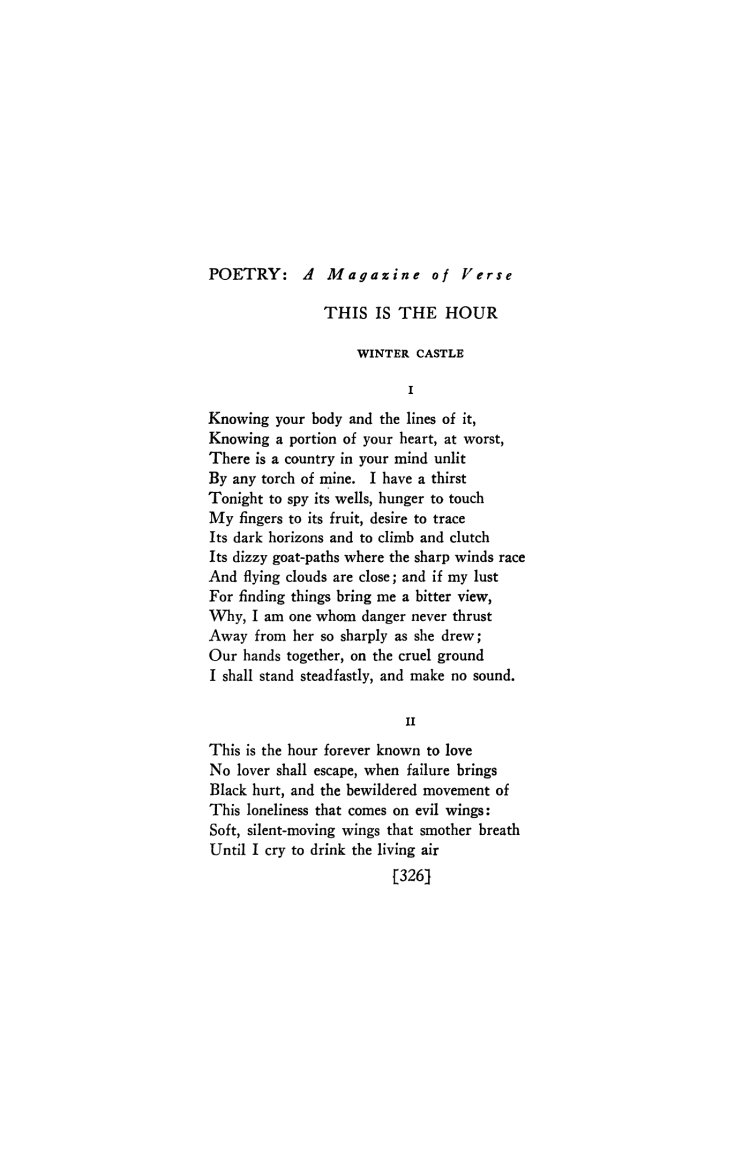
“Winter Castle”
(*published in Poetry, September/1936; source credit: The Poetry Foundation site)
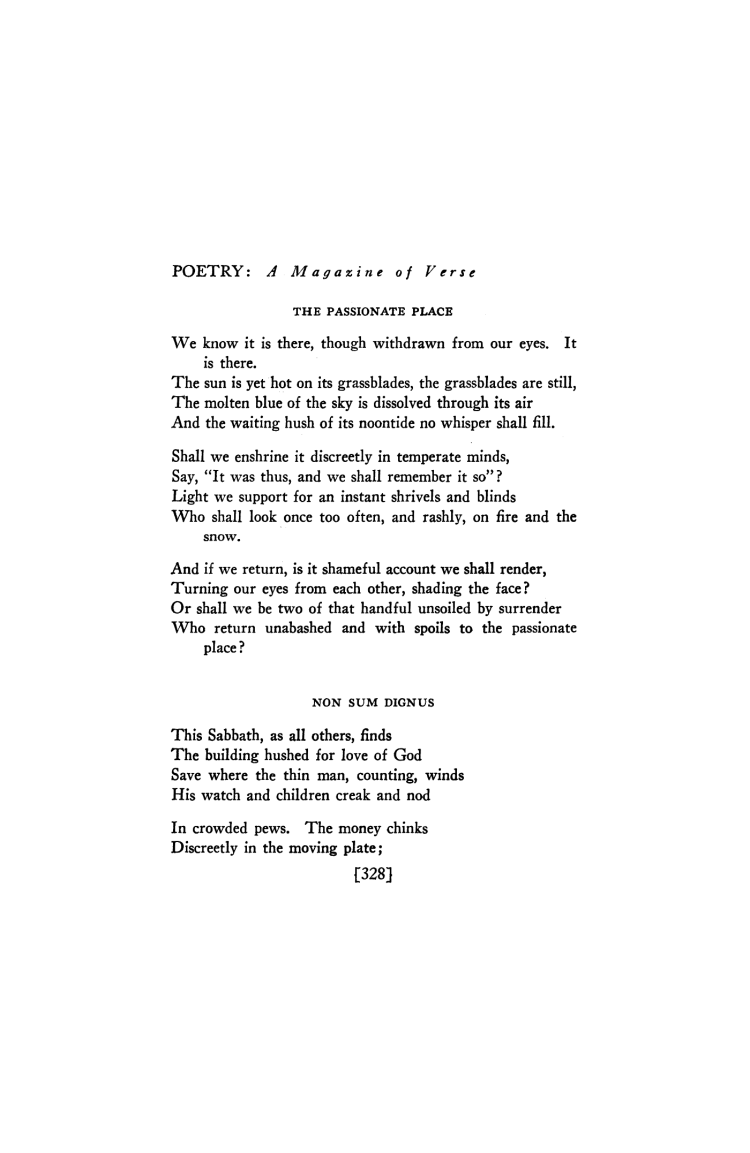
“The Passionate Place” and “Non Sum Dignus”
(*published in Poetry, September/1936; source credit: The Poetry Foundation site)
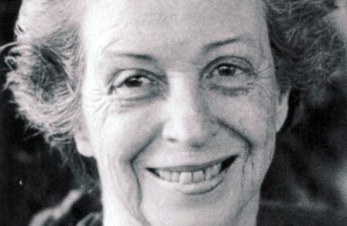
(photo credit: The Poetry Foundation)
About the Author
Josephine Jacobsen (1908-2003)
“Poet, fiction writer, and critic Josephine Jacobsen was born in Ontario, Canada, to American parents on vacation. Her father died when she was five, and afterward she and her mother moved around frequently, while Jacobsen was taught by private tutors. They settled in Maryland when Jacobsen was 14, and she would live there until her death almost 80 years later. She received the Shelley Memorial Award and the prestigious Robert Frost Medal from the Poetry Society of America and served as Poet Laureate Consultant in Poetry to the Library of Congress in the early 1970s.”
“… Her poetry takes many forms, ranging from traditional structures to free verse, and it centers on the mysteries of being human and the relationships between the physical and the spiritual realms.”
…
“Jacobsen is also highly respected for her short fiction, which is collected in four volumes, including A Walk with Raschid and Other Stories (1978) and Adios, Mr. Moxley (1986). Set in such diverse locales as Baltimore, the Caribbean islands, Mexico, and Morocco, the stories in these books are considered powerful in their examination of loneliness, betrayal, oppression, illness, and dishonesty. Jacobsen’s stories often end unresolved, leaving the reader to speculate about the future of her characters.”
In her own words …
I don’t really value very highly statements from a poet in regard to her work. I can perhaps best introduce my own poetry by saying what I have not done, rather than defining what I have done. I have not involved my work with any clique, school, or other group: I have tried not to force any poem into an overall concept of how I write poetry when it should be left to create organically its own individual style; I have not been content to repeat what I have already accomplished or to establish any stance which would limit the flexibility of discovery.
— Josephine Jacobsen (from Contemporary Poets)
(*Note: All biographical information excerpted from The Poetry Foundation site)
In the Crevice of Time: New and Collected Poems (Johns Hopkins University Press, 2000)
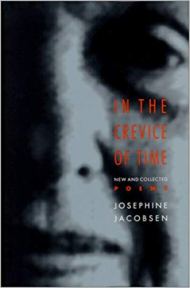
What Goes without Saying: Collected Stories of Josephine Jacobsen (Johns Hopkins University Press, 2000)
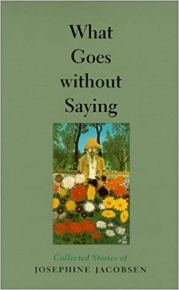
On the Island: New and Selected Stories (Ontario Review Pr, 1989)

December 2019 / Jonel Abellanosa
The December Blue Heron Review Featured Author is Jonel Abellanosa
Ode to the Moon
Apogee, as when you long for the galaxies,
Barely reflecting for my wonder the way your
Crescent smile augurs the fisherman’s skiff or
Diana with bow and arrows. In the canvass you
Evince my wishes. I return and rise from
Forks of dreaming to be here in artificial
Gibbous light. Three sweepers haunt the street,
Harvesting leaves trees shed this summer,
In wee hours baring sidewalks and pavements,
Janitorial diligence the only stirrings. I’ll
Keep them in mind as Cynthia, Phoebe, Selene,
Later add them to the picture where you
Might be sensed beyond the boundaries:
Not seen, your fullness, but light unmistakable.
Over brushstrokes shimmer hints of your
Presence, your silvering shades stilling
Questions. This immaterial hour invites the ear,
Renews the strolling wind’s immanence over
Silences. They move, chores separate but
Together following rhythms of broomsticks.
Until I alter my images with solitude, I’ll
Venture on. You’ll be round someplace,
Waxing or in perigee. I imagine how
Xanthic their parts in your company,
Yellowish their nightcaps in life’s stopovers:
Zinfandel or whiskey, beer or brandy
*First published in Dark Matter Literary Journal (University of Houston)
Man Born Blind
(John 9:1-12)
We are all born of light.
Before I washed the mud
Formed with his saliva off my eyes
In the pool of Siloam, there were glimmers
Like rose petals on shiny black stone,
Temple-bound sandals stirring desert yellow,
Mists of green if I sensed a pit nearby.
When I smelled the coming rain
Blue hands claimed the dark.
Lights shape fuller than touch, sunder
Slants of seeing to rapture: illumination
Bending with the jar’s belly, shimmering
Warmth from the cup’s eddies, sheen
Of bones on papyrus, magnifying revelations.
As if it weren’t enough, smells grew wings,
Singing like cherubs, one note above colors.
They who knew I wasn’t born with
The gift of sight shared their amazement –
Cakes of pressed figs and raisin, lamb meat
Roasted with bitter herbs, unleavened bread.
Wine perfumed the courtyard. I entered
A room with a lady for the first time.
I couldn’t miss it anymore: home-nurtured
Radiance, love’s reflections, care thicker
Than water, glaring everywhere I looked,
Sending me back to starless corners.
After the crucifixion they said he lives
In a believer’s heart, but this is how
Need folds night’s veil of distance:
Eye contact, lamp of touch.
*First published in Windhover (University of Mary Hardin Baylor)

About the Author
Jonel Abellanosa lives in Cebu City, the Philippines. His poetry has appeared in numerous journals, including That Literary Review, Poetry Kanto, The Lyric, Blue Heron Review, The McNeese Review, Rust+Moth and Star*Line, nominated for the Pushcart, Best of the Net and Dwarf Stars awards. His poetry collections include, Meditations (Alien Buddha Press) Songs from My Mind’s Tree and Multiverse (Clare Songbirds Publishing House), 50 Acrostic Poems, (Cyberwit, India), and his politically-progressive collection, In the Donald’s Time (Poetic Justice Books and Art). His first speculative poetry collection, Pan’s Saxophone, is available from Weasel Press.
Multiverse (Clare Songbirds Publishing House, 2019)
Available from Clare Songbirds Publishing House
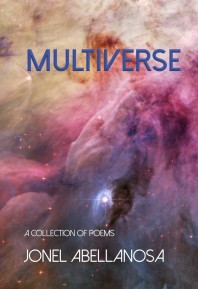
Songs From My Mind’s Tree (Clare Songbirds Publishing House, 2018)
Available from Clare Songbirds Publishing House
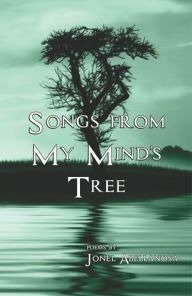
Pan’s Saxophone (Weasel Press, 2019)
Available from Weasel Press
Available on Amazon

November 2019 / Kenneth Pobo
The November Blue Heron Featured Author is Kenneth Pobo
Try
Try to be a good girl and don’t bother me.
Mom said this often. A good girl, factories in my head produced beautiful things that could be cheaply purchased in dime stores. You could wear the clothes to church and not stand out. Early on I learned not to stand out. Excellence made you stand out in school. I got 100s in spelling so the kids hated me. I got 100s in History so the kids hated me. I wouldn’t surrender spelling since I liked it, but in History I faked stupidity. “What happen in 1865, Dindi?” “Eli Whitney invented the phonograph.” The pursed lips. It didn’t get me popular, but the heat was off.
Mom said this often. A very good girl, she swept her virginity under my door and said I should make of it what I will. I put it with my dolls. When I got older and wanted to have sex, I took her virginity off the shelf. A deft strategist, she had intended for me to do this. I carried it in my purse the way boys carried condoms in wallets. At eighteen, I made a “slip.” That’s what happens when you’re a good girl not bothering anyone but you have oops sex. Like calamari, I didn’t much care for it at first. Now I get cravings.
My first boyfriend Mel said this often. A hairy little guy, sweet in a way, sour when it came to controlling me, he often brought me flowers. That I liked. Mel said, “I’m old fashioned. I believe in courting, and Dindi, consider yourself courted.” I guess he meant that I was pinned. Mom said, “I like him. You could do worse.” I hadn’t expected such high praise. I could have done worse. Later on, I did. Much worse. Mel was like a winter hibiscus. He had a hard time opening up. So did I. We kept our bodies open just enough to keep ourselves clam-tight shut.
My first girlfriend Mel said this often. Tiny tornados bolted out of her eyes. Early on, I found this fascinating, but got tired of cleaning up the carnage that could come in under a minute or two. Mel, tall, thin, and no-nonsense. “Dindi, I’m a no-nonsense woman.” It sounded like a threat and it was. For all her strictness, Mom wasn’t always no-nonsense. Not wearing a hat made of bottle caps. Nor was Mel (the hairy little guy). I tried to be a good girl and not get in her no-nonsense way. The Weather Channel and I never could predict her storms. We parted, as they say, as friends.
Try to be. A good girl. And don’t bother me. It’s trying to try, so I’ve stopped trying. I bother people either way. They usually don’t say so, but I catch it in a glance, a gesture.
I stayed behind curtains for too long. I’ve burnt them. The sun comes in without knocking. I’m not bothered.
Breaking Sighlence
I sigh at least a thousand times a day. My sighs cannot serve openly in the military. They’re queer sighs. Maybe I’ll take a knife to my throat. But one sigh says, “Don’t. We need you to breathe. We’ll die if you die.” I put the knife away. It thanks me.
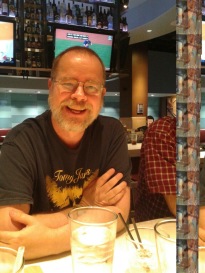
About the Author
Kenneth Pobo has a new book, prose poetry, out from Clare Songbirds Publishing House called, The Antlantis Hit Parade (2019). He also has another recent release published by Duck Lake Books, Dindi Expecting Snow (2019). In addition to Blue Heron Review, his work has appeared in: Hawaii Review, Amsterdam Review, Nimrod, Mudfish, Atlanta Review, The Queer South Anthology, and elsewhere. He and his husband and two cats live in Pennsylvania. He teaches English and creative writing at Widener University. He began writing at age fifteen and (by November) is 65.
The Antlantis Hit Parade (Clare Songbirds Publishing House, 2019)
on the Clare Songbirds website
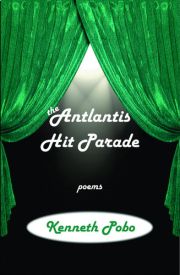
Dindi Expecting Snow (Duck Lake Books, 2019)
on Amazon
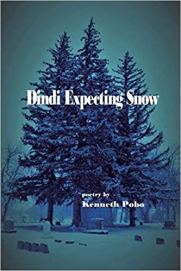
October 2019 / Marjorie Power
The October Blue Heron Speaks Featured Author is Marjorie Power
The Pull
Can’t see the source.
Something pulls
the way late afternoon sunlight
draws my jade plant,
the way the moon
will soon work a tide
fourteen hundred miles west
by Jeanie’s cottage.
Don’t know what’s what,
only what’s-not-anymore.
Can’t see, don’t know.
Except for this: the pull
is here to help somehow.
There’s a boat I need to moor,
a sail I need to fold, a path
into the leafy thicket
away, away
from shore
where laughter
keeps getting louder
while plans grow tentacles.
Jeanie sees, Jeanie knows
about the pull. But she
would be unable to clue me in,
being deep in the thicket today
and old beyond words.
Towards Rhythm
Wearing what he wore
in the operating room
the doctor pulls up a chair
by the chair where I sit
knitting, knowing I must wait one last hour
for the doctor to bring word
but here he sits, eyes on my eyes,
this electro-physiologist
who looks like a kid, or did
when I saw him those other times
when my husband was part
of the conversation, not flat
on his seventy-year-old back
after a four-point-five hour wiring
procedure which the doctor says
went very well, fixing his gaze
precisely on me until he’s sure
I know he feels this: love is a circuit
that runs from each to each,
whatever our puny age.
The Work of Shadows
We may use words to speak, but our shadows
do the talking. They pick up what we sweep
under the carpet – don’t give me that cold
stare – and dump it where we toss orange
peels, coffee grounds, fish skins, loose rose
petals. Shadows see what we say we never saw.
Listen. Do you hear that electric saw
not far from the compost heap? It’s shadows
doing their wheeze-work. Our dusk turns rose
and their day begins. They slip in to sweep
our little unseens – look, the sun’s dark orange –
and carry them out where it’s getting cold.
Their next task entails standing in the cold
taking turns with a decrepit hand saw.
At peace, like Buddhist monks, they hum orange
melodies. Don’t think that being shadows
they have no substance. How else could they sweep,
pound, build a trellis for a climbing rose?
Remember the morning when you arose
to find your stove wouldn’t light, in the cold?
That was because there’d been a heavy sweep
the evening prior. The broomsman saw
no time to work more carefully. Shadows
leave what they must when night’s edge turns orange.
And they let nothing go unkissed. Orange
blossoms by sickbeds, not to mention rose
gardens in trashed, putrid cities – shadows
always figure in the bloom. People cold
to the fact that this happens never saw
light out near its very edge, its full sweep.
Learn to let some things freeze. Trust in the sweep.
Clothe your thoughts in a soft shade of orange.
Remember that we’re each born with a saw
that prunes what we cling to. If you arose
today after a nightmare, write the cold
truth down, within easy reach of shadows.
If I sweep my heart, distilled scents of rose
and orange drag my dreams back in time, these cold
nights. That bastard fiddler’s saw, in the shadows.
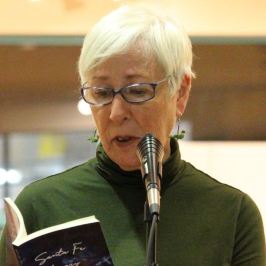
About the Author
Marjorie Power’s chapbook, Refuses to Suffocate, has just been released by Blue Lyra Press. Her collections, Oncoming Halos and Seven Parts Woman appeared in 2018 and 2016, respectively. She has six chapbooks out from Main Street Rag, Pudding House and other small presses. Journals that have recently used her work include Southern Poetry Review, The Comstock Review, Slant and others. She lives in Denver, Colorado after many years in the Northwest and can be found at www.marjoriepowerpoet.com.
Oncoming Halos (Kelsay Books, 2018)
on Amazon
on the Kelsay Books website
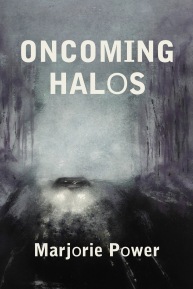
Seven Parts Woman (WordTech Editions, 2016)
on Amazon
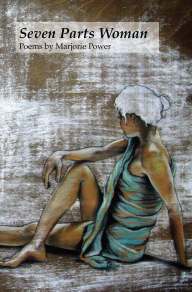
BOOK REVIEW BY MARGARET SAINE
Oncoming Halos by Marjorie Power
Oncoming Halos, hm, I was wondering about this title, but then resolved to keep my eyes peeled. Maybe the fact that inside the book, the subtitled “Oncoming Halos” poems follow “Reasonable Solutions” and “Chipware, Crackware, Fuzz”, and precede “My Emptiness”, would be one way to approach it.
Life overwhelms, so many events, so many stories. Life, “[t]he setting sail for, the laying claim to,/the closing in, the forcing out.” And within one and the same poem, stories shift into one another, according to the attentive but devious turns of the poet’s mind and imagination: all is in one poem, from a biting incident among zoo bears to a daughter who squirts Lysol into her father’s blueberry smoothie; from a hazelnut stand that has absconded to Amazon to a book cover with a photo of silky legs. And yet the poet often stands apart—Beside, Beyond, Behind are some consecutive titles of her poems. She is the keen observer who knits and connects what is severed and unstrung, into a poem, the flimsy construct of sense, but often the only one we possess.
The work of the poet is like that of the chimney sweep, the washerwoman, the doctor—Power’s poems are full of everyday workers and workings, and noises, in some way they remind me of Violeta Parra’s “Gracias a la vida”. Imagine a poem where her and his vision of trains and landscapes collide, they ride together in their lifetime, but their experience is totally different, depending what part of the U. S. they come from, interspersed with tragedy and chaos, such as 9/11.
These lines are characteristic of what Marjorie Power’s poetry does: “We may use words to speak, but our shadows/do the talking.” The give-and-take of poetry resembles life, or rather, our consciousness of it:
Remember that we’re each born with a saw
that prunes what we cling to. If you arose today
after a nightmare, write the cold
truth down within easy reach of shadows.
Oncoming Halos are the countervailing event, they are a momentary glad light coming towards us that brightens and transfigures, they are epiphanies:
and here am I,
driving a country highway
lit by infrequent
oncoming halos.
Toward the end, the poet confesses coyly: “I have nothing to offer,/am happy to share it”, but this is far from the case in this complex, splendid, convincing book of poems. And she continues: “Everything eventually earns a place in the soul.”
—Margaret Saine (umsaine@gmail.com)
***
September 2019 / Kai Coggin
The September Blue Heron Review Featured Author is Kai Coggin
Incandescent
everything in me is a volcano
everything in me is a blazing new sun
everything in me is a conflagration of words
everything in me is a color that makes up wildfire
everything in me is a phoenix wing ablaze
everything in me is a heart’s inferno
everything in me is a lucent moon
glowing
growing
giving off light
light
light
in whatever form
I can
incandescent
means
emitting light as a result of being heated
and isn’t everything heated
and isn’t everything shamefully ablaze
and isn’t everything burning before us
and isn’t the whole wide world turning to ash
can we still find the light in all that is being lost
can we still project a vision that leads humanity forward
can we still search out beauty in the rubble
can we still shine amidst the trouble
can we name ourselves luminous
and believe it
we must
we do
if you recognize this is how you move through life
you are incandescent, too
Her
I might’ve been ten
when I realized
the magnets inside me
were spinning toward her
whoever her was
she
was my everything
my longing to be close
my ache to be seen
my dream to be kissed by
touched by
missed by
her
whoever her was
she
was my love
and I could not help
but be enamored
the feelings
did not die down
they grew into silent flowers in my chest
until a meadow sprung from my mouth when I spoke
until petals only saying
she loves me
spilled from my lips and became my words
at that age
I did not have the word gay
did not have the word lesbian
the word queer just this fear
to explain my frame of reference
around my undeniable attraction to
her.
There was always a her
through the years of my youth
a too-far face
I could fix my eyes and heart upon
like a star guiding me out of my blackhole secret
never close enough to touch
never close enough to whisper
never close enough to be real in my arms
I was taught those fires would burn me forever
and sin was named after a woman
but
I wanted her skin
on my mouth
so much.
The first time I kissed a girl at 17
I might have been a fault line the way I trembled
the way the earth moved all around our fresh young bodies
I remember her wild curls
falling across my face
the way she laughed the taste of her yes
the ceiling fan
spinning rings over our heads
and I may have never returned to earth that day
the way she sent me hovering into the atmosphere
with only the fear that this moment might not be real
and these kisses and her cheek and her neck and her shoulder
and her
and her
and her
moving up so close
to the wild magnet of me
might just be a fleeting dream
but it wasn’t a dream
it was
love
real love
my first love
and her name stays with me
folded into my skin
and I can remember her in poems
and be right there again
two budding young flowers
opening to each other’s fingers
how the memories linger after 20 years
she is married now
to a man
has two beautiful children
we don’t speak
and I like
to think
it is because
there is still a part of her
that remembers
how I trembled
and to no fault of hers
or mine
love sometimes
makes strangers out of lovers
but can I write her into a poem
and thank her
always
for being
real.
Swastikas Into Windows
Recently
I heard
of a woman
who turned a graffitied swastika
into a window,
who connected the lines
of the hate symbol
and formed an escape route,
another thought,
a creative solution in paint.
A small hope.
A gesture against.
If only we could really open up a window,
let some blue air waft in,
see the clouds rising to remind us of our possibility,
see the flowers still in bloom though winter looms close and dark,
yes —
but I have heard too many stories
of lines that cannot be connected,
of symbols that run deeper than blood,
of hope beaten and broken
and yellow stars reminding people
of the bleakness of what may come.
There must be something we can do,
but for now,
turn all the swastikas into windows,
add the sun shining through.
Your Warmth
I remember a winter
when all our trees were dressed in ice gowns,
falling crowns of dripping freeze,
a morning dove sat on a frozen branch of the oak tree
right off the back deck,
his tail feathers covered in ice and snow,
and your warmth…
that golden heart of yours
saw him in his wintry discontented shiver.
You put some charcoal on the grill
and lit a huge hot fire,
and once the smoke slowed,
you wheeled the grill close to the frozen dove
so the fire’s heat could bounce off the metal roof
and melt the ice off his feathers.
Your warmth.
Your golden warmth.
This morning
you brought me outside
in the cold
to save the ladybugs,
hundreds had descended onto our house
searching for snug,
searching for corners against the wind,
now laying in red black spotted seeming death,
belly up omens of luck,
puddles of these sweet beetles underfoot,
you said
“scoop them up with this!”
you gave me a torn corner of a page,
I watched as you scooped each ladybug with the paper
and laid it into the palm of your left hand,
I followed your love-lead,
scooping,
holding my own handful of these frozen creatures
stunted by winter’s approach,
twenty or so I held there in my softly closed fist,
I breathed hot breath into the hole made
by my thumb and fingers
like I do when I forget my gloves
and all of a sudden,
through this act of your warmth and love,
I felt their tiny wings and legs start to move,
little gestures of their minuscule dance,
awakening life in my hands.
We put them
in our new greenhouse,
the one we just built from antique windows
attached to the house
to protect the two hibiscus,
the jasmine,
the gardenia,
the hanging ivy,
you are always
protecting something
from the cold.
Your warmth.
Your golden heart,
how you brought me in
more than ten years ago,
and you laid me in the palm of your hand,
my tiny wings
started to move again,
awakening to life.

(photo credit: David Yerby)
About the Author
Kai Coggin is a poet, author, and teaching artist living in the valley of a small mountain in Hot Springs National Park, AR. She holds a B.A. in English, Poetry, and Creative Writing from Texas A&M University. Her work has been published or is forthcoming in Entropy, Sinister Wisdom, Assaracus, Calamus Journal, Lavender Review, The Rise Up Review, Anti-Heroin Chic, Luna Luna, Blue Heron Review, Hoctok, Yes, Poetry and elsewhere.
Coggin is the author of three full-length collections, Periscope Heart (Swimming with Elephants, 2014), Wingspan (Golden Dragonfly Press, 2016), and Incandescent (Sibling Rivalry Press, 2019), as well as a spoken word album called Silhouette (2017). Her poetry has been nominated three times for The Pushcart Prize, as well as Bettering American Poetry 2015, and Best of the Net 2016 and 2018. Kai teaches an adult creative writing class called Words & Wine, and is also a Teaching Artist with the Arkansas Arts Council and Arkansas Learning Through the Arts, specializing in bringing poetry and creative writing to youth around the state. www.kaicoggin.com
*SIGNED COPIES of all 3 books available at the author’s website.
Periscope Heart (Swimming with Elephants, 2014) on Amazon

Wingspan (Golden Dragonfly Press, 2016) on Amazon

Incandescent (Sibling Rivalry Press, 2019)
on Amazon
on the Sibling Rivalry Press website
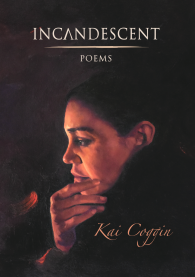
*Cover Art by Joann Saraydarian (Oil Painting, “The Light of a Poet”)
*Book trailer for Incandescent can be found HERE.
***
Blue Heron Review is on hiatus every summer for the months of July and August. Our next author feature will be published in September 2019.
June 2019 / Shawn Aveningo Sanders
The June Blue Heron Review Featured Author is Shawn Aveningo Sanders
On Making Bisque to Comfort the Mother Who Lost Her Son
I pick tomatoes from my garden.
I carve each one with an X.
I blanch. I peel. I puree.
As I press the pulp, extract tiny seeds
through a strainer, I remember
a day long ago in September, when
my son had just turned sixteen.
He was king. He had everything
to live for—minus the will.
We were lucky. We reached into
dark water and pulled him up.
She found the gun . . . her dead son.
Citric acid stings the flesh under
my fingernails. Her eyes sting
with the sight she’ll never un-see.
I grind a few more peppercorns,
season the soup with minced basil,
add salt of a mother’s tears.
(*First Published in Visitant Lit, Oct 2016)
The 2nd Time I Lost My Kidney
I couldn’t bear touching his hands,
feeling them cold, crossed
over his chest, that final pose.
No one tells you of the mourning—
first, when you give up the kidney,
second, when he dies.
It seems wrong to feel
such a selfish sense of loss,
graveside tears turning to rain
pellets upon my naked shoulders,
my cape fallen to the ground,
the mourners using it
to wipe mud from their souls,
and me, no longer the hero,
left merely with a memory
and a scar that burns like ice.
(*First published in Tule Review, Sacramento Poetry Center, Fall 2013)
Unfurling
I want to
unfold.
I want to release
these creases
of my earthly, abundant flesh.
Not to smooth
out
nor over,
not to
remove.
But to bear witness to my own secrets,
buried deep within,
to find a new truth—
perhaps one disguised as forgetfulness.
I want to hold a flame—
minus the candle,
minus the wick.
Let this light in my palm
show me the shadows,
reveal my scars.
I want to feel the intensity,
immense pain—
that which foretells unbearable joy,
to feel again my own splitting—
the splendor of childbirth,
this time
swaddling my own
self.
I want to unfurl,
pluck each translucent petal—
I love me.
I love me not.
I love …
(*Not yet published, slated for the forthcoming chapbook titled, What She Was Wearing)

(photo credit: Robert R Sanders Photography)
About the Author
Shawn Aveningo Sanders started out as show-me girl from Missouri and after a bit of globetrotting finally landed in Portland, Oregon, where she miraculously overcame her fear of birds upon meeting two baby juncos in her backyard. Shawn’s work has appeared in over 140 literary journals and anthologies. She’s a Pushcart nominee (2015), Best of the Net nominee (2017), co-founder of The Poetry Box® press, as well as managing editor for The Poeming Pigeon. She was named Best Female Poet-Performer in Sacramento News & Review Reader Poll (2009) and was winner of the first poetry slam in Placerville, California (2012). Shawn is a proud mother of three amazing adults, and she shares the creative life with her husband. You can learn more about her at RedShoePoet.com.
The Poeming Pigeon: Love Poems
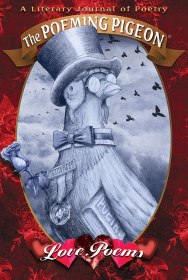
The Poeming Pigeon: In The News
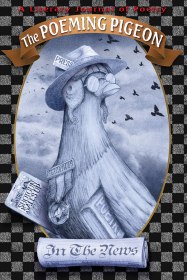
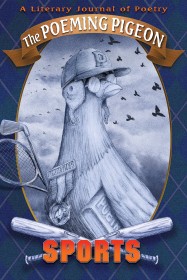
May 2019 / KB Ballentine
The May Blue Heron Speaks Featured Author is KB Ballentine
For the Actors
(after Edward Hirsch)
Tonight I want to tell you I believed
in your world so much that I went
home unburdened, purging myself of tears
that had built up for weeks, months, years.
Worry’s worn path eased after rehearsals and bows
had taken their toll, discarded costumes a relief.
I love the way actors offer their entire being
to the madness or the song-joy,
the essence of their souls to the character,
letting its light shine or its evil corrupt
their faces, bodies, like demi-gods creating
a new universe, continents of power, hate, love.
And always they become themselves again.
Or nearly so. Altered by another’s silky words, I want
to say: Metamorphosis makes my heart sing.
Our hearts like an empty stage, spotlights
chasing shadows from bare corners.
Music of arias, operas ghosting the air,
vibrating with the memory of applause.
Skin of so many others auditioning to be heard,
the art of silence throbs, aches our veins.
We must trust our hearts to that first step.
Floorboard squeaking, hum of voices,
of pulsing stardust, waiting for the cue to begin.
Performance seizing us by the throat,
the soul, until the curtains close, lights fading
on roses tossed and trembling.
(*First published in Blue Lyra anthology 2016 / from The Perfume of Leaving)
More or Less, Light
(What power has love but forgiveness. —William Carlos Williams)
Fog. Morning breaks
somewhere beyond this mist,
this haze that saturates, seeps into my skin.
I know you’re already there —
nuthatch, wren warbling you awake.
Warm, this November clings
like a summer evening,
twilight reigning the unbroken hours.
When these dewy pearls dissolve,
I will reclaim the day —
no matter that roses blooming by my porch
will wither with December’s frost.
For now, they beckon, a bit of hope
escaping winter’s gloom.
(*First published in Poetry South 2016 / from Almost Everything, Almost Nothing)
Recipe for Making the Color Gold
(after Nuno Júdice)
If you wish to make the color gold,
weigh a handful of coastal sand
and sift it through the noonday sun.
Pour it over the salt-crusted bowl of sea,
stir in flickers of silver fins and floating gossamer domes
until a tart tang zests the air.
Season with scales of the yellow butterfly
skimming above a Jewish ghetto.
To prevent the colors boiling into vapor,
cut the dark heart of a poppy
and toss in two feathers from a mourning dove.
Pluck one peach and two grapefruit
from low hanging branches,
slice ripe corn from green stalks –
peel and grate then blend into the mix.
Fold in the leaf of an autumn oak and four petals
of a daffodil, whisk six violets washed with spring’s breeze.
Add a pinch of summer’s dry grass to the coin of the moon.
Knead carefully. Measure a large spoonful.
Sprinkle an echo of stars across the night,
and the light of a song will rise with the dawn.
(*from What Comes of Waiting)

(author photo credit: Jim Canestrari)
About the Author
KB Ballentine’s sixth collection of poetry, The Light Tears Loose, will be released early autumn 2019 by Blue Light Press. Almost Everything, Almost Nothing was released in 2017 by Middle Creek Publishing. The 2016 Blue Light Press Book Award winner, KB’s fourth collection The Perfume of Leaving was preceded by What Comes of Waiting, also by Blue Light Press (2013). Published in many print and online journals such as Crab Orchard Review and Haight-Ashbury Literary Journal, KB has two other collections of poetry, Fragments of Light (2009) and Gathering Stones (2008), published by Celtic Cat Publishing. Her work also appears in anthologies including In Plein Air (2017), Carrying the Branch: Poets in Search of Peace (2017), In God’s Hand (2017), River of Earth and Sky: Poems for the Twenty-first Century (2015), Southern Poetry Anthology, Volume VI: Tennessee (2013) and Southern Light: Twelve Contemporary Southern Poets (2011).
Ballentine received her MFA in Poetry from Lesley University, Cambridge, MA. She currently teaches high school theatre and creative writing and adjuncts for a local college.
Learn more about KB Ballentine at www.kbballentine.com.
Almost Everything, Almost Nothing (Middle Creek Publishing, 2017)
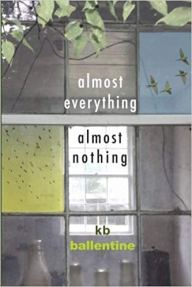
Perfume of Leaving (Blue Light Press, 2016)
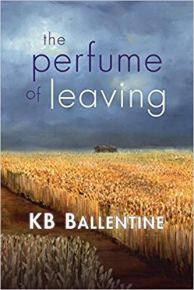
What Comes of Waiting (Blue Light Press, 2013)
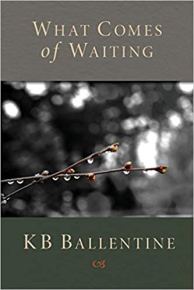
April 2019 / Edith Sitwell
The April Blue Heron Speaks Featured Author is Edith Sitwell
Déjeuner Sur L’Herbe
Green apples dancing in a wash of sun—
Ripples of sense and fun—
A net of light that wavers as it weaves
The sunlight on the chattering leaves;
The half-dazed sound of feet,
And carriages that ripple in the heat.
The parasols like shadows of the sun
Cast wavering shades that run
Across the laughing faces and across
Hair with a bird-bright gloss.
The swinging greenery casts shadows dark,
Hides me that I may mark
How, buzzing in this dazzling mesh, my soul
Seems hardening it to flesh, and one bright whole.
O sudden feathers have a flashing sheen!
The sun’s swift javelin
The bird-songs seem, that through the dark leaves pass;
And life itself is but a flashing glass.
Interlude
Amid this hot green glowing gloom
A word falls with a raindrop’s boom…
Like baskets of ripe fruit in air
The bird-songs seem, suspended where
Those goldfinches—the ripe warm lights
Peck slyly at them—take quick flights.
My feet are feathered like a bird
Among the shadows scarcely heard;
I bring you branches green with dew
And fruits that you may crown anew
Your whirring waspish-gilded hair
Amid this cornucopia—
Until your warm lips bear the stains
And bird-blood leap within your veins.
(*poems sourced from poets.org)
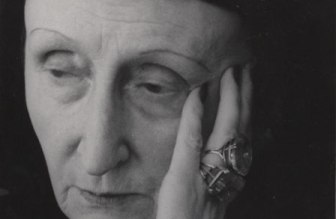
(photo credit: poetry foundation.org)
About Edith Sitwell
Edith Sitwell was born on September 7, 1887, in Yorkshire, England. An eccentric and controversial figure of her time, she wrote plays, fiction, and nonfiction as well as poetry. Her collections of verse include The Wooden Pegasus (B. Blackwell, 1920), Five Variations on a Theme (Duckworth, 1933), and Green Song and Other Poems (Macmillan & Co., 1944). Sitwell died in London December 9, 1964. (Sourced from poets.org)
Collected Poems of Edith Sitwell (Overlook Books, 2006)
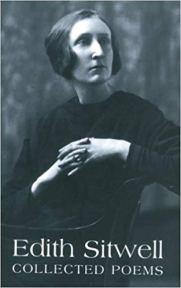
The Queens and the Hive by Edith Sitwell (Bloomsbury Reader, 2013)
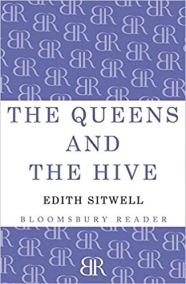
Edith Sitwell: Avant Garde Poet, English Genius by Richard Greene (Virago, 2012)
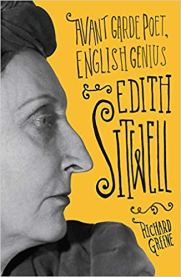
March 2019 / Lois Roma-Deeley
The March Blue Heron Speaks Featured Author is Lois Roma-Deeley
Snow Blind
Perhaps it was the weight of snow
falling on the ground, year after year,
or the crying winds
cutting a ravine to the water
which caused the glacier to quake and
urged the cold light to reflect off that sorrow
and temporarily blind me—
just so
in that moment I could hear, for once, the pure sound
of the groaning earth tearing itself apart.
And when I could open my eyes again without pain
there were halos everywhere—
around the sun, on the wind
and then
something unnamed and unknowable from another world
descended and, before long, drifted
toward me on the open arctic sea.
Whatever it was, it was
holy—
the way the frozen world
made a home for it—as if,
before dropping into this bitter stillness,
it touched the face of God
and, being stunned numb,
was astonished to find itself waking inside a rage of blue ice—
its long, slow howl
calling the ground to quiver and snap.
When Moving from Point A to point B,
Do Not Intrude on That Empty Space
of Not Having to Be Anywhere at All
But tonight I’m scared to be this much alone.
I know I shouldn’t turn to the man sitting next to me,
the one slumped in his train car seat.
It’s been raining all day. There have been many delays.
He’s exhausted.
My muddy shoes make popping noises
as I step on bags of potato chips
and double espresso cups
scattered on the floor next to our feet.
When the conductor takes the ticket from our pockets, moves on,
I touch the man’s sleeve, press my fingers into his arm.
The lines on his face deepen
as I talk about how New York City will eventually crumble and fall into the sea;
and my crazy uncle who screams until his face bursts
like a balloon being bitten by a dog;
I talk of war and its dead children; about time
and its heavy hand on my neck; and I tell him
the story of how I drove into a parked car
and left. And came back. Then left again.
I say I should quit smoking and will quit smoking
but can’t quit smoking
at least, not today.
And I’d like to know if he knows, I say, if it’s at all possible
for anyone to slip into the holy nothingness of now?
Finally, when I pause to take a breath,
the man pushes the brim of his fedora hat over his eyes.
As the train shush-shushes over the tracks,
I look out the train car window
which frames a full moon and rattles on
like teeth chattering in a skull.
The winter sky is clear now and full of stars.
The Big Dipper points somewhere
I just might have to go.
The Short List of Certainties
Let us remember the taste of salt on the tongue. The way snakes move through the open reaches of Iron Mountain. Can’t you picture the young mother standing in the doorway of a house made sad by too much sadness, not enough work? And when you are offered the smell of creosote after a rain, the whir of strange voices on this city street, a pearl moon—do not calculate the cost. Let us at last—or at least—bless the empty desert as if it were a blank page. Then, having courage, let us write a word or phrase on the short list of certainties something that sounds very much like praise.
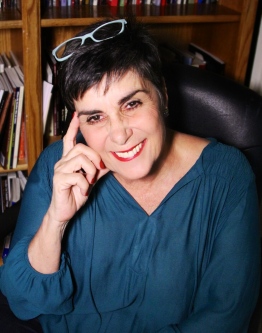
(photo credit: Erin Deeley)
About the Author
Lois Roma-Deeley’s most recent full-length book of poetry is The Short List of Certainties, winner of the Jacopone da Todi Book Prize (Franciscan University Press). She is the author of three previous collections of poetry: Rules of Hunger, northSight and High Notes—a Paterson Poetry Prize Finalist. Roma-Deeley’s poems have been featured in numerous literary journals and anthologies, nationally and internationally. She’s the recipient of numerous awards and honors for her poetry including an Arizona Commission on the Arts grant, Lawrence Epstein Visiting Writer Award, New Millennium Writing (finalist), Ragdale Residency Fellowship and many others. She’s taught creative writing at the graduate, undergraduate levels for many years. Roma-Deeley was named U.S. Professor of the Year, Community College, by the Carnegie Foundation for the Advancement of Teaching and CASE, 2012-2013. She is the first national winner of this award that Arizona has ever had in any category. Currently, Roma-Deeley is the Associate Editor of the international poetry journal Presence. www.loisroma-deeley.com
The Short List of Certainties (Franciscan University Press, 2017)
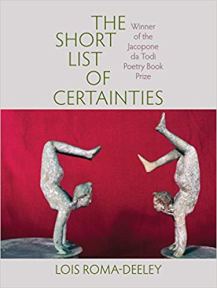
northSight (Singularity Press, 2006)
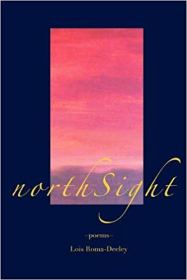
High Notes (Benu Press, 2010)
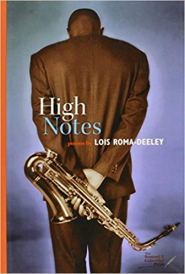
February 2019 / Kersten Christianson
The Blue Heron Speaks Featured Author for February 2019 is
Kersten Christianson
Road Trip
Stormy weather to the south,
sucker hole to the north,
wind shuffles its shoes
across my blue pine floor,
beckons me to dance.
From a Juneau radio station
Katie B. spins old tunes:
Stevie Nicks, Sinead O’Connor,
the inebriate mix of storm, and song,
the end of another school year.
A hat tip from the road: rain-
speckled windshield, a pocket
full of loonies, the hook
of a moon to hang
my joy.
(*Published by Allegro Poetry, 2016 and What Caught Raven’s Eye, 2018)
Cèilidh for Angus
To a canticle of wind
and juncos, squalls trip
across a sullen ocean
an errant curtain hop-
scotches across the sill
of an open window.
I want no somber dirge,
no plodding funeral song.
Instead, the screaming
banshee of a wicked fiddler,
of more hair than voice,
of ear and aura, of other-
worldly and techno fusion.
Now, the wave of dancers crests
and rolls, plummets, falls head-
long into a sea of bow
and string. After, the swallow
of kitchen party Jamison,
the echo of last notes step
dance among embers.
With a lone seal, you swim,
cross this sound
into another.
(*Published by Wild Musette and Picaroon Poetry, 2017)
Quartz
With my fingertips I read
this chunk of amethyst.
From its story spills
a time-capsuled
house, a calendar
page from 1995: Liquor
bottles, critters
in the basement,
tea leaves, signs
of mice.
Outside, the moose
cow beds down,
flattens tall grasses
in lavender light.
The stone’s jagged peaks
sporting alpenglow
red dive into kamikaze
free falls, the handwritten
script of what remains.
(*Published by San Pedro River Review, 2017)

About the Author
Kersten Christianson is a raven-watching, moon-gazing, Alaskan. When not exploring the summer lands and dark winter of the Yukon, she lives in Sitka, Alaska. She holds an MFA in Creative Writing (University of Alaska Anchorage). Kersten has authored two books of poetry: What Caught Raven’s Eye (Petroglyph Press, 2018) and Something Yet to Be Named (Aldrich Press, 2017). She is also the poetry editor of the quarterly journal, Alaska Women Speak. Blog: www.kerstenchristianson.com Twitter: @kerstenak
What Caught Raven’s Eye (Petroglyph Press, 2018)
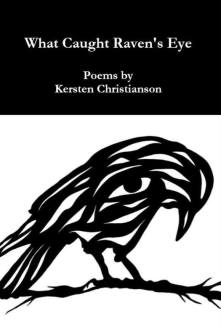
Something Yet to Be Named (Aldrich Press / Kelsay Books, 2017)
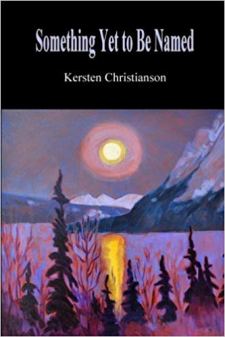
January 2019 / William Stafford
The Blue Heron Speaks Featured Author for January 2019 is
William Stafford
Once in the 40’s
We were alone one night on a long
road in Montana. This was in winter, a big
night, far to the stars. We had hitched,
my wife and I, and left our ride at
a crossing to go on. Tired and cold—but
brave—we trudged along. This, we said,
was our life, watched over, allowed to go
where we wanted. We said we’d come back some time
when we got rich. We’d leave the others and find
a night like this, whatever we had to give,
and no matter how far, to be so happy again.
(Poem Source: Poets.org)
The Well Rising
The well rising without sound,
the spring on a hillside,
the plowshare brimming through deep ground
everywhere in the field—
The sharp swallows in their swerve
flaring and hesitating
hunting for the final curve
coming closer and closer—
The swallow heart from wingbeat to wingbeat
counseling decisions, decision:
thunderous examples. I place my feet
with care in such a world.
(Poem Source: Poem Hunter)
Waking at 3 A.M.
Even in the cave of the night when you
wake and are free and lonely,
neglected by others, discarded, loved only
by what doesn’t matter—even in that
big room no one can see,
you push with your eyes till forever
comes in its twisted figure eight
and lies down in your head.
You think water in the river;
you think slower than the tide in
the grain of the wood; you become
a secret storehouse that saves the country,
so open and foolish and empty.
You look over all that the darkness
ripples across. More than has ever
been found comforts you. You open your
eyes in a vault that unlocks as fast
and as far as your thought can run.
A great snug wall goes around everything,
has always been there, will always
remain. It is a good world to be
lost in. It comforts you. It is
all right. And you sleep.
(Poem Source: Poem Hunter)
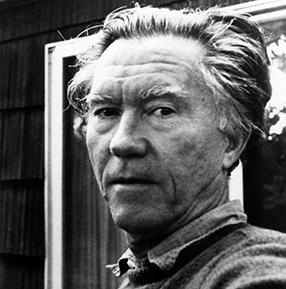
(author photo source credit: Poets.org)
About the Author
William Stafford (1914-1993)
“William Stafford was born in Hutchinson, Kansas, on January 17, 1914. He received a BA and an MA from the University of Kansas at Lawrence and, in 1954, a PhD from the University of Iowa. During the Second World War, Stafford was a conscientious objector and worked in the civilian public service camps—an experience he recorded in the prose memoir Down My Heart (1947). He married Dorothy Hope Frantz in 1944; they had four children.
In 1948 Stafford moved to Oregon to teach at Lewis and Clark College. Though he traveled and read his work widely, he taught at Lewis and Clark until his retirement in 1980. His first major collection of poems, Traveling Through the Dark, was published when Stafford was forty-eight. It won the National Book Award in 1963. He went on to publish more than sixty-five volumes of poetry and prose. Among his many honors and awards were a Shelley Memorial Award, a Guggenheim Fellowship, a National Endowment for the Arts fellowship, and a Western States Lifetime Achievement Award in Poetry. In 1970, he was the Consultant in Poetry to the Library of Congress (a position currently known as the Poet Laureate).
Stafford’s poems are often deceptively simple. Like Robert Frost’s, however, they reveal a distinctive and complex vision upon closer examination. James Dickey, writing in his book Babel to Byzantium, notes that Stafford’s ‘natural mode of speech is a gentle, mystical, half-mocking and highly personal daydreaming about the western United States.’ Among his best-known books are The Rescued Year (1966), Stories That Could Be True: New and Collected Poems (1977), Writing the Australian Crawl: Views on the Writer’s Vocation (1978), and An Oregon Message (1987). William Stafford died at his home in Lake Oswego, Oregon, on August 28, 1993.”
(Source credit: Biographical summary excerpted from Poets.org)
Ask Me: 100 Essential Poems of William Stafford (Graywolf Press, 2013)
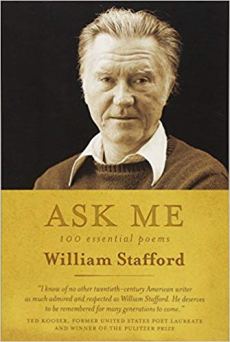
The Darkness Around Us Is Deep: Selected Poems of William Stafford (Harper Perennial, 1994)

You Must Revise Your Life / Poets on Poetry: William Stafford (The University of Michigan Press, 1986)
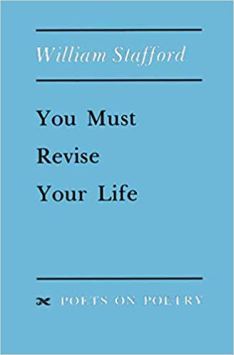
***
NOTE: The Blue Heron Speaks Featured Author page will be on a brief hiatus, for the holiday season (until January, 2019). Until then, please feel free to scroll down and enjoy our beautiful array of past, featured poets. Their literary talents will delight and distract you this holiday season. While others are rushing around and generally busy, grab a nice cup of tea, sit in your favorite comfy chair, and browse our past authors. Each month, since 2013, we have been sharing the work of guest authors. We have plenty of reading material for you! See you in 2019! Thank you for your readership and support!
***
November 2018
Olga García Echeverría
The Blue Heron Speaks Featured Author for November 2018 is
Olga García Echeverría
Santa Mónica
for my sisters Anna, Terry, and Chuy
The ocean always seemed so far away.
We didn’t have a car and the two hour bus
ride on the RTD was a drag. Still,
the ocean lured us—four sisters
from East L.A. on a mission to the beach.
Our neatly rolled towels carried like footballs
beneath our arms. Plastic grocery bags
full of sandwich stuff for lunch. There was
the anticipation of our bodies
colliding with the waves. We wanted
to be like Gidget on TV. Surf,
wear fancy swimsuits,
eat expensive hotdogs,
buy cold syrupy sodas
from the stands. Instead
we swaggered in long cut-offs. Wet
oversized t-shirts clinging to our skin.
We ate in a circle like a clan, drank Tang
from Styrofoam cups, used Spanglish as our shield,
spread mayonnaise and slapped baloney onto Wonder
Bread, drowned Doritos in chile y limón, gritty
sand making its way into our mouths,
we chewed. The beach
was ours as we carved our names
near water’s edge, white seagulls
hovering. We tossed pieces of bread
at the sky, and the birds came fervently
like in that Hitchcock movie we all loved.
The Birds. Frantic flapping of so many wings, we ran
recklessly along the shore, our shrieks and cackles
permeating the sea.
*Previously published in: Los Angeles Water Works: Histories of Water and Place. (Studio for California History, Los Angeles, California, 2013)
Vuelo
for my grandmother
She lost her memory in the wind
a cold gust of air swept
across
her hair
rose
danced like angry fuego
en el viento
por dentro
a sweet humming sound entered
her mind—honeycombed cuevas
empty spaces
time lapses in the brain
windstorms hurled inside her
images and faces collided
kaleidoscope colors merged into darkness
all her memories escaped her
like emancipated blackbirds
departing in flight
*Published in Falling Angels: Cuentos y Poemas.
(Calaca Press and Chibcha Press, San Diego, California, 2008)
Toughest Brown Sugar
We treasured sanweeches de sardinas
aceitunas verdes in our tamales
pitted black olives straight from the can.
We chewed on navaja-sliced sugarcane, sought out
parentless adventures en las calles, spoke
our Mexican-American pidgin speak.
Our language(s) like yellow calabaza flowers
on our tongues
in our gardens
bloomed
We were what we ate
la mera neta—cajeta
baked camote smothered
in butter, cinnamon, and melted
piloncillo—the toughest brown sugar in the world.
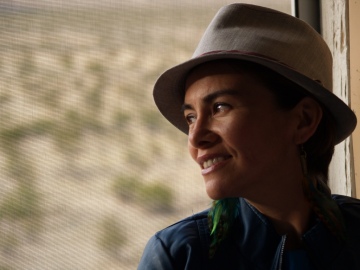
(photo credit: Maritza Alvarez)
About the Author
Olga García Echeverría is the author of Falling Angeles: Cuentos y Poemas, the self-published chapbook Lovely Little Creatures, and is a contributor to the anthology, Imaniman: Poets Writing in The Anzaldúan Borderlands. Her work is found in numerous literary spaces including Lavandería: A Mixed Load of Women, Wash and Words; The Sun; and Telling Tongues: A Latinx Anthology on Language. She has been an educator for over 20 years and is a Touching Lives Fellow, awarded by A Room of Her Own Foundation (AROHO) to women writers and artists who have made significant long-term contributions to students and teaching. García Echeverría holds a B.A. in Ethnic Studies from UC Santa Cruz, an M.F.A. in Creative Writing from the University of Texas in El Paso, and an honorary degree in Code-switching from the Universidad Autónoma de Lenguas Desbordadas.
Falling Angeles: Cuentos y Poems (Calaca Press, 2008)
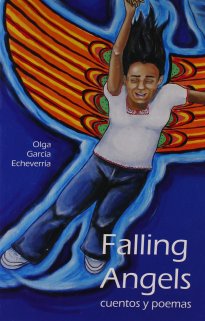
October 2018 / Linda C Ehrlich
The Blue Heron Speaks Featured Author for October 2018 is
Linda C Ehrlich
Still Life
Oh, to be a plain wooden table,
or a pitcher, creamy white.
But not a herring
hanging
from a thread,
or a cherry balanced
precariously
on a ledge.
Only a plum
safe
in a shallow bowl
or an onion,
or a human hand.
*From Bodegón/Still Life [with translations into Spanish]
Vineyard
Tears of the prophets,
Transformers of souls.
Not the jar
but the wine therein,
Not the flower but the seed.
We sit together
beneath a purple canopy,
and pour out our wine
drop by drop
in memory of our enemies.
Tears of the prophets,
Transformers of souls.
*From Bodegón/Still Life [with translations into Spanish]
Lullaby
I would accept peace in any form—
as a wrinkled old woman,
or a black swan.
I would take her in my arms
and sing lullabies until she sleeps.
I would accept peace
as a corner in a crowded station
reserved
for fine ladies and women of the night.
*From In the Breathing Time
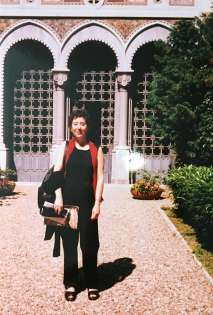
About the Author
Linda C. Ehrlich’s collection of prose poetry on world cinema Cinematic Reveries: Gestures, Stillness, Water was published by Peter Lang (2013). She has also published poetry in International Poetry Review, Southern Poetry Review, The Bitter Oleander, Literary Arts Hawaii, Puppetry International, Pinesong, and Tributaries, among other journals. Her poetry collections include: In the Breathing Time, Night Harbour, Bodegón/Still Life, The Girl who Turned into a Tree, and Yamamba’s Mountains (which was designed by Horse and Buggy Press, Durham, NC). These poetry collections are all richly illustrated with works by noted photographers, printmakers, and other artists.
She has presented poetry readings in Spain, Japan, on the Semester at Sea voyage, at the Innisfree poetry bookstore (Boulder, Colorado), and during the awards ceremony for the N.C. Poetry Society.
Her commentary appears on the Criterion DVD of the Spanish film The Spirit of the Beehive (El espíritu de la colmena, dir. Víctor Erice) and on the 25th anniversary Blu-ray of the Japanese film Maborosi (dir. KORE-EDA Hirokazu).
For more information, please see: http://braidednarrative.com
Bodegón/Still Life (Shika Press, 2012)
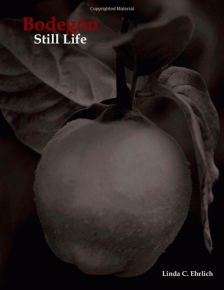
In the Breathing Time (Shika Press, 2012)
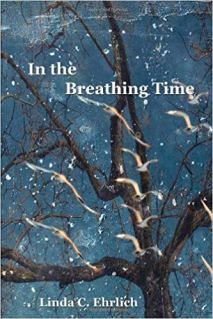
September 2018 /
Diane Sahms-Guarnieri
The Blue Heron Speaks Featured Author for September 2018 is
Diane Sahms-Guarnieri
As long as a heart is beating someone is always alive
(for Dad)
The dead can survive as part of the lives of those that still live.
—Kenzaburō Ōe
As long as a heart is beating someone is always alive.
Though I want to believe in resurrection
Father, does your heart still beat inside of mine?
Words you delivered to me a decade after you died;
and although there may be truth in soul’s transmigration
As long as a heart is beating someone is always alive.
Words you were telling me as if you had safely arrived.
Death not death but a continuum, a thin veiled partition
Father, does your heart still beat inside of mine?
Yes, it was there inside a small space within dream’s eye
where I looked up and you spoke illumination
As long as a heart is beating someone is always alive.
Embracing, I sang, he’s alive he’s alive he’s alive.
in waltzing harmony. Yet, cross-questioning
Father, does your heart still beat inside of mine?
Through doubting clouds shone shafts of slanted light.
Love’s pulsation in peaceful synchronization:
As long as a heart is beating someone is always alive.
Father, your heart still beats inside of mine.
Loretta and Pauline
I step into silver pool of looking-glass thought
enter reflection like walking safely through
a waterfall to another place, and once on
the other side, turn and look, confirming
Wordsworth’s claim—life is circular—you end
where you once had begun, childlike.
Here, at Cathedral Village each one struggles
to get well, to return home?
Minds clear as summer’s blue sky
with some cloudlets of forgetfulness.
Appetites diminished like picky toddlers.
Each one wears an oversized bib.
Their children or closest relatives worry
for their safety, won’t let them return to aloneness
of their own ticking clocks, yet they don’t want them
residing with them, and I wonder where connection is.
Why the missing link? The hours drag slowly here;
minutes crawl web cracked walls.
Shadows circle like wind-up mobiles
just above cribbed beds.
Loretta then Pauline, beautifully aged women,
seated in name-tagged wheelchairs roll
themselves like babies in walkers, feet paddling
down a stream-quiet hallway
entering back into the aging womb of another day.
Time’s unmerciful one-way current leads them
onward, toward an awaiting waterfall
not too far off in the distance, just beyond
dark bleak curtains of their banished rooms.
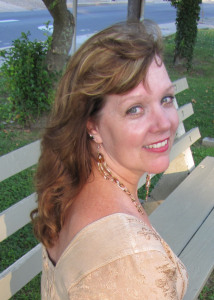
About the Author
Diane Sahms-Guarnieri, a native Philadelphian, is the author of four full-length poetry collections: Images of Being (Stone Garden Publishing, 2011), Lights Battered Edge (Anaphora Literary Press, 2015), Night Sweat (Red Dashboard Press, 2016) and The Handheld Mirror of the Mind (Kelsay Press, 2018). Her poems have appeared in a number of online and print publications. She is poetry editor at North of Oxford. Visit her at http://www.dianesahms-guarnieri.com/
The Handheld Mirror of the Mind (Kelsay Press, 2018)
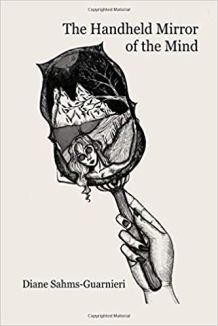
(NOTE: The Blue Heron Speaks page takes a short summer break, annually, for the months of July and August.)
June 2018 / Darren C Demaree
The Blue Heron Speaks featured Author for June 2018 is Darren C Demaree
Quick Root
Some plunges are wings
melting into the good black dirt
& feeding that dirt
with the un-writing
of a person’s book. Tongues
working past the failing bloom,
the drugs can subtract
you forever. They are taking
all of Ohio. It’s a burial
of the living. It’s the best
of us leeched to be lost
in the slight pull of gravity
& the claim each ounce
of each drug is making
on our once reminiscent flight.
Ode to the Corner of the Drug House Down the Gravel Road Off the Two-lane Highway #60
The eye of the haven
from the outside,
looks like a slit
an uneager wound
in a terrible house
& from the back
of this car I can feel
no prelude, I can see
no future. That
corner never knew
me sober.
I feel loss
will find me
once this shit
wears off
& then what will
I get to look out of?
I used to see all
of Ohio through
that damage.
I could smell
the water from
the retention pond
turning against me.
(originally appeared in The Minetta Review)
Sweet Wolf #1
We’ve named all of the animals
& we’ve put our fingers into the names
of each of them. We’ve dragged
their names up to our faces
& forced them to meet our made-
up world. Sometimes we are given
kisses. Sometimes there is
a great warmth. We know they
are wild. We know there is danger.
We know if we allow the sweet wolf
into our veins it will become
the alpha inside our own bodies
& yet, what a pool to drown in.
The chemicals of each breed
brings a new threat.
There have been so many Ohioans
eaten from the inside out
that I’ve been forced
to re-think exactly what these drugs
are in our world. They are wolves.
We’ve been raised by them.
(originally appeared in Pine Hills Review)

About the Author
Darren C Demaree is the author of eight poetry collections, most recently Two Towns Over (2018), which was selected the winner of the Louise Bogan Award from Trio House Press. He is the Managing Editor of the Best of the Net Anthology and Ovenbird Poetry. He is currently living in Columbus, Ohio with his wife and children. Learn more about this author at: https://darrencdemaree.com
Two Towns Over (Trio House Press, 2018)
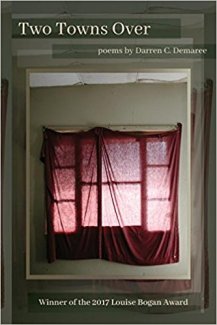
May 2018 / Diana Raab
The May Blue Heron Speaks Featured Author is Diana Raab
My Calling, Your Calling, Our Calling
by
Diana Raab, PhD
For Phoenix Soul
March 2018
I was born on May 7, 1954, which makes me a Taurus, a sign that enjoys being at home—the perfect sign for writers and poets. I was born under the same star sign as other creative individuals, such as William Shakespeare, Vladimir Nabokov, Salvador Dali, Stevie Wonder, Fred Astaire, Cate Blanchett, Peter Tchaikovsky, and Johannes Brahms.
My passion for writing began in the 1960s at the age of ten when my grandmother committed suicide in my childhood home. To help me cope with this tragedy, my mother handed me a Kahlil Gibran journal.
For hours on end, I would sit in my room, writing on the floor of my walk-in closet with clothes hanging in my face. At that early age, I learned that writing was healing and transformative, and now, more than fifty years later, I continue to write for healing, while also sharing this passion with others. Over the years, my journals actually became my best friends. They were where I jotted down my thoughts, passions, and dreams.
Often, the deep passions of our childhoods are often connected to our deep passions or callings. Certainly, this was the case for me.
When I sit down to write, there are higher forces that speak to me, and sometimes while writing, I enter a trance—I transcend universes where the deepest of creative forces are at play. I am a poet and memoirist, and for each project I’ve worked on, there’s a different muse in my presence who often guides me. Sometimes the muse is a real person, and other times, an imaginary spirit. I’ve had many muses during my writing life, all helping to ignite and keep my writing flame burning.
My mother was my first and longest-living muse. She provided me, through her complicated and eccentric life, with endless stories and inspiration. Perhaps my disappointment with her as a mother sparked my need to create. For example, I often turned to writing when she was unavailable to me. Thus, I believe that, subconsciously, she freed the writer within me.
As a child, I was inspired to read and write. Children’s passions are reinforced by the adults around them. In school and at home, I received accolades for my writing. This encouraged me to write even more. Thus, the creative spark was forever present.
When you have a profound passion, you are led to feelings of bliss, which may be defined as a natural direction to take in order to maximize your sense of fulfillment. It is a more powerful word than happiness. Sometimes people equate bliss with being in a state of euphoria, but in reality, it’s about learning what brings you joy, which is often connected to what you were meant to do with your life—that is, your calling. Mythologist and writer Joseph Campbell coined the phrase “Follow your bliss,” which is another way of saying to follow your heart or listen to your authentic inner voice, which is present in the best writing.
To find bliss, it’s wise to rid yourself of habits, situations, and relationships that no longer serve you, and replace them with those that do. Finding your bliss or your calling is about bringing into your life all those things that bring out your potential and help you live your life to the fullest.
Once you open your eyes and are aware of your bliss, opportunities start to come your way. For years, I’ve known that my bliss revolved around writing. I knew this because whenever people asked me when I felt my best, I always responded by saying, “When I’m writing.” This is true whether I’m crafting poems, blogs, essays, or books.
As my own experience shows, following your bliss usually involves connecting to your life theme. It is also a key component in achieving happiness. Bernie Siegel, in his book Love, Medicine, and Miracles (1986), says that if people manage their anger and despair and are happy in general, they typically do not get sick. He says, “One’s attitude toward oneself is the single most important factor in healing and staying well. Those who are at peace with themselves and their immediate surroundings have far fewer serious illnesses than those who are not” (p. 76).
I would like to add that following your bliss or calling is a powerful way to lead a healthy life . . . and to make your heart sing.

(Author photo by Melissa Musgrove)
About the Author
Diana Raab, MFA, PhD, is a poet, memoirist, blogger, speaker, and award-winning author of nine books. Her work has been published and anthologized in more than 500 publications. She blogs for Psychology Today, Thrive Global, and Elephant Journal. She is the editor of two anthologies: Writers and Their Notebooks and Writers on the Edge; two memoirs: Regina’s Closet: Finding My Grandmother’s Secret Journal and Healing with Words: A Writer’s Cancer Journey, as well as four poetry collections. Her latest book is Writing for Bliss: A Seven-Step Program for Telling Your Story and Transforming Your Life. Find out more about this author at: www.dianaraab.com
Writing for Bliss: A Seven-Step Plan for Telling Your Story and Transforming Your Life (Loving Healing Press, 2017)
*NOW AVAILABLE on Audible!
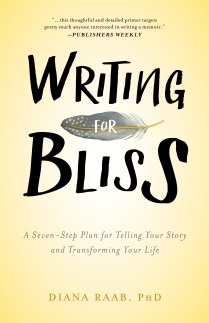
Healing with Words: A Writer’s Cancer Journey (Loving Healing Press, 2010)

Regina’s Closet: Finding My Grandmother’s Secret Journal (Beaufort Books, 2007)
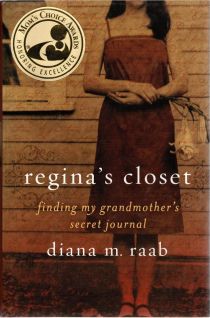
Lust (CW Books, 2014)
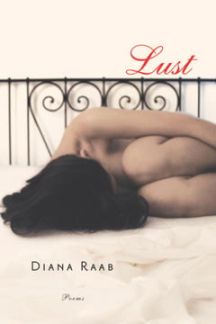
April 2018 / Lucille Clifton
The April Blue Heron Speaks Featured Author is Lucille Clifton
1994
i was leaving my fifty-eighth year
when a thumb of ice
stamped itself hard near my heart
you have your own story
you know about the fears the tears
the scar of disbelief
you know that the saddest lies
are the ones we tell ourselves
you know how dangerous it is
to be born with breasts
you know how dangerous it is
to wear dark skin
i was leaving my fifty-eighth year
when i woke into the winter
of a cold and mortal body
thin icicles hanging off
the one mad nipple weeping
have we not been good children
did we not inherit the earth
but you must know all about this
from your own shivering life
(from the terrible stories, BOA Editions Ltd., 1996)
homage to my hips
these hips are big hips
they need space to
move around in.
they don’t fit into little
petty places. these hips
are free hips.
they don’t like to be held back.
these hips have never been enslaved,
they go where they want to go
they do what they want to do.
these hips are mighty hips.
these hips are magic hips.
i have known them
to put a spell on a man and
spin him like a top!
(from Good Woman, Curtis Brown, Ltd., 1997)
the lost women
i need to know their names
those women i would have walked with
jauntily the way men go in groups
swinging their arms, and the ones
those sweating women whom i would have joined
after a hard game to chew the fat
what would we have called each other laughing
joking into our beer? Where are my gangs,
my teams, my mislaid sisters?
all the women who could have known me,
where in the world are their names?
(Listen to a recording of “the lost women” at the Poets.org site.)
blessing the boats
(at St. Mary’s)
may the tide
that is entering even now
the lip of our understanding
carry you out
beyond the face of fear
may you kiss
the wind then turn from it
certain that it will
love your back may you
open your eyes to water
water waving forever
and may you in your innocence
sail through this to that
(from Blessing the Boats: New and Selected Poems 1988-2000, BOA Editions Ltd., 2000)
(*All poems sourced from the Poetry Foundation online and Poets.org.)
About the Author
Lucille Clifton (1936–2010) “A prolific and widely respected poet, Lucille Clifton’s work emphasizes endurance and strength through adversity, focusing particularly on African-American experience and family life. Awarding the prestigious Ruth Lilly Poetry Prize to Clifton in 2007, the judges remarked that ‘One always feels the looming humaneness around Lucille Clifton’s poems—it is a moral quality that some poets have and some don’t.’ In addition to the Ruth Lilly prize, Clifton was the first author to have two books of poetry chosen as finalists for the Pulitzer Prize, Good Woman: Poems and a Memoir, 1969-1980 (1987) and Next: New Poems (1987). Her collection Two-Headed Woman (1980) was also a Pulitzer nominee and won the Juniper Prize from the University of Massachusetts. She served as the state of Maryland’s poet laureate from 1974 until 1985, and won the prestigious National Book Award for Blessing the Boats: New and Selected Poems, 1988-2000 (2000). In addition to her numerous poetry collections, she wrote many children’s books. Clifton was a Distinguished Professor of Humanities at St. Mary’s College of Maryland and a Chancellor of the Academy of American Poets.”
…
“In an American Poetry Review article about Clifton’s work, Robin Becker commented on Clifton’s lean style: ‘Clifton’s poetics of understatement—no capitalization, few strong stresses per line, many poems totaling fewer than twenty lines, the sharp rhetorical question—includes the essential only.’”
…
“Both The Terrible Stories (1996) and Blessing the Boats: New and Selected Poems, 1988-2000 (2000) shed light upon women’s survival skills in the face of ill health, family upheaval, and historic tragedy. Blessing the Boats is a compilation of four Clifton books, plus new poems, which, Becker noted in her review for American Poetry Review, ‘shows readers how the poet’s themes and formal structures develop over time.’ Among the pieces collected in these volumes are several about the author’s breast cancer, but she also deals with juvenile violence, child abuse, biblical characters, dreams, the legacy of slavery, and a shaman-like empathy with animals as varied as foxes, squirrels, and crabs. She also speaks in a number of voices, as noted by Becker, including ‘angel, Eve, Lazarus, Leda, Lot’s Wife, Lucifer, among others … as she probes the narratives that undergird western civilization and forges new ones.’”
…
“Speaking to Michael S. Glaser during an interview for the Antioch Review, Clifton reflected that she continues to write, because ‘writing is a way of continuing to hope … perhaps for me it is a way of remembering I am not alone.’ How would Clifton like to be remembered? ‘I would like to be seen as a woman whose roots go back to Africa, who tried to honor being human. My inclination is to try to help.’” (*Selected excerpts from Lucille Clifton’s biography quoted and sourced from The Poetry Foundation site.
The mistake teachers sometimes make is that they think art and poetry—they think that’s about answers, and it’s not about that, it’s about questions. So you come to poetry not out of what you know, but out of what you wonder. —Lucille Clifton
Blessing the Boats: New and Selected Poems 1988-2000 (BOA Editions Ltd., 2000)
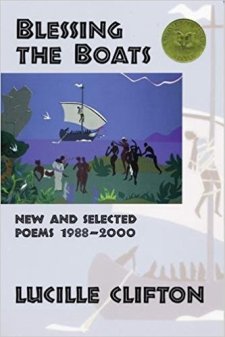
Good Woman: Poems and a Memoir 1969-1980 (BOA Editions Ltd., 1987)
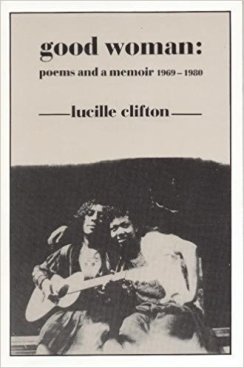
The Book of Light (Copper Canyon Press, 1992)
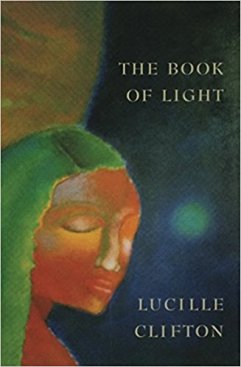
The Collected Poems of Lucille Clifton 1965-2010 (BOA Editions Ltd., 2012)
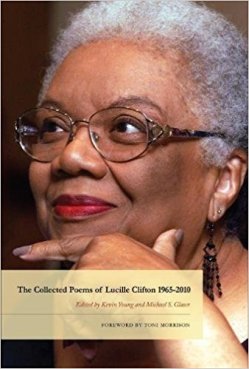
March 2018 /
Rosalie Sanara Petrouske
The March Blue Heron Speaks Featured Author is
Rosalie Sanara Petrouske
Life Pressed
In the book I am reading,
I turn a page,
find a brown spider pressed—
wonder how this small house spider
ended up here? Long ago,
I collected flowers and leaves
with my grandmother. She held
my hand while I smoothed
the fragrant petals,
placed them between
pages of a Montgomery Ward catalog.
Somewhere in the basement,
a box holds one of my old scrapbooks,
the cardboard kind with gold filigree edging
and a knotted string like a shoelace
holding its cover together.
I showed it to my daughter once,
the crumbly oak leaves, blue bell-shaped flowers
my grandmother called harebells, orange butterfly
weed and white meadowsweet.
The flowers are so old now,
their edges outlined in yellow, crooked
silhouettes of nature—if you touched one
it would surely dissolve into dust
like the spider does when it falls from my book
and lands amongst the crumbs
of the scone I am eating.
(from What We Keep)
Moon of Winds
The waxing crescent moon is milky tonight:
Fish Moon, Sleepy Moon, Moon of Winds.
I follow you as I drive home.
Lonely for the river, I turn away
to forget the temptation of the water
rippling through the dark.
Instead, I go inside my house, eventually curl up
on my side of the bed, tuck my arms around me,
crisscrossed tightly over my chest,
and let sleep carry me to oblivion,
until I forget it is only my own arms
pressing tightly,
holding my heart in place.
(first published in Peninsula Poets)
My Daughter Peels an Orange in Winter
Cold clashes on the lake
and somewhere ice breaks
But here, in a silent splash
of golden light from the room’s
solitary lamp, my daughter peels
an orange, hooks her thumbs
beneath the skin and pulls.
So serious, I think, in her
concentration. At five, she knows
centrifugal force. This is what happens
when I spin around on my sled, she says.
Now the warm scent of oranges beckons
to me in the kitchen washing dishes,
draws me to the other room
where oranges flower in air.
I bend to kiss my daughter’s hair,
and she offers a crescent slice,
a grove in Italy, fields humming
full and green with life.
When I was a child, I held my arms
to my chest tight, spun in circles,
willed the earth to stop spinning,
yet it was always me.
The present becomes the past.
There is no way to capture
the light—Shutter, snap, click.
Frame my daughter peeling oranges
on a December night.
(from A Postcard from My Mother)
My Daughter Learns
Premature, my daughter was yanked into the stiff air and swaddled.
It was four days before she knew her mother’s flesh.
Groping blindly she sought the curve of my cheek.
I was a fever radiating to her small fingers.
So I wrapped her in the nakedness of mother and father,
entwined in arms, against breasts and chest during her first winter.
I show my daughter colors—
At first she discerned only light and dark—shapes
dominated by my face. Then she resounded
with joyful trills at the red bowl, her own hand,
the slope of light on her father’s nose—
my daughter’s first seeing.
At eight months she learns touch like the blind,
spreading her hands over objects, over my eyebrows
and lips, greedy for sensations.
She pushes her tongue across my palm—licks
at the salt of my skin. Daughter, I tell her, this is good.
She pushes her own fingers into her mouth, startles
herself with their sweetness.
Her first bites of tangerine, of quince, of ripe cherry.
What a delight! All this to choose from, all this to savor—tartness,
honey, and brine. She pushes her tongue forward, over her lip,
licks. There will be many firsts, I tell her—tongue to snow, to rain,
to the curves of a lover’s back, and essences to inhale.
Yes, daughter, take great gulps of the world.
Her infant voice rises in pure notes—halves of scales
that reach out and test the air. She cocks her head to listen
for scraps of noise—the scratching of winter moles,
whir of rain-slapped streets.
I form words around my tongue for her—teach her
to mimic the Oh’s and Ah’s, the beginning of her voice
calling out above her crib at night to the round
moon face; I can teach her lilting rhythms, senseless
rhymes, but she must let it spill into the air,
that mysterious shape—
her first word.
(from A Postcard from My Mother)
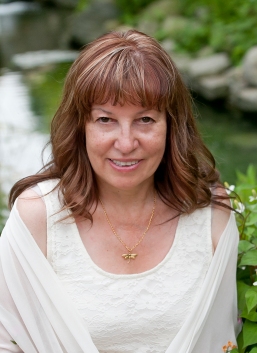
About the Author
Rosalie Sanara Petrouske believes that “poetry saved her.” When she was sixteen years old, she lost her father, who spent many hours walking through the woods with her, teaching her about the natural world. She began writing about her loss and the improbability of life mingled with images of sky, forest, and the big lakes, Michigan and Superior, where she has lived on both shores during different seasons. Since then, her publications include Passages North, the Southern Poetry Review, Red Rock Review, American Nature Writing, Lunch Ticket, and numerous others. In 2015, the Michigan Poet featured her poem, “New Year’s Day,” in a broadside. She has two poetry chapbooks, the most recent, What We Keep, from Finishing Line Press in 2016. You can find out more about Rosalie’s work on her Facebook author page. She also has a writers’ group page and an Amazon author page. A video of her poem, “Before Leaving,” is available to watch on YouTube.
What We Keep (Finishing Line Press, 2016)
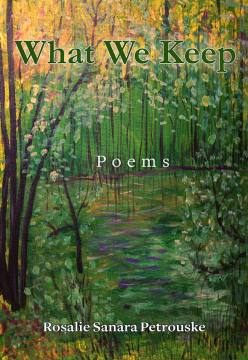
February 2018 / Yvonne Stephens
The February Blue Heron Speaks Featured Author is Yvonne Stephens
Taking in the Sun
Cut in to the sun-lit-up top
of the river with my canoe oar.
Sliced out as big a piece as I could get,
slid it into the basket at my hip like a fish.
Took my chunk of sun home,
put it in a jar with some yeast.
The yeast fed
on the sweetness of the sun.
Fished out the glowing spheres
of carbonation with a spoon —
as many as I could get.
Lined them up
around the base of my neck
and wore the sun.
Tomato Hornworm, a Study
In July, I couldn’t keep you
off my tomato plants —
I put an end to your softness
with my shoe.
A drought year, a cold one, too —
tomatoes grew in tight curls
like your body.
They didn’t have your eyes, though.
What is that horn for?
I’d like to see you use it.
I hear you chew.
I see what you leave behind.
Too soft to pluck,
a friend cuts you off with scissors —
there’s an idea.
September, instead of tomatoes,
I seek you, caterpillar to cocoon.
Did my son scare you off?
The way he’d toddle over, bite
the green fruit?
Or was it the way I looked at you
with my lonely eyes?
It wouldn’t be the first time.
The Four of Us
Loyal lips, tongues, fingers, feet.
Hope is you in your suit,
blue blue blue, indigo blue.
Loyal, the dog in the corner
covered in song —
Freedom is mouth open to sky,
hope is your billowy dress,
it becomes fish.
Freedom, gills in the water
a kind of song —
Fear is our quiet eyes.
Hope is the movement
to the streets.
Until then, it’s the four of us —
the salt before it shakes.
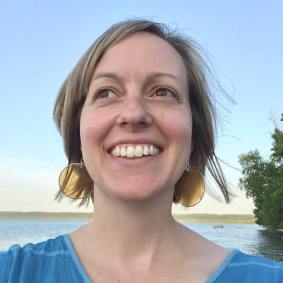
About Yvonne Stephens
Yvonne Stephens lives with her husband and two children in Northwest Lower Michigan. She has worked as an assistant in the fields of mycology, forestry, and neurology research, volunteered for two years in the AmeriCorps, and most recently was an Artist Residency Coordinator for the Crosshatch Center for Art and Ecology. An award-winning poet, Yvonne was nominated for the Pushcart Prize in 2015, and her poems have appeared in the Dunes Review, the LAND Creative Writing Journal, and Family Stories from the Attic. She is the author of The Salt Before It Shakes (Hidden Timber Books, 2017). Find out more about this author: http://www.poetwith40eyes.com/
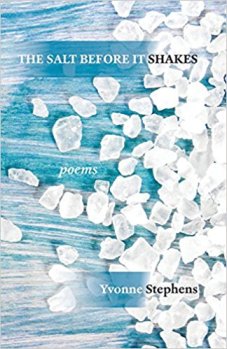
The Salt Before It Shakes (Hidden Timber Books, 2017)
Available online: on Amazon and also Barnes and Noble
January 2018 / Michael Hettich
The January Blue Heron Speaks Featured Author is Michael Hettich
To Blow Away, Like Mist
A man I knew felt sometimes as though there was a dog
stuck inside his body, almost as large as he was—
black lab or golden retriever—unable
to move in that cramped dark, yet waiting for something,
listening to the sounds outside him, in the world.
When humans were lost in the rubble of disasters,
dogs like his inner life worked tirelessly—
beyond exhaustion, even to the point of death—
to save the victims, or locate their bodies.
The man knew he wasn’t gifted with that kind of vivid selflessness,
that he lacked the keen senses such heroic dogs need.
This realization always opened a great emptiness inside him:
He could let himself seem to blow away then, like mist
in tall grass at dawn before anyone’s walked there
or even looked out at it, when the day’s breeze rises
and each blade of grass is lifted into clarity,
each stalk standing more taut as it dries,
and the small birds swoop down to disappear there for a moment
then swirl themselves up into the unencumbered sky.
(First published in Notre Dame Review)
To Start an Orchard
Whatever silences we’d always maintained
we continued to nurture, like the fruit from a landscape
that was foreign to us, even after all these years,
a fruit we weren’t sure whether to peel,
cook or eat raw, which we kept on our windowsill
until it had withered and dried and was somehow
beautiful, like a curiosity we’d collected on the beach
that reminded us of journeys, fathomless depths,
and yet was just a piece of fruit, desiccated and black,
curled like the pit of a dream, or a nut.
And so, when you spoke, or tried to, a small plant
emerged from its folds and darkness, delicate
and proud and needing to be watered until
it could be planted outside. I could already
hear the birds singing from its wilderness of branches.
I was already humming to the buzzing of its bees.
(First published in Prairie Schooner)
The Milky Way
If we could imagine that every word we speak
were an animal or insect, the last of a species
ever to be born, that the very act of speaking
brought extinction even before our words
had been heard and replied to, we might get a feeling
for the vanishings we witness but don’t see. And if every
conversation were understood as a kind
of holocaust denuding whole landscapes, some people
would simply fall silent—as far as they could—
while most others would keep chattering on. Just imagine
the vast forests of lives, the near-infinity of forms
brought to a halt with a simple conversation.
And I would be one of the talkers, despite
the fact that I knew what my talking destroyed.
And so I would mourn every word I said,
even while I argued passionately for silence
and for learning to honor the sacred diversity
of life. Just imagine watching the stars
go out on a dark night in the far north, a clear night,
one after the other until the sky was black.
Once, when I was taking out the garbage, just walking
dully across my back yard, a huge bird—
as big as a vulture but glittering and sleek—
rose from the grass and flew into my body,
knocked the breath out of me, then flew up and away
with a powerful pull of its wings. I could hardly
see it in the darkness. And then it was just gone.
(First published in Great River Review)
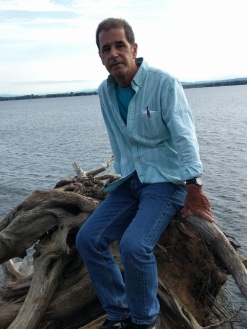
About Michael Hettich
Michael Hettich has published over a dozen books and chapbooks of poetry, including Systems of Vanishing (winner of the Tampa Review Prize, 2014), The Animals Beyond Us (New Rivers, 2011), and Like Happiness (Anhinga, 2010). His new book, The Frozen Harbor, won the David Martinson/Meadowhawk Prize and was published this summer by Red Dragonfly Press. In addition to Blue Heron Review, his work has appeared in such journals as Ploughshares, Prairie Schooner, Alaska Quarterly Review, Orion, Poetry East, and TriQuarterly. He lives in Miami, where he regularly collaborates with visual artists, musicians, and other writers. His website is michaelhettich.com
The Frozen Harbor (Red Dragonfly Press, 2017)
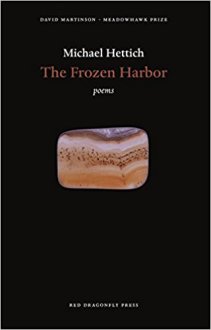
Systems of Vanishing (University of Tampa Press, 2014)
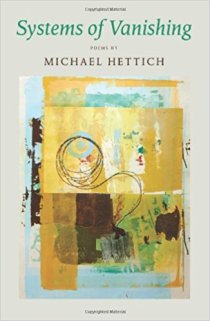
The Animals Beyond Us (New Rivers Press, 2011)
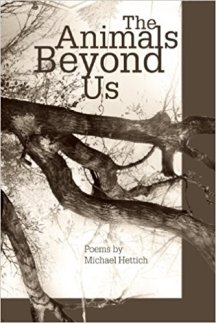
Like Happiness (Anhinga Press, 2010)
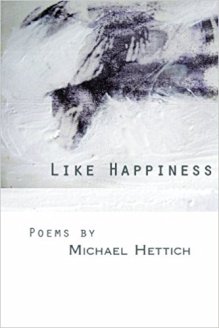
December 2017 / Chris Abbate
The December Blue Heron Speaks Featured Author is Chris Abbate
Talk About God
What was that talk about God before dinner,
those chants before eating, gazing into the chandelier?
Maybe it was our way of talking to each other,
a cotton language we filled with soft words,
the kind we imagined our parents spoke
between their pillows while we slept.
Why did Grandma hold Jesus on a cross
between her fingers while she watched soap operas?
Was it the same man she spoke to in the ceiling
after she had lost her keys, and shouted thanks to
when we heard them jingle in her pocketbook?
He hung at the head of our classroom
and we talked to him whenever we needed help too.
What were the word circuses we created at Mass,
the white tent and menagerie over our bowed heads
as if we needed forgiveness?
Afterwards, we would shed our penitent blazers
while the adults spoke through steam
over the rims of Styrofoam coffee cups.
Their words sounded like sugar.
What was the weight teachers dropped into our backpacks,
the stones of catechism we carried home in school uniforms?
We wore our house keys under crisp white Oxfords.
We let ourselves inside, but still looked both ways
before slipping a self-conscious hand into the cookie jar.
Why did they say God was keeping score?
Is that why Dad said he could never catch a break, like Job,
or why Mom said lying would turn my tongue black?
I would check in the mirror each morning
that it was still pink like I pictured the rest of my insides.
Why did we build ladders to the sky those Catholic years
or squeeze our eyes closed praying for water
when we held ten thousand years of rain?
Enough to sprout oceans,
enough to contain leviathans.
Jesus and Ma
Ma thanked Jesus
when she found her keys
or remembered the right amount of flour.
She thanked him when she made water
and when rain left clear beads on her tulips.
Jesus was supper on the table,
a reattached button,
pressed shirts and pants,
Pa’s gin and tonic.
When Ma talked about God
she tapped her temple.
When she talked about Jesus
she meant her hands.
When she said Spirit willing
she meant if she willed it.
To Ma, Jesus was round
like the ways to eat an apple,
the sunlight in her kitchen,
her husband’s head on the pillow,
her breasts in the mirror.
Ma switched Jesus off each night
with her sewing machine and stove.
She tucked him deep inside
her house slippers,
next to the mystery novel by her bed.
What It Means to Be Saved
Our conversation over breakfast
failed to untangle
the religious circuitry of my childhood –
my mother’s yarn of God,
what it means to be saved –
despite Sunday morning,
its ham and eggs with thyme,
and the forks and knives
of our dissection.
How fortunate living doesn’t require
that we understand the body’s systems,
its essential beat and hum.
The same as the universe,
its unspoken laws
and sentient incarnations.
These hands, even.
After breakfast I pick
last fall’s muck from the gutter.
You brace the ladder
while my arms reach skyward.
Maybe being saved is about paying attention, I say,
as we steer the ladder along the house.
The spiders have worked
all evening spinning their webs.
We are careful not to break them.
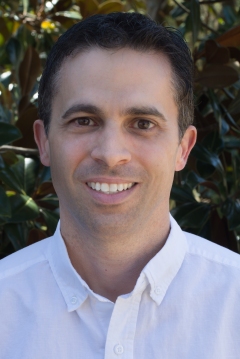
About Chris Abbate
Chris Abbate’s poetry has appeared in Chagrin River Review, Blue Heron Review, and Comstock Review, among other journals. He has been nominated for the Pushcart Prize and a Best of the Net award, and has received awards in several poetry contests. Chris’ debut book of poetry, Talk About God, (Main Street Rag, September 2017) pays tribute to growing up and to family, while exploring the gray areas and ragged edges of religious experience. He has a B.A. in English from Gordon College (Wenham, MA) and an M.A. in English from Southern Connecticut State University. A native of Hartford, CT, Chris resides in Holly Springs, NC with his wife and their papillon, Louis. He works as a programmer analyst for clinical trials and volunteers coaching youth in The First Tee golf program. For more information and to order Talk About God, visit www.chrisabbate.com.
Talk About God (Main Street Rag, 2017)
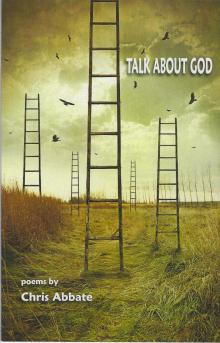
November 2017 / Marguerite Guzmán Bouvard
The November Blue Heron Speaks Featured Author is
Marguerite Guzmán Bouvard
Look Above Us
The mountain slope is dwarfed
by the passage of massive clouds,
moving in different directions and
continually changing shapes; the smaller ones
that are transparent soar upwards like spume
from behind the dense, furling waves
that have taken over the sky. The Alps’ tallest
peaks seem miniature as if the wind
were telling us a story about dimensions;
the size of a speeding truck, an open
page in a book, a clump of soaring pines,
are like moments in time, and
that transcendence and mystery
are part of our lives.
Geshe
Opening a book about Dharamsala, a distant
country and another way of life, I see
a portrait of a Buddhist monk, a Geshe,
a doctor of philosophy, looking out at me,
his face radiating calm, peace
and the knowledge that we pass by, both
in schools and in seminaries.
From the doorway of his damp, cold
and bare hut where he meditates,
his face emanates a holiness that is inclusive,
a richness of spirit that rises above
our shadows, our petty quarrels, our hunger
for power and material wealth, untouched
by the passage of time, war and
enmity, surrounding us with warmth,
and the depths of his understanding.
Ahihi Kanu Natural Reserve
Here the jumbled stones are rounded
by their travels in the ocean, stones
whose journeys may have begun
in the stars, an aged mesquite all furrows
and lines, tall, dignified, rising up
in its eminence with the wisdom
of centuries, the sudden surges
of yellow grasses from the lava reminding
us that the creation moves forward
with a power that lies beyond us,
the eerie creaking of the top branches,
the outline of what was once
a Hawai’ian dwelling, and always
the murmuring of the surf telling us
its stories—there are voices all around
us, even in the colors of the sky,
the soft violet-mauve this dusk that speaks
of tranquility in our shadowed world.
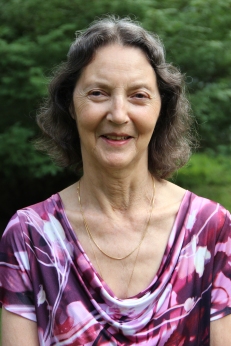
About Marguerite Guzmán Bouvard
Marguerite Guzmán Bouvard is the author of 8 poetry books, two of which have won awards. The Unpredictability of Light (WordTech Communications, 2009) won the MAssBook Award for Poetry. She has also published many non-fiction books. Her latest, Social Justice and the Power of Compassion (Rowman & Littlefield Publishers, 2016), came out this year. Her books cover human rights, grief, illness, and women’s rights. She is a former professor of Political Science and Poetry and is currently a Resident Scholar of the Women’s Studies Program at Brandeis University. Marguerite’s most recent poetry book, The Light That Shines Inside Us (Diálogos, 2013), is on Amazon. Her website is www.MargueriteGBouvard.com
The Light That Shines Inside Us (Diálogos, 2013)
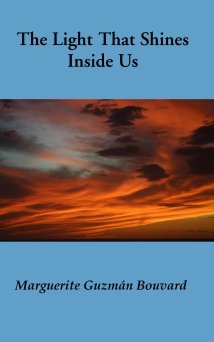
The Unpredictability of Light (WordTech Communications, 2009)
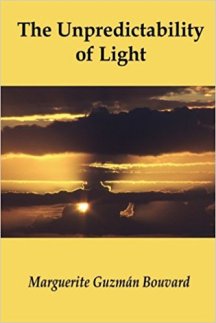
October 2017 / Prerna Bakshi
The October Blue Heron Speaks Featured Author is Prerna Bakshi
Refugees and names
(Previously published in Up the Staircase Quarterly)
When you’re the child of a refugee,
one of the first lessons you learn in school
is that your name – no longer
belongs to you.
That it will be hounded, shamed and replaced
with a brand new name, given
by members of the host country
with their rubber-stamp on it.
That it will be stripped of
all of its meaning, all of its history.
That it will be molded until
all the a’s turn into u’s;
until all the tones
become flat;
until the host country’s language
becomes the first and only language of the child.
His first day at school
in his new found host country,
my father gets scolded
by the Hindi teacher,
my grandparents get blamed
for not naming him correctly,
get mocked for not knowing
Hindi well enough.
No such thing as Taran,
the teacher remarked,
the correct word is Tarun – meaning young. Now repeat after me.
He was to remain Tarun, from this point on.
In Punjabi, my father’s native tongue,
Taran means savior, that’s what my grandparents thought he was,
when they made it to the other side of the border
alive, during the Partition.
My grandma was then
pregnant with my father.
My father survived
but his name didn’t.
Road to Patel Nagar
(Previously published in Off the Coast Magazine)
Maybe it’s an Indian thing,
but my father can’t talk
without using his hands.
My earliest memories of
the roads of Delhi were
me sitting on the backseat of this
ancient, maroon-colored Lamby Polo scooter
that my father used to drive.
To get it started, it had to be kicked
twice, thrice, maybe.
It made a hell of a noise.
You could say it was one of a kind.
My father loved driving it.
He also loved telling me the nuts and bolts of
navigating Delhi—where each place was
and where each road led to,
what was the shortest route and
what took the longest.
Which bus number to take and
which one to avoid.
He’d tell me all this, all while
using his hands.
Sometimes with his left hand in the air,
sometimes his right.
His hands off the steering wheel,
my heart
shifting from left to right.
Come Patel Nagar and he’d switch gears.
He’d tell me this is where he lived
as a child, right after the Partition.
Renting, a family of 12 in two rooms,
almost the whole colony
made up of refugees.
He’d tell me the same story
each time we drove through
Patel Nagar, each time
we drove through its streets.
The same story, each time
every time.
The same start, the same end.
Never once missing a beat.
Now with his old house gone and
the old scooter gone, those
slightly frail and wrinkled hands
of his still dance
on the road to Patel Nagar—the road
to his heart,
the shortest route there was.
Forgotten
(Previously published in Wilderness House Literary Review)
With no lullabies to sing,
no stories to tell,
no songs remembered,
I rock the cradle gently,
hoping it will stop you from crying,
but you continue to cry.
I lift you up,
bring you back down again,
kiss you on your cheek and then back up again.
I do this several times,
hoping it will stop you from crying,
but you continue to cry.
I try to feed you.
Pat your tummy.
Talk to you.
Play with you.
But none of this works,
as you continue to cry,
you continue to cry, cry, cry, cry, cry,
until Amma speaks to you
in your tongue – the mother tongue.

About Prerna Bakshi
Prerna Bakshi is a writer, poet and activist of Indian origin, currently based in Macao. Described by Catch News as a “fiery feminist,” she is a two-time Pushcart Prize nominee and the author of the full-length poetry collection, Burnt Rotis, With Love (Les Éditions du Zaporogue, Denmark, 2016). Her book was long-listed for the 2015 Erbacce – Press Poetry Award in the UK and was cited as one of the “9 Poetry Collections That Will Change The Way You See The World” by Bustle magazine in the US. Her work has been published in over 100 literary journals, magazines, media, and newspapers, including The Huffington Post, The Kashmir Monitor, Chiron Review and TRIVIA: Voices of Feminism, as well as anthologized in several collections, most recently in A Shadow Map: An Anthology by Survivors of Sexual Assault by Civil Coping Mechanisms (2017). She tweets at @bprerna. For more information: http://prernabakshi.strikingly.com/
Burnt Rotis, With Love (Les Éditions du Zaporogue, Denmark, 2016)
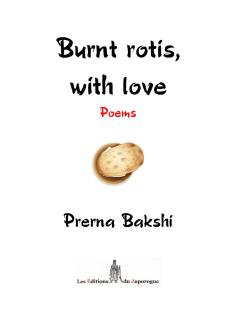
September 2017 / Rachel Dacus
The September Blue Heron Speaks Featured Author is Rachel Dacus
At the Inn of the Sea
You harvest scallop shells
and arrange them like gems
on a gray velvet cloth.
Their undulating edges cut you open
and out pours ocean brine.
The shore, that hall of waves,
claps astonished all night.
At the inn of the sea, the sheets
lap on your drowsing form,
and you wonder why you stayed
on land so long. You wrap your arms
around pillows like mossed boulders.
float in your sleep, then wake
arranged on the sand. In the afternoon,
you become the bouquet on the table.
Here at the summer inn,
the physical world bursts
out wild every day. As if evil
is just an aberrant weed
in a vast undersea forest
that can consume every quirk and blip.
I stand silent before a hydrangea’s
blue symmetry, its sphere of birth
implying an epoch to begin fresh,
a world as heavenly as it always
meant to be, and mine becoming
a more celestial body.
Just There
On the other side of a curtain moving in a breeze
of breathing is the place where you hold
your breath as you dream.
On the other side, just there, I see the gone ones
digging in unearthly ground, planting
the seeds of the future. Purple and golden
blooms immediately unfurl in trumpets.
No waiting, no growth, just there
almost within touch of a finger.
They’re all whispering to themselves,
telling the stories they left behind
like rosaries, like mantras, like the hum of bees
in a ruined August orchard, the occasional
crystalline notes tinging away.
I hear my vanished beloveds murmuring.
Arabesque
First arabesque: stand on the right leg with the left leg extended, right arm forward at eye level, parallel to right shoulder, left arm at the side, slightly behind and below the shoulder. An ornamental design of intertwined flowing lines, as in Arabic or Moorish decoration.
1.
Rising into the difficult position, hold on
trembling until you can’t. When you start
down the path with a dumb foot pointing
to the earth’s corners in shaky tendus
and battements, being tortured en croix, endless
repetitions, hang on and sweat into the barre.
Learn that practice is dear, find art
in endlessly aiming. Arabesques earned
by each inch. The grace of swan wings
can’t be fluttered into in one day
but grows subtle and articulate
as dust motes streaming through a light beam.
Bend and hold. The stretch wins opulence.
In the changing room afterward
rehearse the weight of your legs, lifting
to unroll the tights and pull on jeans.
The moment of jumping to four-four passages
echoes in your numb feet and arms
as you fall asleep, steps on the floor, a quick
arabesque into dawn. Ambition is born
in the mother lap of endurance.
2.
Precariousness. Shoulder it. Take up
the position like a cross. Ask yourself
what it’s been about and come down
into that solid pillar of your own leg
under your arched body. Don’t let it quiver.
Secure your inner strength like a pole
on which to hang a life’s work.
You may yet have a late glide
across the stage, or you can still pose
in a moment of new-gold dawn,
a self-twirl with one hand trailing
and one pointing the way.
Do it now on a page.
3.
Live in your lovely prison,
your catenary curve
of compulsions and interrupts
of ticking longing. With family pictures
hung askew of marriages, births, deaths.
Poise yourself between them,
having stood on one leg for decades.
Your stance has grown strong.
Eyes front, slowly lift
your lichen-encrusted arms
and your fingers’ wiry twigs.
Let them sprout.
Arabesque branching out.
4.
In Ugarit they baked their dictionaries,
clay tablets incised with punctures and points,
arched and tented words. The idea of reading
marks may have come from the leaves’
dancing shadows. This morning the tree’s
shadows script moving letters on my wall.
Likeness is our essential speech.
Shapes echo others. The eye is a leaf
and its own tear. A preying mantis
profiles a priest. Clouds coil,
and we are all walking texts
waiting to be read.
5.
Shoulder the way forward in épaulement,
accept childhood as a torso twist,
the contr’apposto aches of parting
and death make la bella figura.
Life becomes a Bernini-twist of bodies
in motion and emotion arabesques
through pen and pain. I look over my shoulder
and pose the recursive question:
how can I seek beauty in this world
of slipped discs, gripping existence
with worn muscles and ligaments—is this
a sprain of yearning? Have I reached
too far? And yet would do it all again,
the spiral of mistakes that led me here,
to be taut on my own bow, arrow
aiming too high, wanting too much flight.
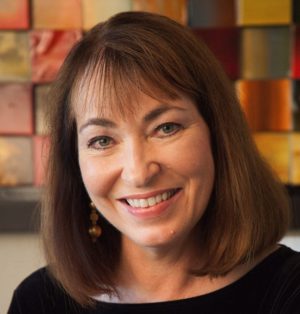
About Rachel Dacus
Rachel Dacus is the author of Gods of Water and Air (Aldrich Press, 2014), a collection of poetry, prose, and drama, and the poetry collections Earth Lessons (Bellowing Ark Press, 1998) and Femme au chapeau (WordTech Communications, 2005). Her poetry and prose have appeared in Atlanta Review, Boulevard, Prairie Schooner, The Pedestal, and Valparaiso Poetry Review. The Renaissance Club, her time travel novel involving the great Italian sculptor Gianlorenzo Bernini, is forthcoming in January 2018 from Fiery Seas Publishing. Her fourth poetry collection, Arabesque, is forthcoming in August 2018 from FutureCycle Press. Read more at https://racheldacus.net
Gods of Water and Air (Aldrich Press, 2014)
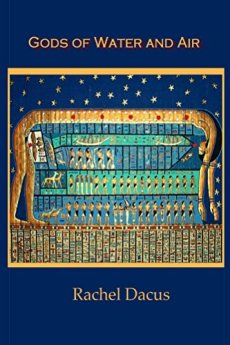
Earth Lessons (Bellowing Ark Press, 1998)
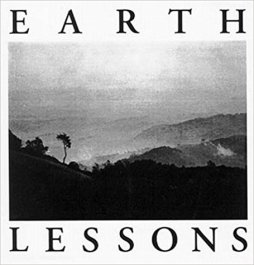
Femme au chapeau (WordTech Communications, 2005)
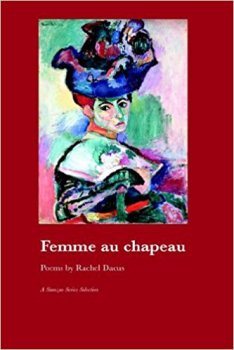
Please Note: The Blue Heron Speaks page will be on summer hiatus for July and August. We will have a new line-up of featured authors again in September 2017. Thank you, and enjoy the summer break!
JUNE 2017 / TOM MONTAG
The June Blue Heron Speaks Featured Author is Tom Montag
After a Line by Charles Wright
Beauty has not been
my misfortune.
I have been blessed
to chase darkness
from the cave of night,
to find stillness in
this perfect moment,
to touch this wide open,
this yawning world.
There
Somewhere a star
lights another
window. Wind in
its distance rustles
another kind of
tree. Another
kind of eye waits
its patience. Our
sun in someone
else’s star. Nothing
she says is nothing
I hear from here.
O, the darkness.
Such distance.
Legacy
If no one
wants it, I will
tell her, throw
it away.
Burn it. It
doesn’t matter.
I did the best
I could. If
someone needs
it, they will
read the ashes
and understand.
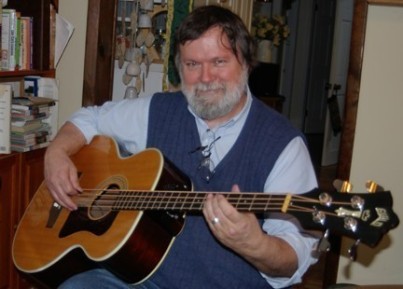
(photo by Geri Burk)
About Tom Montag
Tom Montag, most recently the author of In This Place: Selected Poems 1982-2013 (MWPH Books, 2014), This Wrecked World (Bitterzoet Press, 2016), and The Miles No One Wants (Otata’s Bookshelf, 2016), has been a featured poet at Atticus Review, Contemporary American Voices, Houseboat, and Basil O’Flaherty Review, and has received Pushcart Prize nominations from Provo Canyon Review, Blue Heron Review, and The Lake. Montag’s poem “Lecturing My Daughter in Her First Fall Rain” was incorporated into the design of Milwaukee’s Wisconsin Convention Center; read the poem and see a photo HERE. Peter Stephens has given thorough attention to Montag’s The Big Book of Ben Zen and In This Place at Slow Reads. Your One Phone Call did a lengthy interview with Montag. Montag blogs as The Middlewesterner. With David Graham, he is currently editing an anthology of poetry about small town America. Montag’s favorite comment about his work comes from a Turkish writer who said: “Tom, you are my favorite Chinese poet.”
In This Place: Selected Poems 1982-2013 (MWPH Books, 2014)

The Big Book of Ben Zen (MWPH Books, 2003)
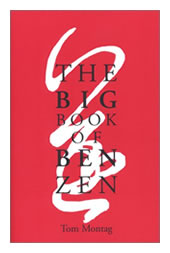
MAY 2017 / HEDY HABRA
The May Blue Heron Speaks Featured Author is Hedy Habra
Bricolage
Go every day a little deeper
into the woods, collect acorns,
twigs, thorns, fallen leaves,
pine needles, a fern’s curl,
a bird’s nest, a lost feather,
spring air, hot, humid air, a raindrop,
a touch of blue, a ripple,
and why not the hush
of your steps over moss,
the trembling of leaves
at dusk against black bark?
Put it all in a bag and shake it:
you will retrace your steps
within the clearing, hear frightened
flights, see the rain darken the deck,
flatten oak leaves, silence songs,
answer the root’s mute prayer.
First published by GraFemas
From Tea in Heliopolis (Press 53 2013)
Broken Ladder
I am no longer this little boy who ran away at night to milk the moon and stars. What am I to do if the ladder is broken, leaving golden threads dangling in broad daylight, braided rays of hardened light yet fine as silk spun by a silkworm, once linking me to that lost site of fearless joys? But I will send back the stardust I fed on for so long. Now you know why I study the Almanac, awaiting for the right day and time when wheat is ripe, reaching high into those rays of light. You know why I’m here, in the midst of this field, dressed in my Sunday clothes: I will pull these gilded chords as those of a tower bell ringing above beckoning a gift filled with the substance of dreams, wrapped with Queen Mab’s veils. Don’t fear it is too heavy: it weighs less than a breath or a sigh. Let the wind blow softly, watch it rise to the top with your eyes closed.
First published by Pirene’s Fountain in First Water, The Best of Pirene’s Fountain Anthology
From Under Brushstrokes (Press 53 2015)
Open-Air Cinema in Heliopolis
You used to say, mother:
“Let me see your face when lit
by a crescent moon:
every day of the month
will smile the way you do.”
We saw double-feature movies
in open-air theatres.
The cool breeze ran through our hair,
over our necks, lifted our skirts,
swayed us in a magical carpet.
Tempted by vendors chanting
Greek cheese and sesame breads,
we often stayed, sipping icy lemon
granitas through replays, the lift
and pause of cascading light.
Characters entered our own
camera obscura.
We never agreed on their age:
you added a few years,
I wanted them closer to mine.
I remember a recurrent scene,
fading now into a sepia cameo,
where a woman–always the same
yet different–slaps a man
before falling in his arms.
I watched your face then,
as stars outlined the sky,
the slight opening of the lips,
the Gioconda’s elegant smile
you allowed yourself,
befitting the sfumato of the late hours.
Arm in arm, we walked home,
following the trail of the moon.
First published by Cutthroat: A Journal of the Arts
Finalist in Nimrod’s Pablo Neruda Prize
From Tea in Heliopolis (Press 53 2013)
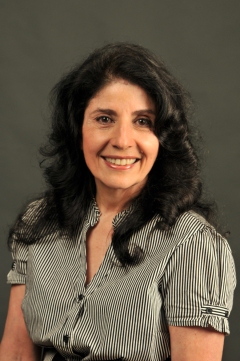
About Hedy Habra
Hedy Habra has authored two poetry collections, Under Brushstrokes, finalist for the USA Best Book Award and the International Poetry Book Award, and Tea in Heliopolis, winner of the USA Best Book Award and finalist for the International Poetry Book Award. Her story collection, Flying Carpets, won the Arab American National Book Award’s Honorable Mention and was finalist for the Eric Hoffer Award. A recipient of the Nazim Hikmet Poetry Awards, she was a six-time nominee for the Pushcart Prize and Best of the Net. Her work appears in Cimarron Review, The Bitter Oleander, Blue Fifth Review, Cider Press Review, Drunken Boat, Fifth Wednesday Journal, Gargoyle, Nimrod, Poet Lore, World Literature Today, and Verse Daily. Habra has a passion for painting and teaches Spanish at Western Michigan University. Her website is hedyhabra.com
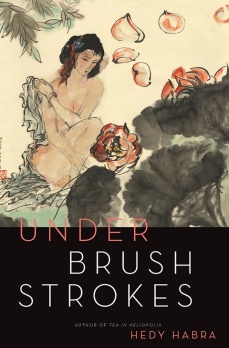
Under Brushstrokes (Press 53, 2015)
Available from Press 53
Available on Amazon
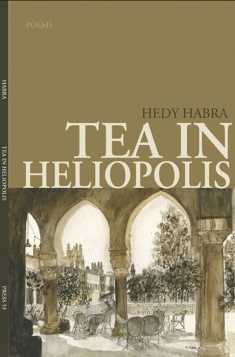
Tea in Heliopolis (Press 53, 2013)
Available from Press 53
Available on Amazon
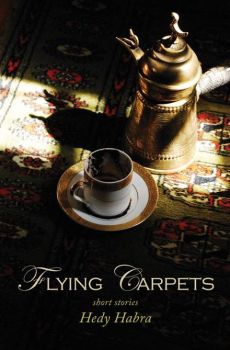
Flying Carpets (Interlink, 2013)
Available from Interlink
Available on Amazon
APRIL / 2017 Gwendolyn Brooks
The April Blue Heron Speaks Featured Author is Gwendolyn Brooks
“Art hurts. Art urges voyages – and it is easier to stay at home.”
~Gwendolyn Brooks
An Aspect of Love, Alive in the Ice and Fire
(LaBohem Brown)
In a package of minutes there is this We.
How beautiful.
Merry foreigners in our morning,
we laugh, we touch each other,
are responsible props and posts.
A physical light is in the room.
Because the world is at the window
we cannot wonder very long.
You rise. Although
genial, you are in yourself again.
I observe
your direct and respectable stride.
You are direct and self-accepting as a lion
in Afrikan velvet. You are level, lean,
remote.
There is a moment in Camaraderie
when interruption is not to be understood.
I cannot bear an interruption.
This is the shining joy;
the time of not-to-end.
On the street we smile.
We go
in different directions
down the imperturbable street.
To the Diaspora
you did not know you were Afrika
When you set out for Afrika
you did not know you were going.
Because
you did not know you were Afrika.
You did not know the Black continent
that had to be reached
was you.
I could not have told you then that some sun
would come,
somewhere over the road,
would come evoking the diamonds
of you, the Black continent–
somewhere over the road.
You would not have believed my mouth.
When I told you, meeting you somewhere close
to the heat and youth of the road,
liking my loyalty, liking belief,
you smiled and you thanked me but very little believed me.
Here is some sun. Some.
Now off into the places rough to reach.
Though dry, though drowsy, all unwillingly a-wobble,
into the dissonant and dangerous crescendo.
Your work, that was done, to be done to be done to be done.
Truth
And if sun comes
How shall we greet him?
Shall we not dread him,
Shall we not fear him
After so lengthy a
Session with shade?
Though we have wept for him,
Though we have prayed
All through the night-years—
What if we wake one shimmering morning to
Hear the fierce hammering
Of his firm knuckles
Hard on the door?
Shall we not shudder?—
Shall we not flee
Into the shelter, the dear thick shelter
Of the familiar
Propitious haze?
Sweet is it, sweet is it
To sleep in the coolness
Of snug unawareness.
The dark hangs heavily
Over the eyes.
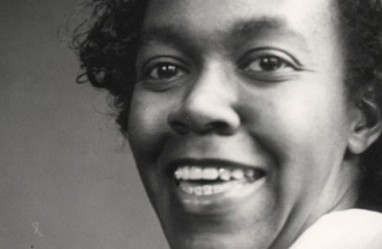
(photo credit: The Poetry Foundation)
About Gwendolyn Brooks (1917-2000)
“Gwendolyn Brooks was born in Topeka, Kansas, on June 7, 1917, and raised in Chicago. She was the author of more than twenty books of poetry, including Children Coming Home (The David Co., 1991); Blacks (The David Co., 1987); To Disembark (Third World Press, 1981); The Near-Johannesburg Boy and Other Poems (The David Co., 1986); Riot (Broadside Press, 1969); In the Mecca (Harper & Row, 1968); The Bean Eaters (Harper, 1960); Annie Allen (Harper, 1949), for which she received the Pulitzer Prize; and A Street in Bronzeville (Harper & Brothers, 1945).
She also wrote numerous other books including a novel, Maud Martha (Harper, 1953), and Report from Part One: An Autobiography (Broadside Press, 1972), and edited Jump Bad: A New Chicago Anthology (Broadside Press, 1971).
In 1968 she was named poet laureate for the state of Illinois. In 1985, she was the first black woman appointed as consultant in poetry to the Library of Congress, a post now known as Poet Laureate. She also received an American Academy of Arts and Letters Award, the Frost Medal, a National Endowment for the Arts Award, the Shelley Memorial Award, and fellowships from the Academy of American Poets and the Guggenheim Foundation. She lived in Chicago until her death on December 3, 2000.” (Biography quoted from Poets.org)
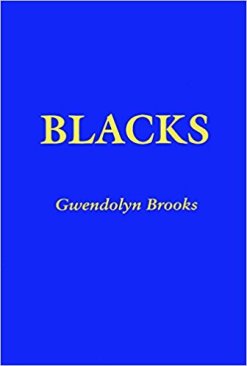
Blacks (Third World Press, 1994)
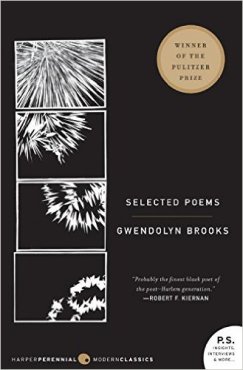
Selected Poems (Harper Perennial Modern Classics, 2006)
MARCH 2017 / HAYDEN SAUNIER
The Blue Heron Speaks Featured Author for March is
Hayden Saunier
Last Will
When I am ash, as is my wish,
take a stone out to the field for me
and leave it near the meadow wall
where it won’t jam machinery.
Nothing cut or polished. Something
tumbled down the stream and smoothed
with sand will do, the sort of stone
that’s been there all along. It’s just
that in the field tonight, I stopped
and stood beyond the cedars
in the hedgerow’s coils and twists,
the heart-shaped lump of a wasp nest
suspended from a maple branch above
my own dark shape, and the moon’s
unclouded eye fell on us all so equally,
it seemed as good a place as any I could be.
from Tips for Domestic Travel
The View from Assisted Living
Windows here face west. Sunrise
colors first the top of a huge construction crane
where the new hospital slowly
climbs its own stone steps.
The crane is like nothing else in the landscape.
A train trestle tipped on end
now burning down a blaze orange light,
light touching down on the maple’s scarlet crown
making two flames.
Two sentinels.
Then, everywhere, day.
The river’s a bright streak of sky on the earth.
Last lit, it will be first
to go dark tonight when light
shines in our eyes, some days magenta,
some days poured gold.
Light slides up our faces, our brows,
what’s left of our hair,
burns our eyes as it burns up
the back side of maple and crane.
Some days, who knows why,
the light simply goes out and it’s night.
from Say Luck
After the Storm
Overheated room and talk and talk
and no one listening.
Steady drumbeat in the downspouts,
tuneful as monsoon rain in a Graham Greene book.
I wash my sticky hands
in a white sink above a beheaded broccoli.
Everyone’s trying so hard.
Later, warm wind
lifts the leaves of the pin oaks
as I walk to my car.
Lines of ragged clouds illuminated by town lights
chase after the storm,
and through them I see giant stars
so freshly washed, it’s clear
there’s nothing between us but distance.
from Tips for Domestic Travel
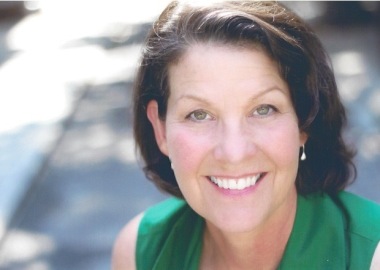
About Hayden Saunier
Hayden Saunier is the author of three poetry collections: Tips for Domestic Travel, Say Luck, which won the 2013 Gell Poetry Prize, and Field Trip to the Underworld, winner of the Keystone Chapbook Award. She has been published in a wide variety of journals including 5 a.m., Bellevue Literary Review, Drunken Boat, Nimrod, Rattle, Smartish Pace, The Virginia Quarterly Review, Tar River Poetry, and Verse Daily. Her work has been awarded the Pablo Neruda Prize, Rattle Poetry Prize, and the Robert Fraser Award. She is also an actress with credits that include The Sixth Sense, House of Cards, Hack, Do No Harm, the voice of a broken-down stove for Ikea, and dozens of roles in the theatre. She lives on a farm outside Philadelphia, Pennsylvania. www.haydensaunier.com
Tips for Domestic Travel (Black Lawrence Press, 2009)
* available from your local bookstore or through Amazon
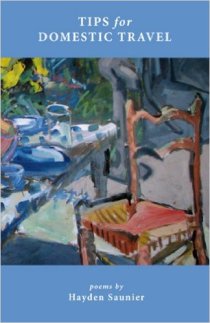
Say Luck (Big Pencil Press, 2013)
* available from your local bookstore or through Amazon
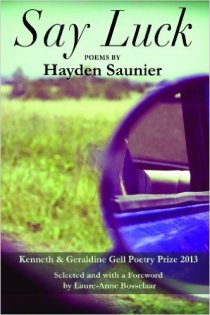
Field Trip to the Underworld (Seven Kitchens Press, 2015)
* available through Seven Kitchens Press

FEBRUARY 2017 / KARISSA KNOX SORRELL
The Blue Heron Speaks Featured Author for February is
Karissa Knox Sorrell
Becoming
I have the memory of Thai
words in my mouth, thick
tongue at the back of my throat.
In my nose I have the aroma
of jasmine rice. In my chin
I have massaman curry.
Salt from the ocean and crisp banana
leaves rattle my heart.
There is the rough shell of rambutan
fruit in my skin and the sting of jellyfish
in my veins. One ear carries
the crank of my tongue breaking down;
the other, the laughter
directed at me afterward.
There is a lift to my wrists
from saying goodbye
from the sandwich baggies
full of drink, twisted to me
with a rubber band.
When we went to the beach,
I knelt down and swallowed the sand.
It’s still inside
all these years later.
Perimeter
When the penguin father releases his chick to the sea, perhaps he remembers the longest night, the moving huddle of penguins, his great body hovering over his egg. The memory of his turn on the perimeter is the ghost of a dream, snow covered. As her child enters the water, the penguin mother might recall cradling him in the cave of her body, the texture of feather on skin. I birthed you into the world of breath, where you might gasp for your own voice. My body became an ark of bone for you, and you came out grasping for light. I held you beneath star and storm, our skin pulsed with heartbeat. Now your blood beats toward the sea. When the time comes for you to leave, I will stand on the perimeter, and I will watch you fly.
God as Mother
God’s womb: flecked with blood,
nicked from the shove of exponent
cell multiplied by cell multiplied
by swell of heartbeat, sweet,
leafed among vessel and vein,
the womb of God: pain.
A trinket heart marks
the start of God’s heirs, stardust
skin and hair. Are we machinery
beating toward Him, or a piece
of the universe embodied?
My womb: The birth of two
children, the tomb of three, a furnace
of words that bleed singing
into the world. I hold my creations
as long as I can, and let them fly.

(author photo by Karla Wardlow)
About Karissa Knox Sorrell
Karissa Knox Sorrell is an ESL teacher, poet, and writer from Nashville, Tennessee. She earned her MFA in Creative Writing from Murray State University in 2010. Her poetry chapbook, Evening Body, was published in 2016 by Finishing Line Press. Karissa’s poems have been seen in journals such as Cumberland River Review, Gravel Mag, Two Cities Review, and Whale Road Review. Karissa has also published essays in journals such as St. Katherine Review and Cargo Literary, and has an essay in the anthology Soul Bare, published in 2016 by InterVarsity Press. She is currently working on a second chapbook and a YA novel. Connect with Karissa at karissaknoxsorrell.com or @KKSorrell.
Evening Body (Finishing Line Press, 2016)
* Also available on Amazon and via Karissa Knox Sorrell’s online store
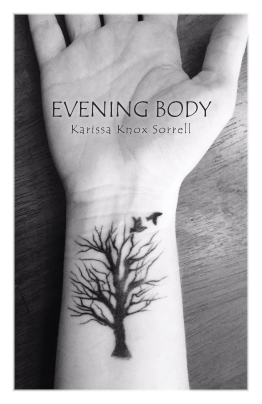
Soul Bare (InterVarsity Press, 2016)
* Available on Amazon
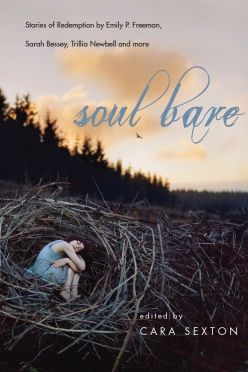
January 2017
William Carlos Williams
The Blue Heron Speaks Featured Author for January is
William Carlos Williams
Flowers by the Sea
When over the flowery, sharp pasture’s
edge, unseen, the salt ocean
lifts its form—chicory and daisies
tied, released, seem hardly flowers alone
but color and the movement—or the shape
perhaps—of restlessness, whereas
the sea is circled and sways
peacefully upon its plantlike stem
Between Walls
the back wings
of the
hospital where
nothing
will grow lie
cinders
in which shine
the broken
pieces of a green
bottle
Blizzard
Snow:
years of anger following
hours that float idly down —
the blizzard
drifts its weight
deeper and deeper for three days
or sixty years, eh? Then
the sun! a clutter of
yellow and blue flakes —
Hairy looking trees stand out
in long alleys
over a wild solitude.
The man turns and there —
his solitary track stretched out
upon the world.
The Red Wheelbarrow
so much depends
upon
a red wheel
barrow
glazed with rain
water
beside the white
chickens
(*All poems by William Carlos Williams, shared on the BHR site, sourced from The Poetry Foundation.org.)

(photo credit: Poets.org)
About William Carlos Williams
(1883–1963)
William Carlos Williams was a poet, novelist, essayist, magazine editor, and playwright who simultaneously maintained a successful career as a medical doctor. He also had a love of painting and art, nurtured by his mother, who trained as a painter in Paris.
“He began writing poetry while a student at Horace Mann High School, at which time he made the decision to become both a writer and a doctor. He received his MD from the University of Pennsylvania, where he met and befriended Ezra Pound.
…Williams sought to invent an entirely fresh—and singularly American—poetic, whose subject matter was centered on the everyday circumstances of life and the lives of common people.
… His major works include Kora in Hell (1920), Spring and All (1923), Pictures from Brueghel and Other Poems (1962), the five-volume epic Paterson (1963, 1992), and Imaginations (1970).
Williams’s health began to decline after a heart attack in 1948 and a series of strokes, but he continued writing up until his death in New Jersey on March 4, 1963.” (Excerpted from Poets.org)
The Collected Poems of William Carlos Williams, Vol. 2: 1939-1962 (New Directions; Reprint edition / September 17, 1991)
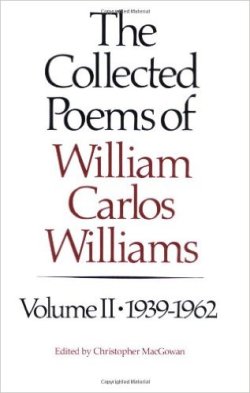
DECEMBER 2016 / JACINTA V WHITE
The Blue Heron Speaks Featured Author for December is Jacinta V White
Lands We Travel
(Union Chapel)
We hold lands inside
us like embryos wanting
life. Water. Stones
we have crossed, some
without knowing. Some
forgotten. No matter, they breathe
inside of us like memories seeping
through the sheets, we toss
and turn before our dreams
color. This is us –
Someone’s history. Someone’s
lifeline. Nothing turns inside of me,
connecting me to its breath, calling
me Mother. Land
spans inside instead
no longer distant and foreign. Saints
have called and I have responded
Like old women – hands up, eyes closed –
Holy Ghost spilled over in Communion
wine cups. I drink
while body broken like lands
open. Somewhere in heaven
my father is praying for rain to fall
on his seeds. Lord, have mercy.
Lord, have mercy.
(Published in Blackberry: A Magazine, Jan. 2015)
The Polishing of Shoes
(William Milton White, Sr. 1942-1996)
It was a two part ritual — Dad polishing his shoes after dinner
on Saturday nights while exalting unusually high
pitched into the air what would be Sunday’s sermon.
His onion-skin thin paged Bible opened next to him,
Dad’s large hand would slide inside the sole
of one shoe then the other as he would lift each to the space right
between his nose and eyes — an inspection involving precise angling —
into fainting light. The following mornings, after kneeling
before the sunrise, and rising with it, it was customary for Dad
to put on his armor, sealed with his freshly polished black shoes
that waited for him at his bedside.
It was a Saturday when Dad walked into freshly fallen snow.
Who knew later that night he would not make his shoes shinier
than stars in a darkened sky, or that the house would grow silent
without his high-pitched preparation piercing air; no thin pages turning
like leaves in the breeze? And that following morning, Dad would not go
down on his knees nor rise as the sun. He would not put on his clothes
and collar, tie his spaghetti-thin laces tight. No, his black wingtips
would not be waiting for him, but instead, for me to take them home
without him.
(from broken ritual, Finishing Line Press, 2012)
Feast
They both would come, pain in rounded arms
like holding a basket full of freshly picked
string beans. Lay them on the kitchen table
for the other to experience – finger the pain’s bumps
and bruises; the spots, tender and tough –
and you know, shake the dirt off. One by one,
they would share their stories, taking turns holding
the other’s pain. Sometimes silent, but still
holding the other’s pain until one would nod,
throw it away.
(from broken ritual, Finishing Line Press, 2012)
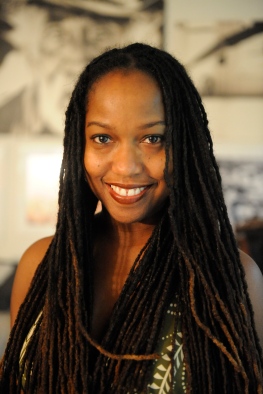
(author photo by John H White)
About Jacinta V White
Jacinta V White is a published poet, a NC Arts Council Teaching Artist, and an arts facilitator who uses poetry and art as catalysts for self-exploration and expression.
After experiencing the sudden passing of her father, Jacinta discovered that “poetry heals;” and in 2001, she founded The Word Project as a way to provide a safe, healing space for others to share and heal through creativity. She works with groups and individuals interested in using art on their healing journey, leads retreats, and offers online poetry classes.
Through The Word Project, Jacinta also serves as the poetry editor and publisher for the international online quarterly, Snapdragon: A Journal of Art & Healing. Her own poetry is featured in a number of magazines and her chapbook, broken ritual, was published by Finishing Line Press.
For more, visit: www.jacintwhite.com
To follow on Facebook: facebook.com/poetJacintaWhite/
broken ritual (Finishing Line Press, 2012)
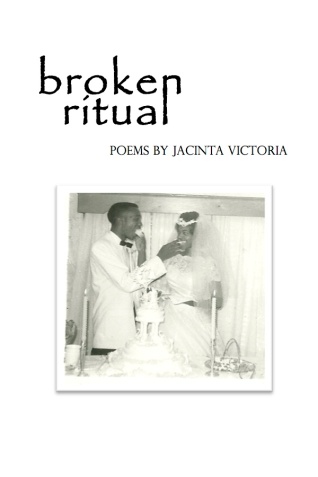
November 2016 / Connie Post
The Blue Heron Speaks Featured Author for November is Connie Post
The Man in Front of the Pharmacy
Plays the guitar
a Spanish ballad I barely recognize
I slip over his voice on the pavement
tripping on lyrics and averted gazes
I lay a few dollar bills
in his guitar case
but know I should have also put
my bones inside
maybe he could sing them unbroken
maybe he sees in me
the marrow of songs I have
swallowed since birth
maybe he understands
the way a guitar pick
can remind someone
of exile
the way the strings
stay separated
before I leave
he nods quietly
–thanks me with his dark eyes
I look at him one last time
and realize
we both understand
this long hairline fracture
on the back side of autumn
Incantation
There is an old church
at the end of a dirt road
inside each of us
even if we never prayed
never believed in god
we found places
to kneel
when no one else is looking
found a way to open the heavy door,
look inside and at least wonder
who built the altar
we have folded our hands quietly
while the field beside us has burned
we have said grace
while our bones break
after we walk over the sacrament
of a gravel path
we may even pause
look up at the trees
and remember why
they took a vow of silence
once every winter
we may leave the house
before anyone is awake
step carefully across
the burnt offerings of dawn
meander across a field
with too much undergrowth
and finally remember why
we’ve forgotten
how to genuflect
in the stillness
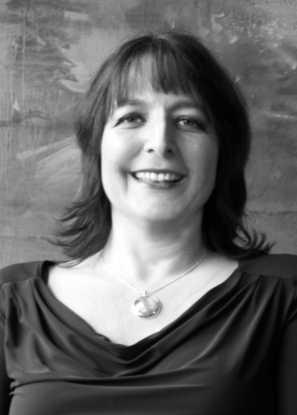
(photo credit: Ronna Leon)
About Connie Post
Connie Post served as Poet Laureate of Livermore, California (2005 to 2009). Her work has appeared in Calyx, The Big Muddy, Comstock Review, Slipstream, Spoon River Poetry Review, The Pedestal Magazine, Valparaiso Poetry Review, and Verse Daily. Her chapbook, And When the Sun Drops, was the 2012 Fall Aurorean’s Editor’s Choice Award. Her work has received praise from Al Young, Ursula LeGuin, and Ellen Bass. She has been short listed for the Jack Kerouac Poetry Prize, The Muriel Craft Bailey awards (Comstock Review), Lois Cranston Memorial Awards (Calyx), Blood Root Literary Magazine, and the Gary Gildner Award (I 70 Review). Her first full length book, Floodwater, was released by Glass Lyre Press in 2014 and won the Lyrebird award. She is the winner of the 2009 Caesura Poetry Award, and most recently, the 2016 Crab Creek Poetry Award.
Floodwater (Glass Lyre Press, 2014)
Available online at Barnes and Noble
SPECIAL OFFER: For the Month of November, Glass Lyre Press is offering a promotional offer on Floodwater, if you order directly through the press. Send an e-mail to publisher@glasslyrepress.com. Price is $12.00 INCLUDING shipping and Handling. Just note “Floodwater Promotional Purchase for November” in the e-mail. Once the book is sent, the publisher will send a Pay Pal invoice to your e-mail address.
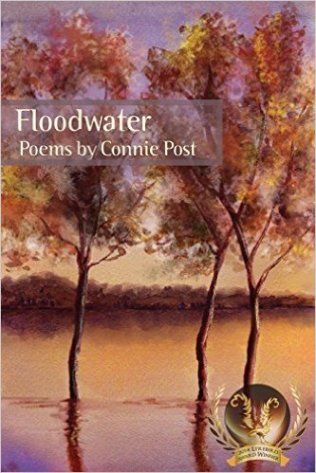
October 2016 / Pamela Ahlen
The Blue Heron Speaks Featured Author for October is Pamela Ahlen
Offering
The line between life and death
depended (so it seemed)
upon the imposition of her will.
Like the live shells,
so many of them
tossed on the sand,
her offering the fragile whites
back to the sea,
tossing them maniacally,
as far as the child could see.
As if she could have saved them,
as if she heard cries
from the marrow of their coiled-in selves.
Understandable,
her adult affinity for shells,
the gathering of stars and moon,
cat’s paws and fighting conch,
the one tender pen, a talisman.
She pens fragile words,
offering them back to the sea,
tossing them far,
as far as she can see.
As if words will save her
from the marrow of her coiled-in self.
Roaming the Woods
Blackberry-tongued woman
playing hide and seek in the underbrush,
unobserved, anonymous—the deer at its browse,
the bee deep in gentian therapy,
where language wells up from earth’s long throat
all burble and sough, where her ‘old mammalian brain’
supersedes the commander-in-chief and she finds signs of herself
in the beetle’s effort to right itself, in her wholly feral smell,
no more no less than the moan of pine branch rubbing itself raw
—that wild understory caught in her throat.
Red Kazoo
Gather every little thing—
angel’s wings and tulip shells,
black stones, white stones,
the purple feather laughing at your feet,
more purple than pickled beets.
Luxuriate in its beetness, its daffydility.
Place it next to the zebra key chain
and the rabbit’s foot
in your cabinet of curios,
next to the Mai Kai matches,
the piece of driftwood shaped like Ohio,
the scribbled-on scrap: Love You.
Who are You? And who am I?
I’m a five-leaf clover, a damselfly,
a red kazoo tootling a zany song.
I’m the magpie behind that tree,
hunting the holy.
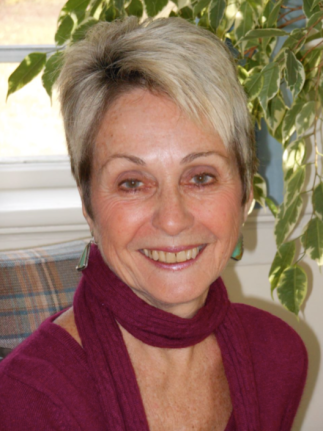
(Author photo by Kate Reeves)
About Pamela Ahlen
Pamela Ahlen is a retired music educator from South Florida. She and her husband relocated full-time to Vermont in order to experience rural life and enjoy the outdoors in all its seasons. Pam is the program coordinator for Bookstock (Woodstock, Vermont), the Green Mountain Literary Festival. She organizes literary readings for Osher (Lifelong Education at Dartmouth) and is currently compiling an anthology of Osher poets and writers. Pam received an MFA in creative writing from Vermont College of Fine Arts and is the author of the chapbook Gather Every Little Thing (Finishing Line Press, 2013).
Gather Every Little Thing (Finishing Line Press, 2013)

(Book cover created by Kate Reeves. Kate is a professional gardener and artist living in Woodstock, VT)
September 2016 / Kai Coggin
The Blue Heron Speaks Featured Author for September is Kai Coggin
A Fleet of Paper Cranes
I folded a battalion,
a fleet of origami peace cranes,
their wings creased into
Japanese paper,
crisp lines,
astute beaks,
sky-pointed mouths,
peace,
with every fold,
I visualized peace,
these flat lifeless squares
becoming dimensional birds,
a murmuration of paper
ready to take flight into the world.
My hands grew familiar
with the movements after the first
two or three cranes took shape,
then it became just a physical twisting
and folding and sculpting and bending
that I did not have to really
give much attention,
just involuntary finger movement crane making,
while my mind drifted into
the broken,
the wartorn,
the unloved,
the helpless,
and I folded, and I folded,
a meditation in paper.
For days, I folded
these wingéd things,
gave them life through lines,
purpose through form,
energy focused into the most shapeless thing,
all of a sudden
in flight.
Once in a Blue Moon
Once in a Blue Moon
take your clothes off outside
and meet the rising night,
remember how the air feels as
your only garment,
how your nipples
kiss the sky like a long lost lover,
dress yourself in only blue moon blue.
Once in a Blue Moon
run into someone’s arms,
let them make you into a bird,
whirl you weightless into the circles
that make up every atom,
every cell,
every revolving planet that
revolves around your heart and her heart,
and fly, fly, fly.
Once in a Blue Moon,
look in the mirror
and ink the glass with fingerprints,
smudge your reflecting window
with how many parts you love about
your body, your glowing, glowing body,
point out the curves that sing,
the lines and folds that bless the body as shrine,
cursive script the word Beauty
over the glass echo of your face
and trace your shape in love, just LOVE.
Once in a Blue Moon,
look up at that glowing pale world,
that constant follower,
that moon silver wolf mouth,
and hear every poem of unrequited desire
that has been written under that
spectral waning waxing balloon,
and take all the words into your heart
like you are the YOU that every poem was written to.
Once in a Blue Moon.
Hearing Underwater
I can hear myself better underwater,
when the soft horizon of wet
climbs the edges of bathtub white
and my skin dives below
the roaring whisper of rising water.
I lie down,
creating my own rolling wave,
as the force of my flesh pushes a small tsunami
backwards in a slow arch and forward
around my waist to the front opposite tub wall.
I can never get my entire body submerged,
hills of breast and belly
making whale dance ripples
of cold, the air still biting at what is
not underwater.
Head back, under,
my ears fill,
the nature of the body, plugging
the holes of sound until
I myself, become the stillness,
the slow breath of my bones
echoes like god noise,
like wind trapped in a bottle,
I listen.
I can hear myself better underwater,
become surround sound reverberation,
movement of slow floating,
I swim in the music a swallow makes,
a hum,
drinking myself in,
the resonance of my heartbeat like my chest has a new song.
It is a pulling to center,
when the waters envelope me,
a call back to the ocean where I am a
part of everything and everything is a part of me.
I say the beginnings of poem into the porcelain air,
and I can feel the earth hear.
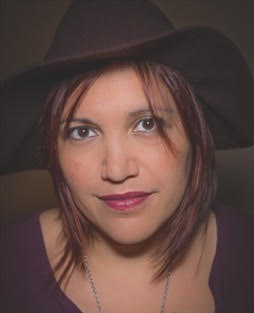
About Kai Coggin
Kai Coggin is a former Teacher of the Year, turned poet and author, living on the side of a small mountain in Hot Springs National Park, AR. She holds a BA in Poetry and Creative Writing from Texas A & M University, and writes poems on love, spiritual striving, body image, injustice, metaphysics, and beauty. Her work has been published or is forthcoming in Blue Heron Review, Lavender Review, Broad!, The Tattooed Buddha, Split This Rock, Yellow Chair Review, SunStruck Magazine, Drunk Monkeys, Snapdragon, Women’s Spiritual Poetry, Elephant Journal, and many other literary journals and anthologies. Kai is the author of two full-length collections, Periscope Heart (Swimming with Elephants Publications, 2014) and Wingspan (Golden Dragonfly Press, 2016). Her poetry has recently been nominated for The Pushcart Prize and Bettering American Poetry 2015. She teaches an adult creative writing class called Words & Wine, and is also a Teaching Artist with the Arkansas Arts Council, specializing in bringing poetry and creative writing to youth. www.kaicoggin.com
Wingspan (Golden Dragonfly Press, 2016)
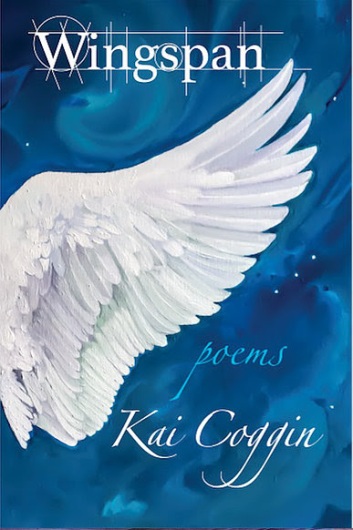
One of the many beautiful, unique highlights of Kai Coggin’s collection is that when you fully open the book up, there is a full set of white wings on display on the cover. Each book she sells in person, or from her website, comes with a free bookmark which is a white feather. Coggin tells people that she plucked the feather right out of her own wings. We believe it! Wingspan is also available on Amazon, but for a signed copy and a free, white feather bookmark, ordering from Coggin’s website provides special touches.
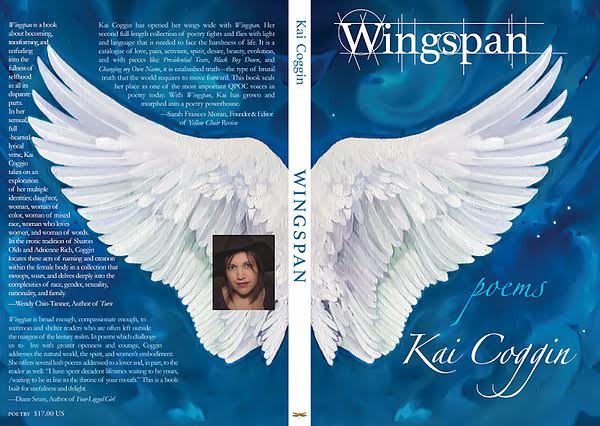
To view a stunning, visual interpretation of Kai Coggin’s new book, Wingspan, watch this gorgeous book trailer. It is filled with enchantment from beginning to end.
June 2016
Jeanie Tomasko & Sharon Auberle
The Blue Heron Speaks Featured Authors for June are
Jeanie Tomasko and Sharon Auberle
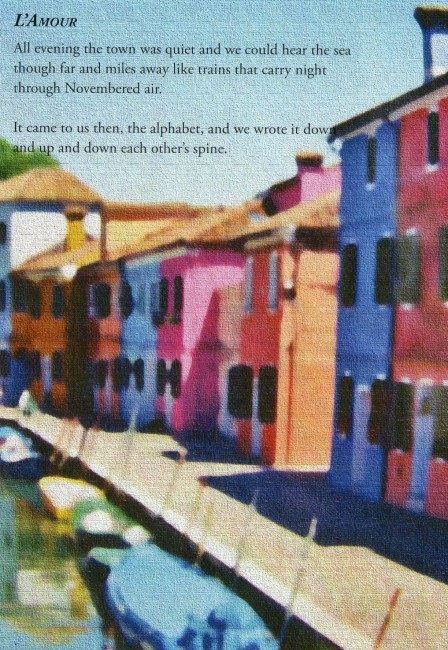
(“L’Amour” / poem by Jeanie Tomasko; artwork by Sharon Auberle)
L’Amour
All evening the town was quiet and we could hear the sea
though far and miles away like trains that carry night
through Novembered air.
It came to us then, the alphabet, and we wrote it down
and up and down each other’s spine.
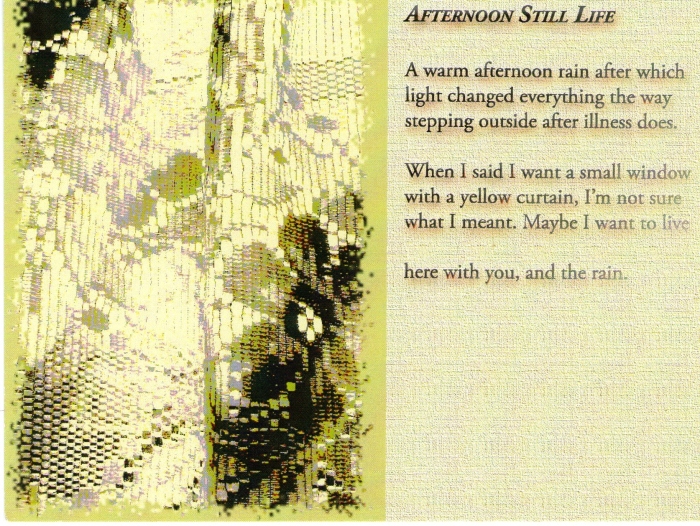
(“Afternoon Still Life” / poem by Jeanie Tomasko; artwork by Sharon Auberle)
Afternoon Still Life
A warm afternoon rain after which
light changed everything the way
stepping outside after illness does.
When I said I want a small window
with a yellow curtain, I’m not sure
what I meant. Maybe I want to live
here with you, and the rain.
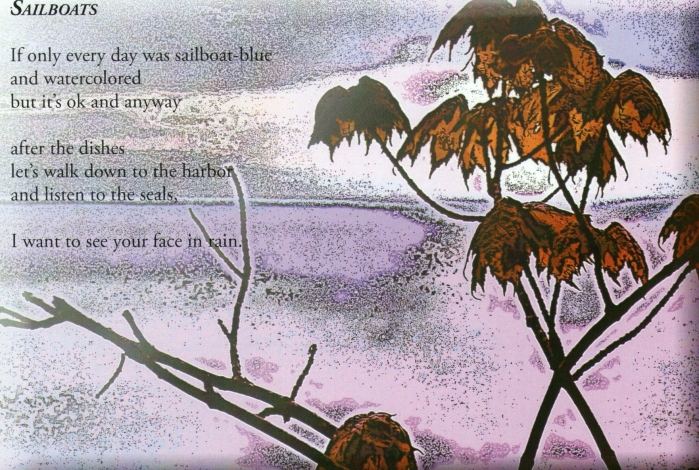
(“Sailboats” / poem by Jeanie Tomasko; artwork by Sharon Auberle)
Sailboats
If only every day was sailboat-blue
and watercolored
but it’s ok and anyway
after the dishes
let’s walk down to the harbor
and listen to the seals,
I want to see your face in rain.
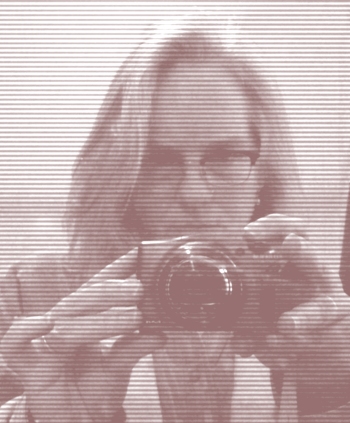
About the Poet
Jeanie Tomasko is the author of Tricks of Light (Parallel Press), Sharp as Want (Little Eagle Press), a poetry / artworks collaboration with Sharon Auberle, an e-chapbook, If I Confess Before 5:00 (Right Hand Pointing), (Prologue), the recipient of an Editor’s Choice award from Concrete Wolf Chapbook Series, and most recently, Violet Hours (Taraxia Press), a collection of the antics of the one and only Violet. She can be found on her website (jeanietomasko.com), walking around somewhere near Lake Superior with her husband, Steve, or enjoying the antics of her cats at home, where she endeavors to always have a bottomless honey jar, garlic from the garden and bees in the front yard hyssop. She is active in the Wisconsin Fellowship of Poets and works as a home health nurse in Madison, WI.
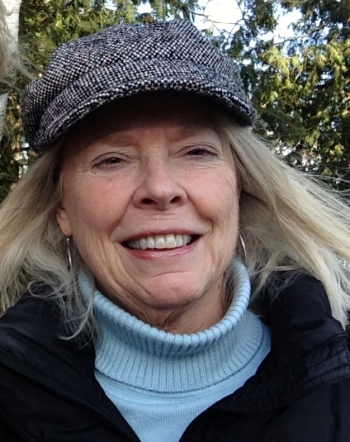
About the Artist
Sharon Auberle is a photo artist who enhances her pieces through various digital and/or physical applications – hand tinting, watercolor, colored pencil and beeswax, among others. Her work has been featured in solo exhibits in Door County and Madison, Wisconsin; and juried exhibits in Wisconsin and Arizona, as well as in on-line magazines. She is the winner of the 2015 Bonnie Hartman Award for Outstanding Creativity in the Miller’s Art Museum’s 40th Juried Annual Exhibition. Auberle’s photo-art may be found in two of her books which feature poetry and photos combined: Crow Ink and EVErywoman; as well as Wind Where Music Was with poet Ralph Murre. She has also partnered with poet Jeanie Tomasko in a book titled, Sharp As Want, as well as a collection, with Tomasko, of art postcards. A sampling of her work may be found on her website, Mimi’s Golightly Cafe.
About the Tomasko/Auberle Art Postcard Project (“Postcards from France”)
“It was a dark and non-poetic spell. I picked up my 50 cent copy of Raoul Dufy’s paintings from a second-hand bookstore and somehow started to write, in the book itself, a few 7 line poems. They seemed like little postcards, so I emailed Sharon and said “wanna hear a weird idea?” And, of course she said “YES!” I love working with Sharon, because her interpretation of poem/art is not literal, and some very interesting combinations resulted. Collaboration rocks!” – Jeanie Tomasko
(Postcards are 4.25″ x 6″ and printed on postcard stock. $1 each or a writer’s dozen (13) for $10. To order any postcard directly from Jeanie Tomasko, click on the “contact me” link on her website. Postcards designed by Steve Tomasko.)
BOOK LINKS:
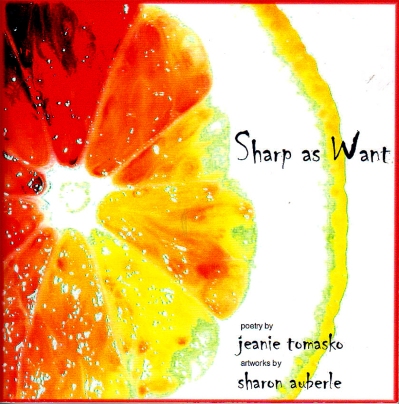
(Sharp as Want by Jeanie Tomasko and Sharon Auberle, Little Eagle Press, 2011)
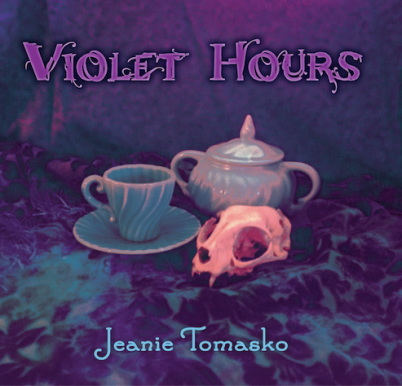
(Violet Hours by Jeanie Tomasko, Taraxia Press, 2016)
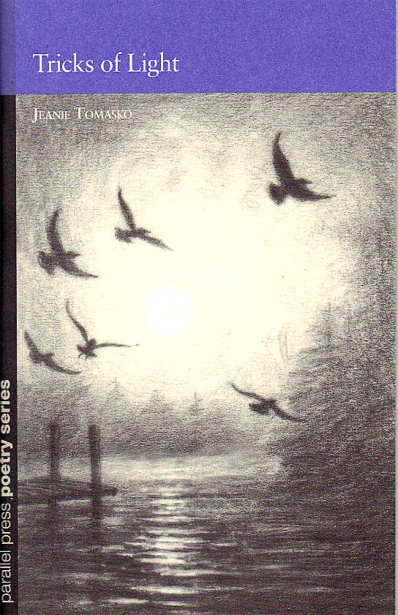
(Tricks of Light by Jeanie Tomasko, Parallel Press, 2011)
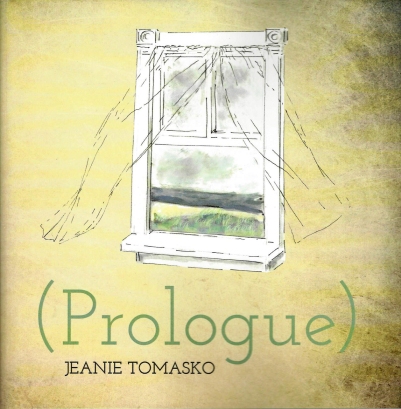
((Prologue) by Jeanie Tomasko, Concrete Wolf, 2015)
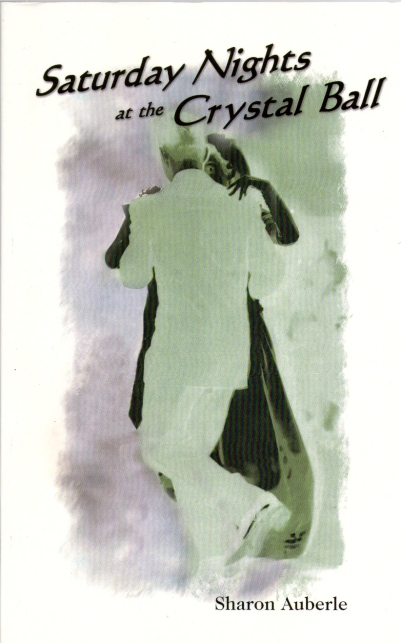
(Saturday Nights at the Crystal Ball by Sharon Auberle, Cross + Roads Press, 2008)
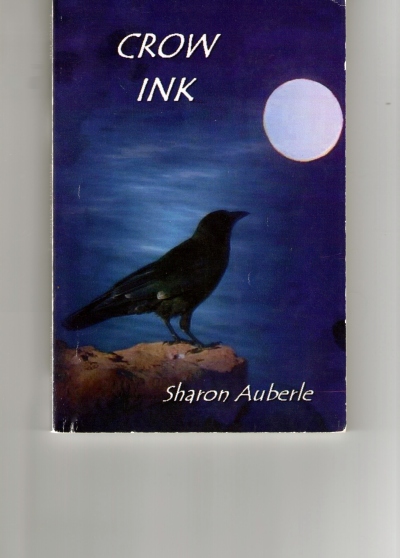
(Crow Ink by Sharon Auberle, Little Eagle Press, 2009)
May 2016 / Tobi Alfier
The Blue Heron Speaks Featured Author for May is Tobi Alfier
Possession Sound, Whidbey Island, Washington
The canyon water ran black,
the driftwood ran gray
on a day when
sky blended into sea
a seamless bone.
Slivered ancient trees.
Lines around the eyes
of wizened faces of locals
nearly worn away.
Old timber,
sharp to the touch,
piled at random
discovered at the end
of an uneven spider-webbed
path.
The lapping of tiny waves
announces a boat.
A fisherman, a net
all the same soft
icy hue.
Memory of an air-mail letter,
an atlas traced with music
softly playing behind
in pale yellow rooms.
Light candles,
listen to the drone
of seaplanes, shorebirds
hopping with schedules
we do not know.
Send books
to houses covered
with ancient vines, the
purpleness of ground
reflected in rot and neglected
beams.
You don’t have to tell
her you love her. All
this gray quiet splintered
silence tells her as if the sea
could spell
and you made this place
just for her.
First published in Penumbra
From the chapbook, Romance and Rust (Blue Horse Press, 2015), as Tobi Alfier
(celebrating the author’s marriage)
Mull to Ulva
Because the distance from land-shore to island
is a fingersnap in the constant of all time.
Because the tides bless fishermen and landlocked alike,
full creels the harvest here, no watery graves, no tears.
Because the store displays bait and boat, strong needles
for sewing the lace of fishing line, not delicate woman-lace.
Because the sun burns with savage brightness, much
as the evening stars will burn unwatched and unwished upon.
Because the ghosts of old souls and older relics own
the dark, with nary a mortal light upon any land, sea or shore.
Because here, no one interprets the thousand pin-pricks
composing a symphony in the eggy blackness of night.
Because the fragrance of this summer conjures
memory after memory of all pasts and futures.
Because there is no caretaker, no guardian to aid thin fog
search the inlet for crevice with which to gain purchase—
I wish to walk barefoot on old stone, become one
with the earth and sea, learn their secrets,
raise my arms to the stars.
Palm to palm, our hearts.
First published in Broadkill Review
From the chapbook, Down Anstruther Way (forthcoming, FutureCycle Press)
Evening of Island Grace
The moon owns the harbor tonight.
I carry it large and bright in my mind
as I drift up the headlands to have
a lover’s view. The tranquil quiet
of sleeping vessels—by day they perform
all sorts of feats, from fishing, to rescue,
to the connection of families, some
long away and some only to the mainland
for the dentist and a pint. Now the calm skiffs
and trawlers, tugs and ferries sleep
in a sanctuary lodged firmly in my heart.
The rusted mooring rings embedded in the quay
are part of me. I dream the silvered splash
of nighttime life we never see, watch the gentle
call from one bird to its mate, his brilliant red
invisible in blackened sky, smell the ovens
planning for a morning of toast and tea.
I am alone in the hours before breaking light
but have never been so full—my arms wrap around
the chorus of ocean. It sings my heart shoreward.
First published in Fourth River
From the chapbook, The Coincidence of Castles, as Tobi Cogswell (Glass Lyre Press, 2014)
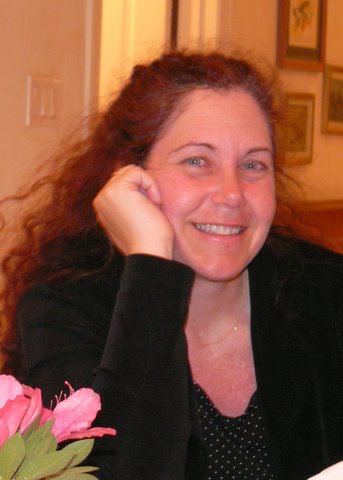
About the Author
Tobi Alfier is a multiple Pushcart nominee and a Best of the Net nominee. Her poems have appeared in The Chaffin Journal, Gargoyle, Hawai’i Pacific Review, The Los Angeles Review, Spoon River Poetry Review, Town Creek Poetry, and other print and online journals in the United States and overseas. Her most current chapbooks are The Coincidence of Castles, from Glass Lyre Press, and Romance and Rust, from Blue Horse Press. Down Anstruther Way is forthcoming from FutureCycle Press. Along with her husband, Jeffrey Alfier, she is the co-editor and co-publisher of San Pedro River Review. You may reach Tobi at sprreview@gmail.com.
Romance and Rust (Blue Horse Press, 2015)
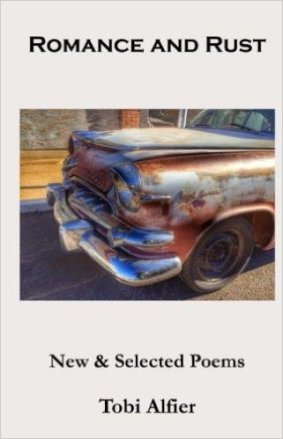
The Coincidence of Castles (Glass Lyre Press, 2014)
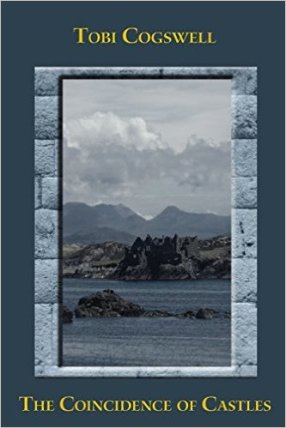
April 2016 / Marianne Moore
The Blue Heron Speaks Featured Author for April is Marianne Moore
The Paper Nautilus
For authorities whose hopes
are shaped by mercenaries?
Writers entrapped by
teatime fame and by
commuters’ comforts? Not for these
the paper nautilus
constructs her thin glass shell.
Giving her perishable
souvenir of hope, a dull
white outside and smooth-
edged inner surface
glossy as the sea, the watchful
maker of it guards it
day and night; she scarcely
eats until the eggs are hatched.
Buried eight-fold in her eight
arms, for she is in
a sense a devil-
fish, her glass ram’shorn-cradled freight
is hid but is not crushed;
as Hercules, bitten
by a crab loyal to the hydra,
was hindered to succeed,
the intensively
watched eggs coming from
the shell free it when they are freed,
leaving its wasp-nest flaws
of white on white, and close-
laid Ionic chiton-folds
like the lines in the mane of
a Parthenon horse,
round which the arms had
wound themselves as if they knew love
is the only fortress
strong enough to trust to.
Silence
My father used to say,
“Superior people never make long visits,
have to be shown Longfellow’s grave
nor the glass flowers at Harvard.
Self reliant like the cat –
that takes its prey to privacy,
the mouse’s limp tail hanging like a shoelace from its mouth –
they sometimes enjoy solitude,
and can be robbed of speech
by speech which has delighted them.
The deepest feeling always shows itself in silence;
not in silence, but restraint.”
Nor was he insincere in saying, “‘Make my house your inn’.”
Inns are not residences.
Nevertheless
you’ve seen a strawberry
that’s had a struggle; yet
was, where the fragments met,
a hedgehog or a star –
fish for the multitude
of seeds. What better food
than apple seeds – the fruit
within the fruit – locked in
like counter-curved twin
hazelnuts? Frost that kills
the little rubber-plant –
leaves of kok-sagyyz-stalks, can’t
harm the roots; they still grow
in frozen ground. Once where
there was a prickley-pear –
leaf clinging to a barbed wire,
a root shot down to grow
in earth two feet below;
as carrots from mandrakes
or a ram’s-horn root some-
times. Victory won’t come
to me unless I go
to it; a grape tendril
ties a knot in knots till
knotted thirty times – so
the bound twig that’s under-
gone and over-gone, can’t stir.
The weak overcomes its
menace, the strong over-
comes itself. What is there
like fortitude! What sap
went through that little thread
to make the cherry red!
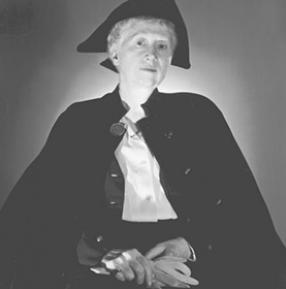
(photo credit: George Platt Lynes / Poets.org)
About the Author
Moore was born in Kirkwood, Missouri. In 1905, Moore entered Bryn Mawr College in Pennsylvania and graduated four years later. She taught at the Carlisle Indian Industrial School in Carlisle, Pennsylvania, until 1915, when Moore began to publish poetry professionally. From 1925 until 1929, Moore served as editor of the literary and cultural journal, The Dial. This continued her role, similar to that of Pound, as a patron of poetry, encouraging promising young poets, including Elizabeth Bishop, Allen Ginsberg, John Ashbery and James Merrill, and publishing early work, as well as refining poetic technique.
Her most famous poem is perhaps the one entitled, appropriately, “Poetry,” in which she hopes for poets who can produce “imaginary gardens with real toads in them.” It also expressed her idea that meter, or anything else that claims the exclusive title, “poetry,” is not as important as delight in language and precise, heartfelt expression in any form. She often composed her own poetry in syllabics. These syllabic lines from “Poetry” illustrate her position: poetry is a matter of skill and honesty in any form whatsoever, while anything written poorly, although in perfect form, cannot be poetry ….
Not long after throwing the first pitch for the 1968 season in Yankee Stadium, Moore suffered a stroke. She suffered a series of strokes thereafter, and died in 1972. She was interred in Gettysburg’s Evergreen Cemetery. (Excerpted from PoemHunter.com)
The Poems of Marianne Moore (Penguin Classics, 2005)
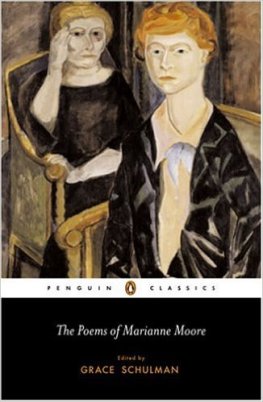
March 2016 / Trina Gaynon
The Blue Heron Speaks Featured Author for March is Trina Gaynon
Hei
to learn to breathe again–
bend low
and extricate peach tree roots
from the grasses–
then rise
slightly dizzy
and exhale–
breath passing into the world
Aleph
until the eternal before breaks
[learning to live from back to front–
new inside the pattern
of yes more- not now- careful–
(meadow flowers scattered in a lawn)
lost and eager
(wind borne seeds)
acknowledging that which lives
(blackberries)
will become your chief joy
(burden)]
a gate closed
time twists into being
(Selections from: The Alphabet of Romance / For my husband David, who brought with him an ancient culture and a magic aleph-beit)
Anna’s Hut at Komarovo
Snow melting on the roof and damp from Pike Lake
bring chunks of plaster down on our heads,
a small matter with Vivaldi on the phonograph
and the room filled with cigarette smoke and poets
who drop their new work on the table before me.
Memorization no longer necessary, reciting is out of style.
When I’m alone, pine trees drift into the room,
driven by winds of the past and the future.
They shadow work on the poem that rises and falls
in me, as a glacial lake laps at its beaches.
Look for the candles that sputter in my window.
I welcome those who venture back across the Lethe.
(from the forthcoming anthology, Leaving My Shadow)
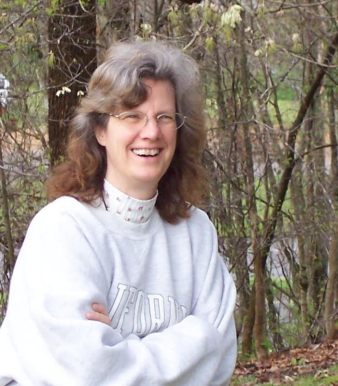
About the Author
Trina Gaynon is currently assembling an anthology of poems in tribute to Anna Akhmatova called, Leaving My Shadow. A literacy tutor and a past volunteer at WriteGirl, an organization in Los Angeles providing workshops and mentors for high school girls interested in writing, she entered the new millennium with a degree from the creative writing program at University of San Francisco. Her poems appear in: The Great Gatsby Anthology, The San Diego Poetry Annual, Saint Peter’s B-list: Contemporary Poems Inspired by the Saints, Obsession: Sestinas for the 21st Century, A Ritual to Read Together: Poems in Conversation with William Stafford, Phoenix Rising from the Ashes: Anthology of Sonnets of the Early Third Millennium, Bombshells: War Stories and Poems by Women on the Homefront, Knocking at the Door: Poems about Approaching the Other, several WriteGirl anthologies, and numerous journals. Her chapbook, The Alphabet of Romance, is available from Finishing Line Press and Amazon.
Find out more about this author at:
http://tdgaynon.webs.com/
http://leavingmyshadow.webs.com/
The Alphabet of Romance (Finishing Line Press, 2013)
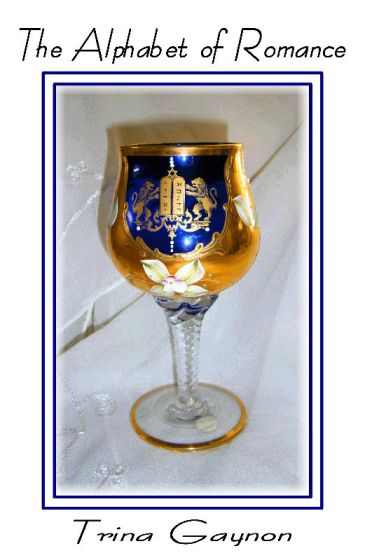
February 2016 / Karla Van Vliet
The Blue Heron Speaks Featured Poet for February is Karla Van Vliet
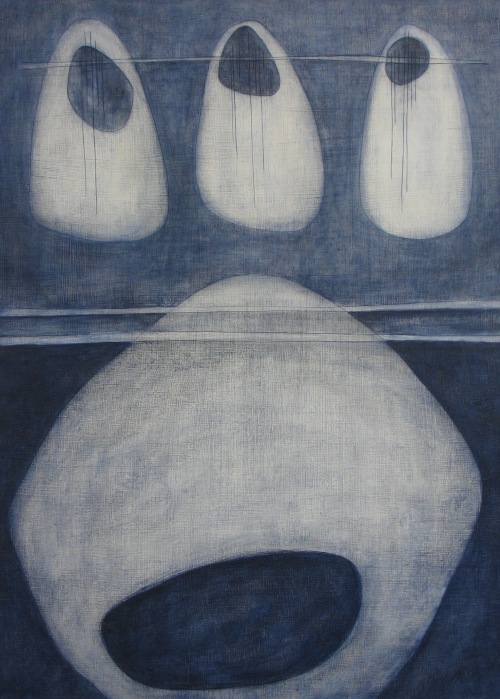
“Three Above”
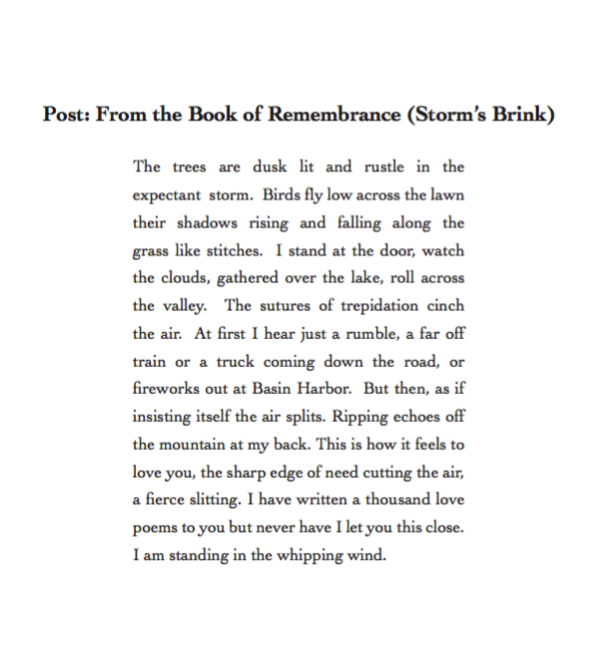
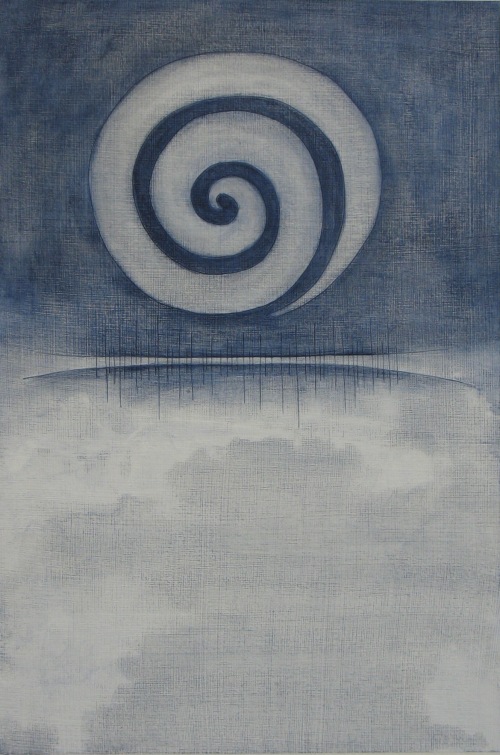
“Source”
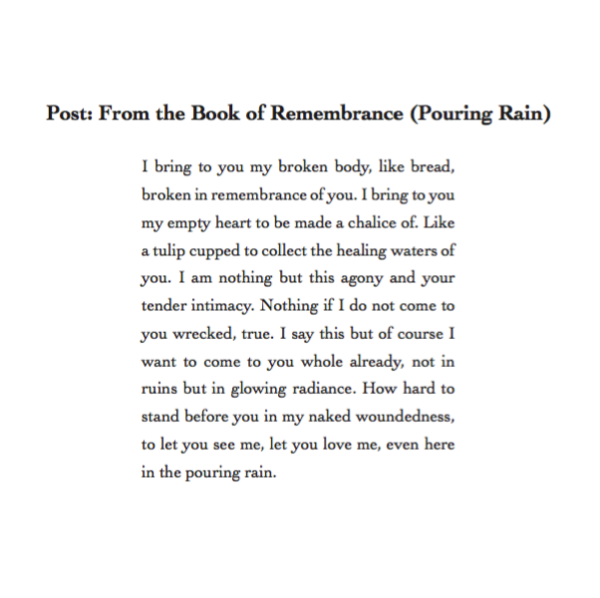
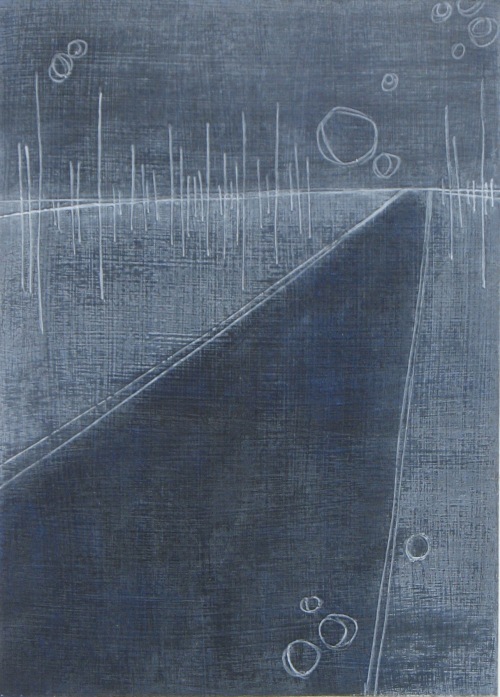
“Long Dark Road”
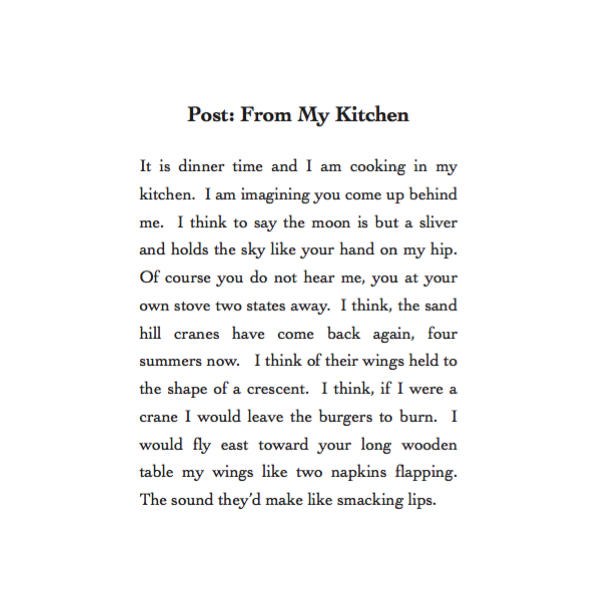
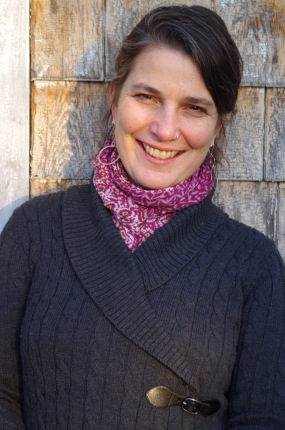
(photo credit: Sadie Newman)
About the Author
Karla Van Vliet is a poet, artist and Integrative Dreamwork analyst. Her poems have appeared in such journals as Poet Lore, Blue Heron Review, The Tishman Review, Found Poetry Review and Green Mountain Review. Her most recent book From the Book of Remembrance (Shanti Arts, 2015) is a collection of poems and paintings. The River From My Mouth, her first book of poems, is being reissued by Shanti Arts this coming year. She is currently working on a full-length collection of poetry titled Iterate and a collection of poetic non-fiction pieces titled Beholding, which explore her deep relationship to the Vermont landscape she lives within. She is the co-founder and editor of deLuge, a literary and arts journal and is the administrator of the New England Young Writers’ Conference at Bread Loaf, Middlebury College. Find out more about this author at her website: www.vanvlietarts.com
You can purchase From the Book of Remembrance from Shanti Arts Publishing or from Amazon.
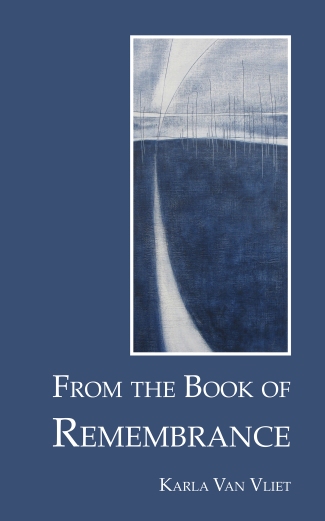
January 2016 / Wallace Stevens
The Blue Heron Speaks Featured Poet for January is Wallace Stevens
Gray Room
Although you sit in a room that is gray,
Except for the silver
Of the straw-paper,
And pick
At your pale white gown;
Or lift one of the green beads
Of your necklace,
To let it fall;
Or gaze at your green fan
Printed with the red branches of a red willow;
Or, with one finger,
Move the leaf in the bowl–
The leaf that has fallen from the branches of the forsythia
Beside you…
What is all this?
I know how furiously your heart is beating.
Thirteen Ways of Looking at a Blackbird
I
Among twenty snowy mountains,
The only moving thing
Was the eye of the black bird.
II
I was of three minds,
Like a tree
In which there are three blackbirds.
III
The blackbird whirled in the autumn winds.
It was a small part of the pantomime.
IV
A man and a woman
Are one.
A man and a woman and a blackbird
Are one.
V
I do not know which to prefer,
The beauty of inflections
Or the beauty of innuendoes,
The blackbird whistling
Or just after.
VI
Icicles filled the long window
With barbaric glass.
The shadow of the blackbird
Crossed it, to and fro.
The mood
Traced in the shadow
An indecipherable cause.
VII
O thin men of Haddam,
Why do you imagine golden birds?
Do you not see how the blackbird
Walks around the feet
Of the women about you?
VIII
I know noble accents
And lucid, inescapable rhythms;
But I know, too,
That the blackbird is involved
In what I know.
IX
When the blackbird flew out of sight,
It marked the edge
Of one of many circles.
X
At the sight of blackbirds
Flying in a green light,
Even the bawds of euphony
Would cry out sharply.
XI
He rode over Connecticut
In a glass coach.
Once, a fear pierced him,
In that he mistook
The shadow of his equipage
For blackbirds.
XII
The river is moving.
The blackbird must be flying.
XIII
It was evening all afternoon.
It was snowing
And it was going to snow.
The blackbird sat
In the cedar-limbs.
Disillusionment of Ten O’Clock
The houses are haunted
By white night-gowns.
None are green,
Or purple with green rings,
Or green with yellow rings,
Or yellow with blue rings.
None of them are strange,
With socks of lace
And beaded ceintures.
People are not going
To dream of baboons and periwinkles.
Only, here and there, an old sailor,
Drunk and asleep in his boots,
Catches Tigers
In red weather.
About Wallace Stevens
“Wallace Stevens was born in Reading, Pennsylvania, on October 2, 1879. He attended Harvard University as an undergraduate from 1897 to 1900. He planned to travel to Paris as a writer, but after working briefly as a reporter for the New York Herald Times, he decided to study law. He graduated with a degree from New York Law School in 1903 and was admitted to the U.S. Bar in 1904. He practiced law in New York City until 1916.
Though he had serious determination to become a successful lawyer, Stevens had several friends among the New York writers and painters in Greenwich Village, including the poets William Carlos Williams, Marianne Moore, and E. E. Cummings.
More than any other modern poet, Stevens was concerned with the transformative power of the imagination. Composing poems on his way to and from the office and in the evenings, Stevens continued to spend his days behind a desk at the office, and led a quiet, uneventful life.
Though now considered one of the major American poets of the century, he did not receive widespread recognition until the publication of his Collected Poems, just a year before his death. His major works include Ideas of Order (1935), The Man With the Blue Guitar (1937), Notes Towards a Supreme Fiction (1942), and a collection of essays on poetry, The Necessary Angel (1951).” (Excerpted from the Academy of American Poets / Poets.org)
The Collected Poems: The Corrected Edition (Vintage International, 2015)
December 2015 / Susan Rich
The Blue Heron Speaks Featured Poet for December 2015 is Susan Rich
Sugar, You Know Who You Are
You who carry the sky in your hands
open to the world as peach pie;
you who harmonize like a Miracle,
a Temptation, a Spinner, a Top ~
What record shop or percussive bop
did you swing from? What city
plot did you rhythmically cajole
of a singer making music to a woman ~
not young, not yet so old! Remember?
We watched ourselves
as if watching strangers improvise
a summer’s afternoon
composed from the riff of madrona
leaves, iced coffee, and a public wading pool.
Maybe we were beginning our lives
together, maybe.
The hinges squeaked
a kind of jazz tune ~ coconut bars
and jelly rolls, Boston egg creams,
and red velvet stars. No longer
strangers now, the blue gates open
at dusk, and look
here you are: infusing the globe
in rhythms, sugaring our nights with sparks.
Hannah, Decanter, and Cloud
~self portrait, at 74
Age is still decanters on the table
the size of small chandeliers
or cloud foam. You, remember,
are the one that is unmade
as of yet, unknown. Medium
merely to an image, a woman
studio-posed. Self-portrait
developed for the afterlife—
our ticker-tape world
of tableaus and combs
circling on. And. Then. Somehow
your barnacled vessel
lit from within like a carriage
clock or sea-washed amber stones.
Have you been taken?
The Victorians inquired; from flesh
into silver salts, into gaslight paper
or gold? Everyone becoming older.
Your gaze darts forward, lifts
beyond the mayor’s clapperboard
home, the dead dove, the séance, the bones.
One unknowable instant—
even as the aperture quietly
holds, even as the light
decants over gloved hands
that turn into clouds.
Don’t tell me this is only a story.
Tell me, there’s more to our lives
than jigsaws and doorknobs,
more than tumbleweeds, sediment, or sex.
We live for the tunnel, the years signatured
together into the surreal— for our art
imperfect and striving.
Clouds, Begin Here
It is so hard to say what the dead really want.
In the lost fires of the notebook, words stumble
down the columns of green and white paper.
In the notebook of the unknown index, blank
description, we lose our blue hours. Begin with forget
shore line, heart line, forgive me serum.
If we’re lucky, the mind sits up straight
in our interior tree house, our house of sky,
the remodeled one car garage. Open the suitcase
of ink and erasures; let language spill out
in mid-air. Between ferryboat and bicycle,
between daybreak and meteor shower
we create something holy:
apples and crackers and quiet.

(photo credit Kelli Russell Agodon)
About Susan Rich
Susan Rich is the author of four collections of poetry including Cloud Pharmacy, and The Alchemist’s Kitchen, which was a Finalist for the Foreword Prize and the Washington State Book Award. Her poems have been published by many journals including in the Antioch Review, Gettysburg Review, Harvard Review, Poetry Northwest, Poetry Ireland, The Southern Review, and World Literature Today. Susan’s other books include Cures Include Travel (2006) and The Cartographer’s Tongue (2000) winner of the PEN USA Award and the Peace Corps Writers Award. She is a recipient of awards from Artists Trust, 4 Culture, The Times Literary Review Award, Seattle Mayor’s Award of Cultural Affairs and the Fulbright Foundation. She teaches at Highline College and lives in Seattle, WA. Find out more about this author at her website: http://poet.susanrich.net/
Cloud Pharmacy (White Pine Press, 2014)
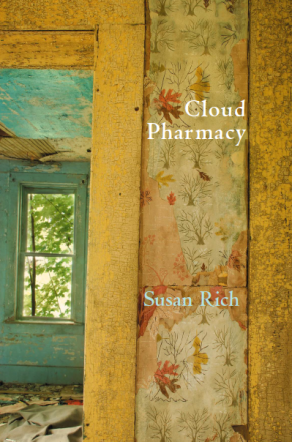
November 2015 / Ronda Broatch
The Blue Heron Speaks Featured Poet for November 2015 is Ronda Broatch
On the Fifth Day I Walk the North Beach
An eagle settles in the madrona
between the moon and me,
while sun bleeds over the Olympics.
I have just seen the meaty wing of a seagull.
I imagine rolling over sand.
It’s almost dusk, and the coyotes
have eaten the moon’s darker face.
Show me again the Big Dipper
has everything to do with earth’s
great thirst. I am burying
my transgressions.
Understand the eagle has a lesson in solitude.
Understand even sunset has enslaved the hunter.
Understand the seagull’s wing once drew the stars
into being.
What She Takes from the River
I fry onions, add asparagus, a few
green tips mingling with a touch of pink
flesh left from last night’s dinner. Chinook
spawn downstream, a female and two males—
the same three this past week.
Because this is new to me I retreat
to the river daily, watch the males muscling,
sinuous, next moment
motionless and aligned with the current.
The female fans a redd. Tentative
I shift, watch her drift out,
dart back to nose in under a branch
above the antler I discovered
yesterday, when we spooked each other,
my dark form looming predatory,
her body arrowing over black rock
into deeper water. Now exposed,
I fish for the horn with a twig,
claim it for my own until broken tips
and blood-tinged grooves
come into view. Shimmy it upright,
let it rest. That night I awaken,
the moon a new-cut onion, and myself,
open and raw.
About Ronda Broatch
Ronda Broatch is the author of Lake of Fallen Constellations, (MoonPath Press, 2015), Shedding Our Skins, (Finishing Line Press, 2008), and Some Other Eden, (2005). Her journal publications include Prairie Schooner, Fourteen Hills, Mid-American Review, and Fire On Her Tongue: An Anthology of Contemporary Women’s Poetry (Two Sylvias Press). Ronda co-edits the literary journal, Crab Creek Review. Poet and photographer, she is attracted to words and textures like a moth to a bare bulb on a twilit porch. Find out more about this author at: http://www.rondabroatch.com/
Lake of Fallen Constellations (MoonPath Press, 2015)
As a talented photographer, Ronda Broatch included several of her original photographs in the collection, Lake of Fallen Constellations, as section dividers. Here are three examples of her stunning work:
October 2015 / Jan Bottiglieri
The Blue Heron Speaks Featured Poet for October 2015 is Jan Bottiglieri
To Galileo, Grinding Lenses
I want to believe
the story of the well:
every day I would travel
down in a bucket
if it were true that,
looking up, I’d see
day-veiled stars.
From clay, look now:
The root-stubbled deepness
inverts, becomes something
vaulted, piercing. The light is shut
out, the curls of cloud separate,
the blue slip of skin
dissolves. Finally
the sky, that lick-thin
membrane, opens
to spill some hidden constellation –
what beats, constant,
just beneath the surface:
the bleat
always waiting
in a lamb’s
limber throat.
Baking Ghazal
Today, I practice making kolacky. Outside, the turning leaves.
Poring over my mother’s recipes, I cried while turning leaves.
I fold two points of each square to the middle: small, crossed hands.
Colors of apricot, berry, darken inside, like turning leaves.
Like my mother, I make kolacky, and I want to get it right.
Waste, a bitter taste: the sugar-scorched underside that burning leaves.
Some I cut too large, ungainly. Some crack; some open, leaking jam.
The best: wee swaddlings on the nursery-pan. Comes wide yearning, leaves.
I haven’t burned a single one. Soon holidays, I’ll double the batch.
Like my mother, I pencil notes, margin-side: what learning leaves.
Like a mother on school mornings smiling doorside who, turning, grieves,
I practice making kolacky. Outside, the turning leaves.
Pre-Portrait
Like birds we turned our necks
toward the black-eyed camera.
Someone pitched a best version of us
and we committed. Affixed
ourselves, a ceremony
of twist and primp and lacquer.
There was laughter, our glossy teeth
sparking like hammers, jostling, uncertain.
The room pitched, rustling the curtain.
We set eyes on that infinite
aperture, future: found
this portrait there, fixed like furniture.
We committed to memory:
the camera laughed
back its birdie. The future
came on like medication,
twisted, fixed back on that eye
and its certainty. We froze
just in time:
Now the flash
hammer swings down-
About Jan Bottiglieri
Jan Bottiglieri is a freelance writer living in suburban Chicago. She is a managing editor for the literary annual RHINO and received her MFA in Poetry from Pacific University. Jan’s poems have appeared in a variety of journals and anthologies including Harpur Palate, Court Green, Bellevue Literary Review, Rattle, and Sunrise From Blue Thunder. Her chapbook, Where Gravity Pools the Sugar, was published in 2013 and her full-length poetry collection, Alloy, was recently published by Mayapple Press (July, 2015).
Alloy (Mayapple Press / July, 2015)
September 2015 / Stephen Anderson
The Blue Heron Speaks Featured Poet for September is Stephen Anderson
Reverie
The stars—
the very same ones
beheld by
my wide-eyed ancestors in the early 1800s—
now shine on me, brightly as they did then
in the Midwestern north country where
those spirited relatives built sod-houses on their tracts of land
with rough hands and sheer
determination, not too far from where I,
some time and distance apart,
sit watching Shakespeare
under that same canopy of stars,
a smile of wonder on my face while caught up in
A Midsummer Night’s Dream,
the cicada serenade,
the late summer cool caress of night air—
a communion with an apartness
not really understood there …
Swing with Chains
It is clear it was swung low, and high at times
in arcs, a fun pendulum in magical air. Not
understood in children’s short-term
memories was the intent behind each push.
Instead, those august moments are now
erased by rotting swing seat now dangling
from rusty chains, belying the mist of love
still hovering there under
the gentle shade of the elm.
A Discovery
Last spring, the old bay window over the back deck was
Done in by ripsaw, crowbar and sledgehammer—
Smashed into a pile of scattered debris on the deck.
Among the leftovers, in the middle of a boxed-in section,
A hornets’ nest rose up, a Taj Mahal dome in miniature, some ten
Inches in diameter, a delicate looking carp scale pattern of maple
Seed and other unknown matter, home, the carpenter said,
To scores of yellow jackets many of which terrorized us in
Seasons past while we entertained on the deck.
When the nest was torn open, its interior was empty like
Some lost, ancient civilization once sheltered so well by its
Intricate design. Now gone forever from our property, a sacrifice
To our sliding deck door, a weatherproof invention—
Man-made technology of high order, lacking, though, the
Miracle that preceded it in that spot.
About Stephen Anderson
Stephen Anderson is a prize-winning Milwaukee poet whose work has appeared in numerous print and online journals including Southwest Review, Tipton Poetry Journal, New Purlieu Re-view, Free Verse, Verse Wisconsin and Foundling Review. Many of Anderson’s poems have been featured on the Milwaukee NPR-affiliate WUWM Lake Effect Program. He is the author of Montezuma Resurrected And Other Poems (2001) and The Silent Tango of Dreams (2006 chapbook). Several of his poems appeared in the poetry collection, Portals And Piers (2012). In the summer of 2013, six of his poems formed the text for a chamber music composition entitled, The Privileged Secrets of the Arch, performed by some musicians, including two members of the Milwaukee Symphony Orchestra and an opera singer. Because of a particular set of life experiences, Anderson considers himself a poet with a global perspective rather than a regional poet. His newest poetry collection, Navigating in the Sun, was recently published by Finishing Line Press (2015). Copies can be ordered directly from the poet ($14.49 plus shipping of $2.50). Contact author for details at: stephen.anderson724@gmail.com
Navigating in the Sun (Finishing Line Press, 2015)
The Blue Heron Speaks page will be on a brief summer vacation for the months of July and August (2015), but we already have 2 fabulous featured poets lined up for September and October! Don’t forget to stop by to check out our June featured poet, Pam Uschuk, and all of the wonderful poet spotlights from previous months.
June 2015 / Pam Uschuk
The Blue Heron Speaks Featured Poet for June is Pam Uschuk
Dog Walk Song
(for Bill)
Past young aspen and punky old balsa alike,
before sunrise unhinges lids from dreams,
the boy in him walks the dogs to the river,
the best part of his day, he says, autumn river
swiveling to grind the stones of his imagination,
carrying ice from the spring that cracks granite
at 13,000 feet, where forget-me-nots blood-drop small
breed late, where eagle feeds on voles, and
a bull elk swells his thick neck bugling to mate.
Above him, magpies rock the pear tree
shading the grave of the wolf
who lopes underground now, grave
of his wild white heart gone to the stars.
The boy in him laughs at the new pup
shaped like something between black bear
and buffalo stumbling and biting through his own leash.
The boy in him has given up on restraints, mind
careening free as the torrent pouring over boulders,
cutting through the park named after eagles
who will return with first snow.
The boy in him walks the dogs to this river
he kayaks to his further life carved from
wolf willows of hope bent
by storm and offering themselves supple
to wind’s knife whittling hawk song,
late wild bloom, shadow-swell,
deer-licked dawn.
Axis
Rain-slick in the lower pasture, two new foals
fall from their mothers, flatten onto grass like the deflated
garbage bags I fill with the detritus of my life
and toss in the cans across the road.
When the mare bites through the birth sac
the male colt breathes, shakes up on splayed knees.
Before afternoon, the universe is his
as he gallops circles around his dam, stallion
hooves flicking skyward just
to be alive, even though migrating vultures
turn on sky’s invisible axis reading
the second colt, who still sleeps.
I try reading tea leaves, find
love’s smear, the memory of floating
in a kayak in the Sea of Cortez, amazed
at the swell of glassy water lifting me
above gorse weed and coral and the one red reef fish
hovering beneath me, pretending to pray.
Perched atop lava rock, blue-footed
boobies and pelicans preened, scattering
as if some internal radar screen
lit with beeps alerting them
to a school of yellow tails hidden in that smoky
intelligence of blue. Would that I was
that intuitive or purposeful, not adrift
and paddling with nowhere sure to go
while my husband threw rocks of joy
for the dogs on the beach.
Later watching dolphins breach
off Soledad Estuario, we stumbled
on what yesterday’s wind dredged—a bleached
and rotting moray eel, then
the dolphin, strangled by a fishing net, cinched
and bloated into two blotchy pink sacks
split like our hearts at the seams.
Now, I watch Brewer’s blackbirds wade
through an ocean of thick green grass,
eschewing seed in the feeder for live bug prey.
Do they hear horses stampede through
the muddy fields of my heart, still locked
in spring snow that refuses all attempts to melt
now that vultures have replaced the eagles
whose wings all winter were the one certainty
that gave cadence to the disassembling air?
Political activist and wilderness advocate, Pam Uschuk has howled out six books of poems, including Crazy Love, winner of a 2010 American Book Award, Finding Peaches In The Desert (Tucson/Pima Literature Award), and Wild In The Plaza of Memory (2012). Her new collection of poems, Blood Flower, appeared in February 2015.
Translated into more than a dozen languages, her work appears in over three hundred journals and anthologies worldwide, including Poetry, Ploughshares, Agni Review, Parnassus Review, and Valparaiso Review.
Uschuk has been awarded the 2011 War Poetry Prize from Winning Writers, 2010 New Millenium Poetry Prize, 2010 Best of the Web, the Struga International Poetry Prize (for a theme poem), the Dorothy Daniels Writing Award from the National League of American PEN Women, the King’s English Poetry Prize and prizes from Ascent, Iris, and Amnesty International.
Associate Professor of Creative Writing at Fort Lewis College and Editor-In-Chief of Cutthroat, A Journal of the Arts, Uschuk lives in Bayfield, Colorado. She also has a home in Tucson, Arizona. Uschuk is often a featured writer at the Prague Summer Programs and was the 2011 John C. Hodges Visiting Writer at University of Tennessee, Knoxville. She’s working on a multi-genre book called, The Book of Healers Healing; An Odyssey Through Ovarian Cancer.
“Like Lorca, Uschuk is a poet of the duende, that mystical Spanish conception; she views the poem as a vehicle for fierce engagement with the body and its social realities, often with a metaphysical awareness that transcends and extends the corporeal into the natural world. Working a poetics rare for a North American writer, Uschuk has crafted a poetry equally steeped in nature and political resistance. This is an ecological poetics of engagement, a mythic poetry—part Lorca, part Rachel Carson.”
~Sean Thomas Dougherty, Rain Taxi, 2012
Blood Flower (Wings Press, 2015)
May 2015 / Martin Dickinson
The Blue Heron Speaks Featured Poet for May is Martin Dickinson
The Tao at Sixty-Three
for Ann Knox (1926-2011)
As we gathered for poems
you always brought out
the good china. Little
blue scenes from
an ancient dynasty.
The mother of our group,
you placed yourself
at the head of the table.
To slice cheese
we used Confederate knives
dug up near your farmhouse
in Pennsylvania.
Everything was crafted,
finely done: the French
antique chair in which
no one was permitted to sit.
Your endings, well,
they were magnificent.
You were the gymnast,
arms raised high,
a perfect landing.
You’ve listened
to the rushing water.
This world’s a vessel
which can’t be
controlled. And so
we wait, we listen,
we return to
the uncarved block.
This is poetry. Tolerate
nothing phony, nothing weak.
You read each line out loud
as you commented.
You’d be glad to know
at sixty-three I too
am reading the Tao.
You can be the country
and the country’s mother.
So we must be
careful in valuing words.
Everyone will then say
we just acted naturally.
Ninety-Six, Weymouth
Everything in this world leans against something
and so did you that birthday morning.
Wind coming off the bay, sun reflecting
on our windshield, we drove out to get
your new glasses because this world is worth seeing.
They fit perfectly. Coming home we passed
the naval air station long ago closed down,
the one for wars long since won, remembered
its empty hangars, big ones with their doors
wide open, waiting. Back at your place, one
aging man, one ancient, we stepped under
November branches that long since had dropped
their leaves. I felt gentle pressure of your leaning
on my arm: ninety-six-year-old pressure.
My Concept of Time
The March breeze shakes a leafless willow oak branch
up and down, up and down—that’s it.
Duration in which an event happens: for the wasp
to chew wood pulp into its papier-maché nest,
for Orion to cross the sky. A ticking
that’s neither wrong nor right.
My face in the mirror registers it,
surely, like a rhythm.
Yet subtle, invisible, it may not
even exist at all
except as a way
of speaking,
a way of remaining
silent.
About Martin Dickinson
Martin Dickinson lives in Glover Park, Washington, D.C. His poems focus on family, work, nature and time and frequently echo classical carpe diem and ubi sunt motifs. The poems in Dickinson’s recent chapbook, My Concept of Time, have been praised for the deft ways in which they lock minuscule bits of time into place for the pleasure of the reader. Poet Michele Wolf (author of Immersion and Conversations During Sleep) cites Dickinson’s use of evocative, crisp diction to wed the concrete and the abstract, the quotidian and the grand with special sensitivity to the bounty of the natural world. Dickinson’s poems have appeared in on-line and print journals including California Quarterly, Heartlodge, The Innisfree Poetry Journal, Isotope, Nth Position, Poeticdiversity, the Litzine of Los Angeles and (in Russian translation) the Russian language weekly, Kontinent. He has two sons, one living with his son-in-law in Brooklyn, New York, and the other in Geneva, Switzerland. His daughter, son-in-law, and grandson live in Chevy Chase, Maryland. He is a distance runner, T’ai Chi practitioner, and works as vice president of an environmental organization.
My Concept of Time (Finishing Line Press, 2014)
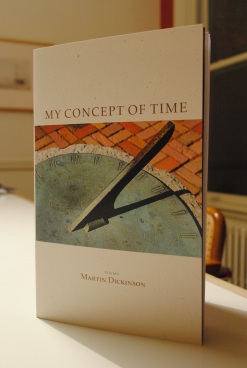
April 2015 / Carl Sandburg
The Blue Heron Speaks Featured Poet for April is Carl Sandburg
Fog
The fog comes
on little cat feet.
It sits looking
over harbor and city
on silent haunches
and then moves on.
At a Window
Give me hunger,
O you gods that sit and give
The world its orders.
Give me hunger, pain and want,
Shut me out with shame and failure
From your doors of gold and fame,
Give me your shabbiest, weariest hunger!
But leave me a little love,
A voice to speak to me in the day end,
A hand to touch me in the dark room
Breaking the long loneliness.
In the dusk of day-shapes
Blurring the sunset,
One little wandering, western star
Thrust out from the changing shores of shadow.
Let me go to the window,
Watch there the day-shapes of dusk
And wait and know the coming
Of a little love.
Handfuls
Blossoms of babies
Blinking their stories
Come soft
On the dusk and the babble;
Little red gamblers,
Handfuls that slept in the dust.
Summers of rain,
Winters of drift,
Tell of the years;
And they go back
Who came soft—
Back to the sod,
To silence and dust;
Gray gamblers,
Handfuls again.
About Carl Sandburg (1878-1967)
“… Sandburg was recognized as a member of the Chicago literary renaissance, which included Ben Hecht, Theodore Dreiser, Sherwood Anderson, and Edgar Lee Masters. He established his reputation with Chicago Poems (1916), and then Cornhuskers (1918), for which he received the Pulitzer Prize in 1919. Soon after the publication of these volumes Sandburg wrote Smoke and Steel (1920), his first prolonged attempt to find beauty in modern industrialism. With these three volumes, Sandburg became known for his free verse poems that portrayed industrial America.
In the twenties, he started some of his most ambitious projects, including his study of Abraham Lincoln. From childhood, Sandburg loved and admired the legacy of President Lincoln. For thirty years he sought out and collected material, and gradually began the writing of the six-volume definitive biography of the former president. The twenties also saw Sandburg’s collections of American folklore, the ballads in The American Songbag and The New American Songbag (1950), and books for children. These later volumes contained pieces collected from brief tours across America which Sandburg took each year, playing his banjo or guitar, singing folk-songs, and reciting poems.
In the 1930s, Sandburg continued his celebration of America with Mary Lincoln, Wife and Widow (1932), The People, Yes (1936), and the second part of his Lincoln biography, Abraham Lincoln: The War Years (1939), for which he was awarded the Pulitzer Prize. He received a second Pulitzer Prize for his Complete Poems in 1950. His final volumes of verse were Harvest Poems, 1910-1960 (1960) and Honey and Salt (1963). Carl Sandburg died on July 22, 1967.” (*Biography credit: excerpted from Poets.org)
Carl Sandburg: Collected Poems
March 2015 / M J Iuppa
The Blue Heron Speaks Featured Poet for March is M J Iuppa
Chrysalis
Wrapped in the scent of leaves,
the dream is careful.
New skin unfolds beneath the old,
a lie for beauty.
The earth is cold after rain.
My secret bed hangs quietly
in mid-air.
I know nothing of the future,
but inherit this sleep.
Perhaps the world is empty
as I am brief
like a reckless soul
turning into light–
weightless beyond safety.
First published by Poetry Magazine, April 1993.
Collected in Night Traveler, Foothills Publishing, 2003
The Usual
after Edward Hopper’s painting, Seven A.M., 1948
Summer mornings burn bright, brighter and brighter
until blue shadows melt into the creases of this
whitewashed storefront, worn wooden steps,
old dirt road that leads to the edge of town
where an eye blink determines whether
you’ve been here for a minute, or your whole life . . .
A slight breeze ripples the air, raising a swirl of pink
dust. It hasn’t rained in sixty days. Time is passing.
7 a.m. is the customary red bag brew of coffee–
8 a.m., the door unlocks–The oak counter smells like lemon oil.
The wide plank floors creak. The iron cash register pings
when the drawer springs open. What’s special today?
Not shortcake. Haven’t had shortcake in 54 years. Fresh
fruit in season. A stack of banana nut pancakes. Squeezed
juice. Buckwheat honey. Elderberry jelly. This is exclusive.
Oh sure, let’s see . . . I’ll have . . . the usual.
First published in BlueLine.
Collected in Within Reach, Cherry Grove Collections, 2010.
Button
Today, I lost a navy blue enameled button off my shirt
and I worried . . .
No larger than a juju, this button, the perfect one,
the knob of opening and closing . . .
Somewhere between picking up my sister at the airport
and the threshold of my dying brother’s bedroom,
it was gone . . .
Slipped away like a shadow in April’s twitching daylight.
I can’t replace it. Not with a collar button’s tightness, nor
with a last button’s afterthought . . . I fidget.
My brother tells my sister that we’ve missed her . . .
He tells me I have four buttons left.
First published in The Coffee House, Charnwood Arts, Loughborough Library, Loughborough, Leicestershire, England, (Spring 2004).
Collected in Within Reach, Cherry Grove Collections, 2010.
About M J Iuppa
M J Iuppa lives on a small farm near the shores of Lake Ontario. Between Worlds is her most recent chapbook, featuring lyric essays, flash fiction and prose poems (Foothills Publishing, 2013). Recent poems, flash fictions, and essays in When Women Waken, Poppy Road Review, Wild: A Quarterly, Eunoia Review, Andrea Reads America, Canto, Grey Sparrow Journal, The Poetry Storehouse, Avocet, Right Hand Pointing, Tiny-lights, The Lake (U.K.), Blue Heron, 100 Word Story, The Kentucky Review, and more. She is the Writer-in-Residence and Director of the Visual and Performing Arts Minor Program at St. John Fisher College. You can follow her musings on writing and creative sustainability on Red Rooster Farm on mjiuppa.blogspot.com.
Between Worlds, prose chapbook (Foothills Publishing, 2013)

Within Reach (Cherry Grove Collections, 2010)
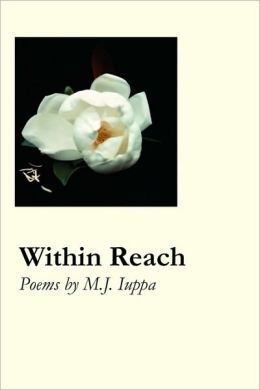
Night Traveler (Foothills Publishing, 2003)
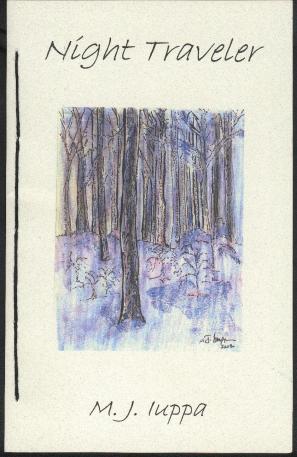
February 2015 / Simon Perchik
The Blue Heron Speaks Featured Poet for February is Simon Perchik
*
Without a riverbed you lean
feel your way through this dirt
as if it’s her voice you’re after
–for a long time, eyes closed
you empty the Earth with your mouth
darkening this built-up moss
sent off for a stone near water
stretching out to smooth the silence
hidden the way innocent bells
were placed along the shore
with no light to take away
or welcome rocks around her body.
*
Yet the moon barely mutters
pinpoints its lips the way seawater
pours into your lap, giving birth
to drifts and heaviness –your arms
weigh more, the marrow
flowing into some dried ditch
you nurse with snow, let it settle
in your arms, filling them with tides
that match the moon’s still warm lips
its voice and lullabies –you sing
making snowballs, naming them so they float
between the mornings and faster.
*
And the wave waiting in this sand
the way each child hour after hour
digs where the sea once was mountainside
burning just below the surface
–at the right moment another tide
settles in, covers this beach
with a small gesture that’s familiar
worn smooth by calling forever
–twice each day you rake for a stone
still filled with water, with currents
grinding its shell into a small pond
–to get a laugh you brush
one stone into each eye, say to the kid
you see the Earth before the first rain
when rock was nothing then but rock
devouring rock, you say the peaks
for a long time now
don’t cool in your mouth as morning, the kid
thinks you’re nuts, covers the hole
for the first time and starts again
without the word for darkness.
About Simon Perchik
Simon Perchik is an attorney whose poems have appeared in Partisan Review, The Nation, Osiris, Poetry, The New Yorker, and elsewhere. His most recent collection is Almost Rain, published by River Otter Press (2013). For more information, free e-books and his essay titled “Magic, Illusion and Other Realities” please visit his website at www.simonperchik.com.
Read an insightful blog post by Tim Stobierski, who edited Almost Rain for River Otter Press.
Almost Rain by Simon Perchik (River Otter Press, 2013)
January 2015 / Gail Goepfert
The Blue Heron Speaks Featured Poet for January is Gail Goepfert
Ameliorate
-For Shelly Solarz
My mother relished clean.
Her druthers, fresh linens daily—
thread count rising.
She never missed a shower
or a chance to wash a load of clothes.
Likely we were the most washed
family on Bloomer Drive—
pants and shirts and socks
barely worn, spun with Tide.
Tags snipped, new garments
agitated in the machine
before they touched our skin.
Guests’ towels plucked from the rod
before the shower steam vaporized.
Her fierce independence
fell to the floor
with the towel
when cancer pressed in.
The Bather came to help my mother
get in and out of the tub
She could make
this ritual happen.
My mother let her—
Bather to the Queen of Sheba.
Soon she shouldered
bottles of water
to wash my mother’s silvered hair
in bed, to sponge her fading flesh.
I sat on a chair as the sun
elbowed its way into the room
followed the rhythm
of the Bather’s hands. In reverence.
A waft of cherry blossoms in winter.
My mother stiff, her body, intent
on holding on—
thawed.
I witnessed her soften, melt
into Egyptian cotton.
Venerate
Not like
the unhurried
turn of the earth
on its axis.
Days skid by,
panoramic images
stitched
one to the next.
Stay the shutter.
Shadow that slim
weep of light
under the door.
Broken
She’s broken my friend
says of me. It’s what she tells others
when there’s something I can’t
or shouldn’t do.
So I don’t have to explain.
To anyone.
Broken how
Ground broken? Like a horse
led first by the halter, then
habituated
to bit, bridle, weight.
Broken so it may follow.
Or defective
like the cheap plastic bird feeder
with yellow perches
that fail even the finches?
Shattered? Like the amber
glass in the country
church window
where empty pews
wait inside, the altar cloth
untouched?
Or like my mother’s spine?
Collapsed. Her allergic reaction
to the toxic toxic
chemo juices streaming
through her veins
causing the worst pain she ever had.
I’m not being tamed.
Not defective, shattered,
collapsed.
Broken.
Even though I look just fine.
It’s like the brain’s
not talking right.
A glitch,
a glut of chemicals
sending messages
from the pain place
to the spinal cord
to the brain.
Pain that doesn’t subside.
Not like a hangnail
or a splinter. Or when
you stub your toe
and it hurts like hell
for a time. Not like
a broken wrist, ankle,
not the broken bone
pain that mends.
Sensitivity.
On overdrive.
Broken.
*The poem “Broken” is published in A Mind on Pain by Gail Goepfert (Finishing Line Press, 2015)
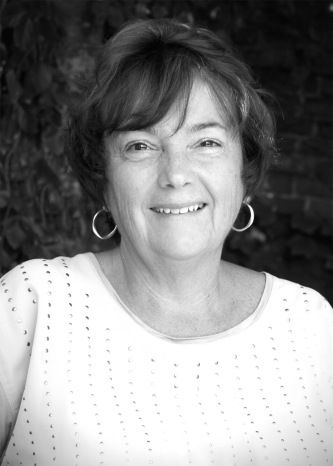
About Gail Goepfert
Gail Goepfert is a poet, amateur photographer, and teacher. After many years in the classroom with seventh graders, she pursues her passion for the arts and nature. She is an associate editor for RHINO Poetry, teaches developmental online English classes, and walks the natural world with a camera as often as possible.
A Mind on Pain is her first chapbook. She is published in a number of anthologies and journals including Avocet, Off Channel, After Hours, Caesura, Florida English, Examined Life Journal, Homeopathy Today, and Room Magazine. Online her poems appear at Blue Heron Review, Jet Fuel Review, Ardor Literary Magazine and Bolts of Silk. A Pushcart Prize nomination for a Pushcart Prize in 2013 and in 2014 by Blue Heron Review, and she’s a recent runner-up in the Blue Lyra Review contest. She loves the cross-over of the arts. A former student set one of her poems to music. Her photographs appeared in Olentangy and 3Elements Reviews.
Gail Goepfert was born and raised in the Midwest states of Illinois and Ohio, from near the Piasa Bird along the bluffs of the Mississippi to the eagle-watch waters of the river near the Quad-Cities, from the Glass City, Toledo, Ohio, to a long and present stay in the northwest suburbs of Chicago. You can find her online at: www.gailgoepfert.com.
A Mind on Pain by Gail Goepfert (Finishing Line Press, 2015)
Praise for A Mind on Pain:
“Pain rises like river water/claiming land not its own…” In these brave, moving, and harrowing poems, poet Gail Goepfert takes us through long years shut in her body by pain, seeking a diagnosis and searching for remedy in first Western, then Eastern, medicine and her own body’s wisdom. These unflinching and empathic poems speak to us all, most especially those women suffering from fibromyalgia (and they are mostly women) who have shared such a journey, and those who care about them.
–poet Robin Chapman, author of the eelgrass meadow, Dappled Things, and One Hundred White Pelicans
The relationship between pain and the afflicted body is represented with unflinching elegance and precision in Gail Goepfert’s collection. These poems chart an ordinary tale with extraordinary compassion and urgency, as the poet persists in her desire to transform her body’s story into language. Nimbly shaping free verse to each poem’s requirements, Goepfert has created a collection any human with a body can appreciate.
—Alice George, painter and author of This Must Be the Place
Sure as Dante’s Commedia traces his journey into the afterlife, so Gail Goepfert’s A Mind on Pain permits passage into the netherworld of pain and its reconstituting reality. Yet this is no allegory. Goepfert’s searing sequence of poems immerses the reader in a battle within—against pain, its deafening noise and all-consuming hunger for attention, alienation from her own body, indeed against fear and despair—as much as in the battle without—against callous and dismissive doctors, against elixirs, nostrums and needles, against intrusion and violation. In language that alternates between razor-sharp description, mordant humor, and piercing lyrical evocation—“The sun hurls itself at me, a fistful of amber”—Goepfert still finds moments of grace: Not cures, but respite in kindness, patience, gentleness, and respect. “My body—a glass harp / tapped and tuned / until it sings.” Indeed, A Mind on Pain chants, croons, and fairly hollers with artistry, troubled beauty, and valiant, resonant humanity.
—Ralph Hamilton, RHINO editor
December 2014 / Louise Bogan
The Blue Heron Speaks Featured Poet for December is Louise Bogan
Leave-taking
I do not know where either of us can turn
Just at first, waking from the sleep of each other.
I do not know how we can bear
The river struck by the gold plummet of the moon,
Or many trees shaken together in the darkness.
We shall wish not to be alone
And that love were not dispersed and set free—
Though you defeat me,
And I be heavy upon you.
But like earth heaped over the heart
Is love grown perfect.
Like a shell over the beat of life
Is love perfect to the last.
So let it be the same
Whether we turn to the dark or to the kiss of another;
Let us know this for leavetaking,
That I may not be heavy upon you,
That you may blind me no more.
The Alchemist
I burned my life, that I might find
A passion wholly of the mind,
Thought divorced from eye and bone,
Ecstasy come to breath alone.
I broke my life, to seek relief
From the flawed light of love and grief.
With mounting beat the utter fire
Charred existence and desire.
It died low, ceased its sudden thresh.
I had found unmysterious flesh —
Not the mind’s avid substance — still
Passionate beyond the will.
Knowledge
Now that I know
How passion warms little
Of flesh in the mould,
And treasure is brittle,–
I’ll lie here and learn
How, over their ground
Trees make a long shadow
And a light sound.
Epitaph of a Romantic Woman
She has attained the permanence
She dreamed of, where old stones lie sunning.
Untended stalks blow over her
Even and swift, like young men running.
Always in the heart she loved
Others had lived, — she heard their laughter.
She lies where none has lain before,
Where certainly none will follow after.
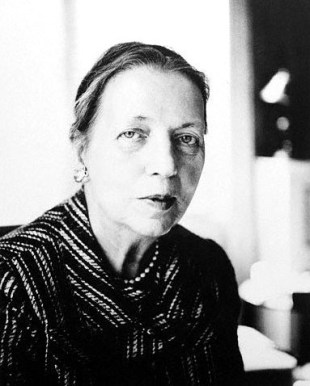
(photo credit, New Republic)
About Louise Bogan
“Louise Bogan was born in Livermore Falls, Maine, on August 11, 1897. She attended Boston Girls’ Latin School and spent one year at Boston University. She married in 1916 and was widowed in 1920. In 1925, she married her second husband, the poet Raymond Holden, whom she divorced in 1937.
Bogan’s ability is unique in its strict adherence to lyrical forms, while maintaining a high emotional pitch: she was preoccupied with exploring the perpetual disparity of heart and mind.
Her poems were published in the New Republic, the Nation, Poetry: A Magazine of Verse, Scribner’s and Atlantic Monthly. For thirty-eight years, she reviewed poetry for The New Yorker.
The majority of her poetry was written in the earlier half of her life when she published Body of This Death (McBride & Company, 1923), Dark Summer (Charles Scribner’s Sons, 1929), and The Sleeping Fury (Charles Scribner’s Sons, 1937). She subsequently published volumes of her collected verse, and The Blue Estuaries: Poems 1923-1968 (Farrar, Straus & Giroux, 1968), an overview of her life’s work in poetry. She died in New York City on February 4, 1970.” (Excerpt from Poets.org)
*To learn more about Louise Bogan, please visit the Poetry Foundation website.
(The Blue Estuaries by Louise Bogan)
November 2014 / Lyn Lifshin
The Blue Heron Speaks Featured Poet for November is Lyn Lifshin
As The Days Get Longer
the horse dreams
of flying in the air
like a gust of wind
on an abandoned
Christmas tree,
red exploding like
a spurt of light,
flaming wildly like
those boughs
out of darkness
(from Secretariat: The Red Freak, The Miracle / Texas Review Press, 2014)
When a Leggy Foal Comes Into The World
and cherry boughs are
swelling, hope flowers
like these buds. When
the foal seems different,
unlike others, who
doesn’t dream it can
go the distance, that a
“miracle has arrived”
(from Secretariat: The Red Freak, The Miracle / Texas Review Press, 2014)
But Instead Has Gone Into Woods
A girl goes into the woods
and for what reason
disappears behind branches
and is never heard from again.
We don’t really know why,
she could have gone shopping
or had lunch with her mother
but instead has gone into
woods, alone, without the lover,
and not for leaves or flowers.
It was a clear bright day
very much like today.
It was today. Now you might
imagine I’m that girl,
it seems there are reasons. But
first consider: I don’t live
very near those trees and my
head is already wild with branches
(from A Girl Goes into the Woods: Selected Poems / NYQ Books, 2013)
About Lyn Lifshin
Lyn Lifshin has published over 130 books and chapbooks including 3 from Black Sparrow Press: Cold Comfort, Before It’s Light and Another Woman Who Looks Like Me. Before Secretariat: The Red Freak, The Miracle, Lifshin published her prize-winning book about the short-lived, beautiful racehorse, Ruffian, The Licorice Daughter: My Year With Ruffian and Barbaro: Beyond Brokenness. Recent books include: Ballroom; All the Poets Who Have Touched Me, Living and Dead; All True, Especially The Lies; Light At the End: The Jesus Poems; Katrina; Mirrors; Persephone; Lost In The Fog; Knife Edge & Absinthe: The Tango Poems. NYQ books published, A Girl Goes into The Woods. Also just out: For the Roses, poems after Joni Mitchell and Hitchcock Hotel from Danse Macabre. Tangled as the Alphabet—The Istanbul Poems was published by NightBallet Press. Just released as well, Malala. The Marilyn Poems was just released from Rubber Boots Press. An update to her Gale Research Autobiography is out: Lips, Blues, Blue Lace: On The Outside. Also just out is a DVD of the documentary film about her: Lyn Lifshin: Not Made Of Glass. Lyn Lifshin is also the author of the Red Mare Press chapbook, Chiffon (Red Mare #3, 2010). Forthcoming books include: Luminous Women: Eneduanna, Schererzade and Nefertiti; Femina Eterna; and Moving Through Stained Glass: the Maple Poems. Learn more about this author: http://www.lynlifshin.com/
(Secretariat: The Red Freak, The Miracle / Texas Review Press, 2014)
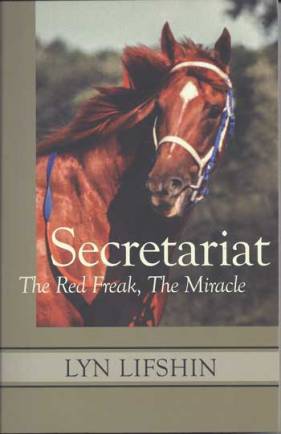
(A Girl Goes into the Woods: Selected Poems / NYQ Books, 2013)
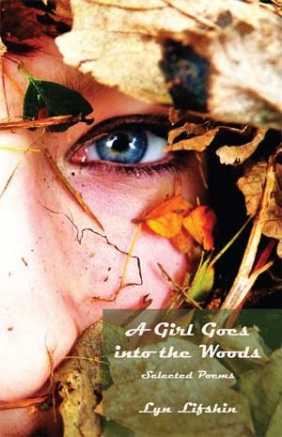
October 2014 / Kelli Russell Agodon
The Blue Heron Speaks Featured Poet for October is Kelli Russell Agodon
If My Life Were a Canvas, It Would Be a Jackson Pollock Paint-By-Numbers
1 Blue:
Imagine this: you’re spread across the page
of a dream and it’s morning. There was a storm
last night and the robin’s eggs have scattered
across the lawn. Some broken, some not.
2 Yellow:
The sink is always full
of disappointment.
Unnoticed daylight,
a measure of sadness—
chipped sunflower plates
overpowering the blue
delphinium teacups.
3 Black:
Sometimes the crows remind us, we are only ink
and paper. Puzzles to solve, silver
to seek, and when the light dims, holes appear
against the universe, in tubes of paint
gathered from the barn—
something will be stolen
from someone else’s nest.
4 White
Book of ghosts.
Whispers and watermarks.
Whatever still reflects: paper,
waves, a dove suggesting God.
5 Orange
A crowd of drunken lovers. Newspaper
hats, new couples falling from couches and love-
seats—the pleasure remembered,
never the regret.
The Broken Column
Tell me how you suffer—
in brushstrokes or synonyms,
cigarettes or sickbeds.
The gift shop is selling
small plastic skulls and temporary tattoos
of Frida Kahlo.
I’ve had enough of the disposable.
I’ve had enough of pretending I understand
why everything is never enough.
Look at our lives.
We’re lost in a web
of logins, in photos
of a friend’s family vacation.
I never remember all my passwords.
I never remember when I walk
into a museum, my life shifts.
Earthquake, accident,
layers of God removing the dead
skin from my palms. Frida,
I made a dress from your postcards.
I believe we all love something we don’t talk about.
Shattered spine. Fence post leaning against the road.
Illness. How many words are there for pain?
Tell me how the gossip in old books
holds you near,
how whiskey is the valley
you want to visit.
Yes, it hurts to fall—
ache, tenderness
—but each scar is a sign your system is working.
*Poems from Hourglass Museum (White Pine Press, 2014)
About Kelli Russell Agodon
Kelli Russell Agodon is a poet, writer, and editor from the Northwest. She’s the author of Hourglass Museum (White Pine Press, 2014) and The Daily Poet: Day-By-Day Prompts for Your Writing Practice, which she co-authored with Martha Silano.
Her other books include Letters from the Emily Dickinson Room (Winner of ForeWord Magazine’s Book of the Year in Poetry and Finalist for the Washington State Book Prize), Small Knots, Geography, and Fire On Her Tongue: An Anthology of Contemporary Women’s Poetry. She has won various awards in writing and editing from Artist Trust, The Puffin Foundation, North American Review and her work has been published in journals such as The Atlantic, Prairie Schooner, and the New England Review.
Kelli is the cofounder of Two Sylvias Press and was the editor of Seattle’s Crab Creek Review for the last six years. She lives in a small seaside town where when not writing, she does graphic design and photography. She is also an avid paddleboarder and mountain biker who has a fondness for old dogs, bonfires, desserts, and fedoras. Visit her at: www.agodon.com or learn more about Two Sylvias Press at: www.twosylviaspress.com
Twitter: @kelliagodon
Facebook: www.facebook.com/agodon
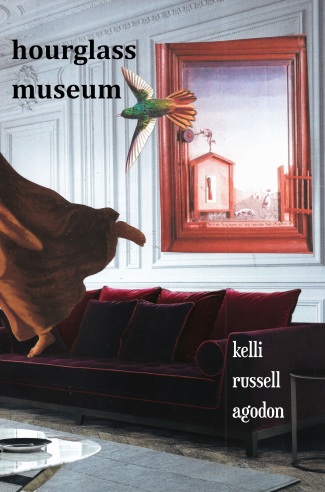
(Hourglass Museum, White Pine Press, 2014)
September 2014 / Richard Havenga
The Blue Heron Speaks Featured Poet for September is Richard Havenga
Gold Rings
water’s smooth surface
collects sprinkles at sunset
returns rings of gold
Theatre of Clouds
theatre of clouds
draws veiled curtain over hills
light shines through thin rain
Celestial Vision
celestial vision
desert spirit tongues of flame
evening sky on fire
Willow Leaf
count the pure dew drops
on a single willow leaf
infinity waits
About Richard Havenaga
Richard Havenga seeks to make the ordinary extraordinary through close, personal observations of nature. Weaving words of grace and gratitude through the tapestry of his exquisite photographs, Richard shares everyday miracles with the rigorous curiosity of a naturalist, and the immeasurable perceptions of an artist. Richard writes with a supple blend of awareness, spirituality, and discovery. Always attentive outdoors, always searching for new epiphanies of beauty, always grateful for the extravagant gifts of creation, he leads the reader-viewer along an inviting trail of words and images; gifts thoughtfully selected, and graciously given. Richard Havenga is a writer, nature photographer, poet, teacher, naturalist, and author of the blog, “Walk With Father Nature”. He’s been married to his loving wife, Mary, for 43 years. They live on ten wooded acres, on a designated “Natural Beauty” road near Cannonsburg, Michigan. Find out more about this author:
Blog: http://walkwithfathernature.blogspot.com/
Pinterest: http://www.pinterest.com/richardhavenga/
LinkedIn: https://www.linkedin.com/profile/view?id=201360611&trk=nav_responsive_tab_profile
Website: https://sites.google.com/site/richardlhavenga/services
August 2014 / Karen Carissimo
The Blue Heron Speaks Featured Poet for August is Karen Carissimo
Lisbon
Born of the sea,
faces of lovers
are false gods, fables
of memory and failing
light. How the heart
obeys love’s
ordinary madness,
love’s empty eyes
drowned in wine.
A sorrow gestures
in veils of smoke,
follows us to shore,
to ships of bone-white
islands tied to harbors.
We are orphans
in Santos, in the streets
phantoms dance
in dresses blown
on laundry lines.
It is night’s nature
to blind. In sleep
a dream of you dies.
We never live by
the names we are given.
You are nothing,
and I am nothing
but the words
spilling from our mouths,
fires burning and burning.
Above tiled roofs, the Lady
of the Hill watches from a lit
belvedere. In the city square,
human shames, betrayals,
birds tossed from a belfry.
Your song over a quieting
sea, a fado in crescendo
and fall. Another night
rises, deepens, your voice
a bouquet filling my arms.
(“Lisbon” originally appeared in Many Mountains Moving)
Deathbed
All day he watches the monkeypod he never climbed
as a boy. In the house his father’s father built,
he hasn’t noticed the tree since he first learned
to speak. He wants to be alone
in his marriage bed, remember the years
of touch, of heat suckling his pores.
We stay with him, wet his cracked lips
with broth, spoon-feed him our lament
as we wait for a word, an heirloom
issued from his dark insides.
Out of his opening mouth a nimbus
of breath rushes past us like a thousand moths
alighting in the tree whose roots cling and deepen
in the ground we thought we knew.
(“Deathbed” originally appeared in Cimarron Review and also appears in Karen’s book, Dream City / Iris Press, 2012.)
Journey
Names of lovers and lost friends became dust
in dying cities, in the wind of pastures
of silent animals and stones grown into an eerie
array. I walked in solitude, a land
divided by stray thoughts, peopled
with ghosts. Altered landscapes, blurring
colors of gray sea beating beige cliffs, mountain
passes disappearing into invisible suns
all narrowed to a single turn of light that shifted
days to years. On timeless sands of deserts,
abandoned to hunger and night, I wandered
beneath aimless birds drifting in the sky.
(“Journey” originally appeared in Notre Dame Review and also appears in Karen’s book, Dream City / Iris Press, 2012.)
About Karen Carissimo
Karen Carissimo’s poems have appeared in numerous journals, including Cimarron Review, Cutthroat, Notre Dame Review, North American Review, Western Humanities Review, Crab Orchard Review, and Valparaiso Poetry Review. Her fiction has appeared in Green Mountains Review and Fourteen Hills, and nonfiction in The San Francisco Chronicle. Her first book of poems, Dream City, was published in 2012 by Iris Press. She is currently at work on a second collection of poems and a novel. Find her on Verse Daily. Karen’s poetry collection, Dream City, is available on Amazon and from Iris Press.
July 2014 / Martin Willitts Jr.
The Blue Heron Speaks Featured Poet for July is Martin Willitts Jr.
Living In the Breathless Moment
Living in the breathless moment —
that moment of surprise,
that heart
break into silence,
the no-sound, the absolute hush,
where this world folds into a pocket.
I have been carrying this for a while —
neither a burden nor joy,
this moment-to-moment
amazement of small things speaking,
it is too much Love,
none of which I believe I deserve.
The Singular Moment
The quickening unfolds —
a nightingale sings a peach blossom
from invisible stillness.
Nothing is permeable. Not any one thing.
Leaves turn brittle, rain
dries into nothingness, a soundlessness
of birds fly tremendous distances,
rocks break into light, bells forget how to ring
inside a Chrysanthemum.
The singular moment when things are alive
does not have to make sound
in order to cause amazement.
Message
Sometimes you are waiting for a message
that never comes. We are impatient for the Spirit
to lift the day like a small child into open arms of sky.
Sometimes you face silence
and the loneliness is overwhelming.
You find no place you feel welcomed.
Why does the heart not feel open?
The sky is not the face of silence.
Enter, instead, into the overwhelming,
The Spirit has wanted to share this message.
It lets you know everything is fine. The Spirit
has known you since you were born.
Sometimes the answer has been in the Silence,
and you have not been listening.
Because you do not know it, you do not feel welcomed.
Sometimes we are searching for the message
in the right places, but impatience cannot find the Spirit.
However, Spirit’s heart of waterfalls is overwhelming.
Like doors of butterflies, like jars of laughter, Spirit
has been waiting for you. Light will split your chest open,
breaking clouds over anvils, banging gongs.
About Martin Willitt’s Jr.
Martin Willitts Jr. is a Quaker, organic gardener, visual artist of paper cutouts, and retired Senior Librarian living in Syracuse, NY. Winner of the 2012 Big River Poetry Review’s William K. Hathaway Award; co-winner of the 2013 Bill Holm Witness Poetry Contest; winner of the 2013 “Trees” Poetry Contest; and winner of the 2014 Broadsided award. He has 27 chapbooks including recently, The Constellations of Memory and Forgiveness (Seven Circles Press, e-book, 2014), A Is For Aorta (Kind of a Hurricane Press, e-book, 2014), and national chapbook contest winning, William Blake, Not Blessed Angel But Restless Man (Red Ochre Press, 2014). He has 6 full-length collections including recently, Art is an Impression of What an Artist Sees (Edgar and Lenore Publishing House, 2013), national award winner for, Searching for What You Cannot See (Hiraeth Press, 2013), and Before Anything, There Was Mystery (Flutter Press, 2014). He has poems in Rattle, Stone Canoe, Blue Fifth, The Moon Magazine, Blue Heron Review, Poppy Road Review, Comstock Review, Nine Mile, Big River Poetry Review, and numerous others.
Searching for What is Not There
Before Anything, There Was Mystery
June 2014 / Ruth Bavetta
The Blue Heron Speaks featured poet for June is Ruth Bavetta.
Expendables
Give them your heart, liver, lungs,
the network of nerves, the strum
of your breath. Let them deconstruct
the architecture of your bones,
pile them on the hill in an ossuary
of discontent. Let them pull
and release the sinews,
tug apart the tendons,
pluck the feathers.
They will not find
the mystery.
Passage
At the foot of the stairs
weeds grow in sand
wherever they can.
Skeins of kelp
drape swags across
fringes of damp.
Water flashes
up the beach, reaches,
washes away flesh
of the dead seabird. Mends
without feathers, without
needle and thread.
Empty hands hold sand.
Birds born into shade,
watch them fly.
Ode to Stillness
Praise to the stillness when the baby falls asleep,
a milky pearl suspended from his bottom lip,
to the silence when the yapping dog
gives up and curls into the shade,
to the goldfish circling his glassy walls.
Honor the moment between
the shore-churned waves,
the hour of dawn when the cricket
folds his legs at last. Praise
the silence of the sun’s yellow light,
clouds piling up in the west.
Wait for three am, when at last he sighs,
turns over in bed and stops snoring.
Step into the still and silent air
after last wisp of the Santa Ana
has swept the canyon. Praise again
to the rose and the morning glory
and the magnolia
motionless in morning fog.
About Ruth Bavetta
Ruth Bavetta’s poems have been published in Rattle, Nimrod, Tar River Review, North American Review, Spillway, Hanging Loose, Rhino, Poetry East, and Poetry New Zealand, among others, and is included in the anthologies Twelve Los Angeles Poets and Wait a Minute; I Have to Take off My Bra. She has published two books, Fugitive Pigments and Embers on the Stairs. A third book, No Longer at this Address, will appear in 2014. She loves the light on November afternoons, the smell of the ocean, a warm back to curl against in bed. She hates pretense, fundamentalism and sauerkraut. Learn more about this author here: http://ruthbavetta.com
To purchase books, visual poetry or original artwork by Ruth Bavetta, visit her website: http://ruthbavetta.com
Ruth Bavetta’s latest book of poetry is:
Embers on the Stairs
May 2014 / Megan Morgan
The Light-Bearing Month of May
The Blue Heron Speaks featured artist for May is Fine Art Photographer, Megan Morgan. Since last month was National Poetry Month, I wanted a change of pace for this page. If poets paint with words, then visual artists create poetry through the beauty of image, form and visual concepts. To honor the light-bearing month of May, it is my great pleasure to introduce and shine a spotlight on the talents of photographer, Megan Morgan. I hope you enjoy these majestic glimpses of light in their natural and unexpected forms.
Light reaches out to us in spring –
touches the cheek with soft lips –
reminds us that summer will soon awaken.
~C. Norcross
I hope you will come visit this page often in May, when in need of some spiritual breathing space. Sometimes just pausing in our day to gaze at artful beauty, can change our whole outlook. Let there be light!
There is a Boat That Waits for Me
(Inspired by the photograph, “Morning Light,” by Megan Morgan)
Feathered light finds my eyes
like fingers brushing against skin –
like the flow of water on tender feet
longing to leave the shore.
There is a boat that waits for me,
a drifting raft takes me away
from the island of dreams,
nestled beneath covers
and layers of silk.
I pull a thread,
stare at its texture –
its braided, unraveling tube.
Like Alice, getting smaller,
I dive into the tunnel –
growing bolder with each layer of life
floating across my vision.
I must get to the boat,
I think.
I must keep going.
The blinds unfold,
letting in the full circle of sun.
I have arrived.
Cristina M. R. Norcross
Copyright 2013
About Megan Morgan
Megan Morgan is a visual artist currently living in Northern California who focuses mainly on photography. She graduated from the San Francisco Art institute with a Masters of Fine Art in 2012. Her work can be found in exhibitions throughout North America including Toronto (ON), Detroit (MI), Halifax (NS), San Francisco (CA) and more. Megan’s work embraces the notions of place, identity, history and light. More formally, Megan’s work ranges from portrait photography to environmental landscapes, to issues surrounding gender and race as well as the abstract. Additionally, as a yoga instructor, she believes in the goodness and uniqueness of all people and strives to find ways to capture the best of this lifetime with the people and places she teaches and photographs. You can find her musings, websites and other creative work here:
www.manouchephoto.com
www.meganmmorgan.com
Twitter: @MeegnMMorgan
Tumblrs: www.mintedvintage.tumblr.com
www.meganmmorgan.tumblr.com
www.manouchehphoto.tumblr.com
Happy National Poetry Month!
April 2014 / May Sarton
In honor of National Poetry Month, I have chosen to feature a special writer who is no longer with us. I hope you enjoy these three poems by May Sarton.
We have to dare to be ourselves,
however frightening or strange that self may prove to be.
― May Sarton
Now I Become Myself
Now I become myself. It’s taken
Time, many years and places;
I have been dissolved and shaken,
Worn other people’s faces,
Run madly, as if Time were there,
Terribly old, crying a warning,
‘Hurry, you will be dead before-‘
(What? Before you reach the morning?
Or the end of the poem is clear?
Or love safe in the walled city?)
Now to stand still, to be here,
Feel my own weight and density!
The black shadow on the paper
Is my hand; the shadow of a word
As thought shapes the shaper
Falls heavy on the page, is heard.
All fuses now, falls into place
From wish to action, word to silence,
My work, my love, my time, my face
Gathered into one intense
Gesture of growing like a plant.
As slowly as the ripening fruit
Fertile, detached, and always spent,
Falls but does not exhaust the root,
So all the poem is, can give,
Grows in me to become the song,
Made so and rooted by love.
Now there is time and Time is young.
O, in this single hour I live
All of myself and do not move.
I, the pursued, who madly ran,
Stand still, stand still, and stop the sun!
The Phoenix Again
On the ashes of this nest
Love wove with deathly fire
The phoenix takes its rest
Forgetting all desire.
After the flame, a pause,
After the pain, rebirth.
Obeying nature’s laws
The phoenix goes to earth.
You cannot call it old
You cannot call it young.
No phoenix can be told,
This is the end of the song.
It struggles now alone
Against death and self-doubt,
But underneath the bone
The wings are pushing out.
And one cold starry night
Whatever your belief
The phoenix will take flight
Over the seas of grief
To sing her thrilling song
To stars and waves and sky
For neither old nor young
The phoenix does not die.
When a Woman Feels Alone
“When a woman feels alone, when the room
is full of daemons,” the Nootka tribe
Tells us, “The Old Woman will be there.”
She has come to me over three thousand miles
And what does she have to tell me, troubled
“by phantoms in the night”?
Is she really here?
What is the saving word from so deep in the past.
From as deep as the ancient root of the redwood,
From as deep as the primal bed of the ocean,
From as deep as a woman’s heart sprung open
Again through a hard birth or a hard death?
Here under the shock of love, I am open
To you, Primal spirit, one with rock and wave,
One with survivors of flood and fire,
Who have rebuilt their homes a million times,
Who have lost their children and borne them again.
The words I hear are strength, laughter, endurance.
Old Woman I meet you deep inside myself.
There in the rootbed of fertility,
World without end, as the legend tells it.
Under the words you are my silence.
(photo by Lotte Jacobi)
About May Sarton
May Sarton, originally named Eleanor Marie Sarton, was born on May 3, 1912, in Wondelgem, Belgium. She and her family were forced to flee after the invasion by the Reichswehr in 1915, and the family settled in Boston, Massachusetts. By the time she graduated from high school, Sarton had decided to pursue a career as an actress, and at the age of seventeen she left home to join New York’s Civic Repertory Theater under Eva de Galienne. After the dissolution of the company and the failure of her own repertory theatre, the Associated Actors Theater, Sarton abandoned her dream of acting and turned her attention to writing.
May Sarton’s numerous collections of poetry include Coming Into Eighty (Norton, 1994), Collected Poems: 1930-1993 (1993), Halfway to Silence (1980), A Private Mythology (1966), The Lion and the Rose (1948), and Encounter in April (1937). She also published many autobiographical works and novels, notably Mrs. Stevens Hears the Mermaids Singing (1965), in which she revealed her homosexuality to the reading public. Over the course of her career, Sarton taught at several colleges and universities, including Harvard University and Wellesley College. She died of breast cancer on July 16, 1995.” (Biographical information from www.poets.org)
March 2014 / Carolyne Whelan
Watching the Red-Tailed Hawk’s Courtship Ritual
Oh aerial diver, today you do not dance for me
but I watch anyway, another plump bird perched to you
in this heat wave. You’ve been flying large circles
twenty minutes now, almost absurd in your ability
to love, to want. You swoosh close to her while calling
kreeear, and if you could you would have smelled
her soft feathers, the squirrel blood still warm.
She could tilt her head back to invite you
down from the sky to tie up your sails for a moment
and define nest, but twenty minutes is a record
for all of us now and why stop? I am naked
and drinking coffee and don’t intend on dressing
all day maybe – in this secluded back yard
I feel exposed only to your wings, and her sharp beak
that could scoop me like a muskrat for my voyeurism.
But Lady Hawk, we may be two big women
daring a dance to continue, but the hot threat of summer
has weighed me down so coolly, I can’t recall ever feeling
so high as you right now. Take your diver, prince of flight,
and grasp talons. I wouldn’t know what to do with him, and he
would like nothing but dinner of my flesh.
After Rumi
Whenever I drink an afternoon beer
it hits me harder than I expect
and suddenly I want to write a poem,
expect a poem of myself as if it
weren’t no giant feat to put the world
in a line, to write you into a rib
from which I suck the meat,
a pool in which I find myself drowning.
So cool, I decide to sit on that bottom
all day, writing you around me.
About Carolyne Whelan
Carolyne Whelan received her MFA in poetry and nonfiction at Chatham University in 2009, where she was a finalist for Best Thesis. She was awarded an Honorable Mention in the Sacramento Poetry Center Prize for a Single Poem, and was a Jan-Ai fellowship winner. Her first chapbook, The Glossary of Tania Aebi, was published by Finishing Line Press. Her work has appeared or is forthcoming in a number of journals, most recently Willows Wept and Sugar House. She lives in Pittsburgh, Pennsylvania.
February 2014 / Rebecca Seymour
Blue Heron shines a spotlight on poetry with a cause for the month of February! Please welcome the work of writer/journalist/poet, Rebecca Seymour.
Co-authored by Rebecca Mattano, Connecting With Wisconsin Wildlife, brings greater awareness to the importance of protecting our environment for our fellow inhabitants of the wildlife kingdom. Blue Heron Speaks features Rebecca Seymour’s poem, “Dakota Moon,” this month from her book, Connecting With Wisconsin Wildlife. I hope you will read more about this wonderful book and the valuable work done by the Wildlife in Need Center (Oconomowoc, WI). All proceeds from this book benefit the educational and rehabilitation programs implemented by the Wildlife in Need Center.
About the Book:
Wisconsin’s spectacular rolling hills and prairies, diverse forests and sparkling waterways provide the perfect backdrop for exploration and discovery. Connecting With Wisconsin Wildlife will inspire people of all ages to step outside and unearth a better understanding and appreciation for the wild wonders found right in their own backyards.
Connecting With Wisconsin Wildlife shines a spotlight on the efforts of wildlife rehabilitation and educational programs like the Wildlife In Need Center. The purpose of the book is to also inspire a lifelong love for wildlife and the natural world. Open the pages of this beautifully photographed book to learn more about the Wildlife In Need Center and the University of Wisconsin-Waukesha Field Station and their missions to provide wildlife rehabilitation, research and community education programs.
Connecting With Wisconsin Wildlife tells the story of Dakota the great horned owl, a beloved educational animal for the Wildlife In Need Center. The book also takes readers on a walk through Wisconsin’s diverse, natural habitats and introduces interesting features about some of the state’s native animals that live within these vital ecosystems. Readers will also discover ways to connect with wildlife through hands-on projects that help plant the seeds of stewardship and a lifelong love for Wisconsin’s magnificent natural legacy.
Dakota Moon
By Rebecca Seymour
The full moon is fat as it finally breaks free
from the deepening purple horizon.
Lightning suddenly zigzags across the darkening moody sky,
chased by a low rumble of thunder.
Spring’s first storm is making its entrance,
but the baby owlet, high up in his nest,
doesn’t know it …
A giant gust of wind rolls down the hillside,
prairie grasses and wildflowers rippling in its wake.
The giant bur oak standing sentinel on the edge of the rolling meadow
shudders against the gathering thunderstorm.
Mother owl is on her nighttime hunt
and her baby owlet is all alone … waiting.
Tiny, razor-sharp talons scuttle and scrape
on sticks and last season’s brittle leaves
as the wee owl presses against the side of his nest.
A bright burst of lightning
reveals for just an instant
the tapestry of twigs and leaves
and two little amber eyes as he peers over the nest … searching.
The storm’s blustery wind now howls through the woods,
whistling through branches that sway and
thwackity-thump against each other.
The nest starts to teeter
and then topple.
The baby owl
is falling …
And a mother great horned owl’s haunting call,
“Whoo-hoo hoooooo whoo-hoo”
is carried away
with the wind.
About Rebecca Seymour
Rebecca Seymour has lived in and around Southeast Wisconsin’s Lake Country area for nearly 40 years. A writer and photojournalist, Rebecca has had hundreds of works published in award winning newspapers and magazines, including 30West, Metro Parent and the Oconomowoc Arts Center’s On the Arts. Her award winning column, Pebbles in My Pocket, published in the Oconomowoc Focus newspaper, is a reflection of living and loving in this little corner of Wisconsin.
A teacher naturalist, Rebecca spent five months living in a tent, working as a wilderness guide and camp cook in the most remote areas of the Grand Teton Wilderness in Wyoming. She developed and taught outdoor nature programs for children and families, has volunteered at the Retzer Nature Center in Waukesha and is an active member of the Wildlife In Need Center in Oconomowoc.
Co-author, Rebecca Mattano
Rebecca Mattano is an award-winning author who develops and publishes children’s environmental education materials. Every publication, including Connecting With Wisconsin Wildlife, is aimed at promoting environmental awareness, appreciation, knowledge and stewardship.
With a Master of Science in Natural Resources emphasizing Environmental Education, Rebecca continues to educate herself and others about the environment along with environmental issues. She understands that education is the key to a sustainable future and it is never too early to begin talking with our children about nature, wildlife and the environment.
January 2014 / Kristina Moriconi
More Than Once
for my father
I dream you are a bird
drawn to edges,
like in Denpasar,
along the mangroves
where I drifted
in the small wooden boat,
a tangle of roots dense beneath me,
diffusing the waves.
I wait there, know I’ll want
to find my way back
someday, to the fringe
of coastlines,
to the mudskippers
and fiddler crabs.
I imagine the trees are days,
clustered together.
You perch high on branches
of the Blinding Tree;
I hear your voice
in a chorus of sandpipers,
songs that once lulled me to sleep.
Stay, I beg, but you fan
your brown feathers,
lift toward blue.
Accident
for E.
There is a place where even rock splits wide open,
lets in the sea. This is where we begin.
The bones of me saw-cut, pried like bars, my chest
a cavern already filling up with blood.
What you see first: how many ways I try to die;
you stitch only the torn apart face.
This is all you can do then to make something
that looks even slightly like forever.
Today, you row for me the wooden boat
out past the rock to shore.
We gather smooth red stones, white sticks,
the smallest pieces of shell.
We’ve made a list of what’s still missing, what
has since been stripped away.
There is a place where the body, broken,
can find its way back to whole.
About Kristina Moriconi
Kristina Moriconi received her MFA in creative writing from Pacific Lutheran University’s Rainier Writing Workshop in Tacoma, Washington. Her work has appeared most recently in Mobius: The Journal of Social Change and The Hive: Apiary, and her chapbook, No Such Place, is due out in the fall of 2013 (Finishing Line Press). She teaches writing in the Philadelphia area and runs a writing workshop with Mothers in Charge for women who have lost children to violent crime.
December 2013 / Paulette Beete
Kitchen Poem
No difference between
the map of wounds
the map of blessings.
Consider how impossible
to recognize joy
without sorrow’s thumbprint.
Hosanna and Hallelujah
the end of grief,
grief the price
of mouths forming
holy syllables.
Forgotten in the basket
the potato sprouts:
from each wound
life weeps forth.
Come see what
new planet erupts.
Him (His Third Love Poem)
Damn the consequence of trying to open myself up:
the repulsive, the naked, the dark ferocity.
We’re supposed to follow certain etiquette and behave.
If you don’t mind, I’m just gonna look at things without the sugar coating.
We have all these voids we try to fill in different ways.
I want to just do something good, to provoke
intimacy, see what happens underneath the veneer when
people break, when there’s no barrier.
Can we be more human in a way?
(Found in “Michael Fassbender by John Brolin,” INTERVIEW magazine, 2011)
Consider her body…
1
And her body leaked out of itself.
No. Her body wept out of itself.
Her body became runaway child and
her body became grief.
Her body became not grief but the empty vessel
not even sorrow could fill or satisfy.
Her body did not run from itself or misplace itself.
Her body did not surrender. Her body didn’t become
room hidden in room or kneel in the bare corner
of itself, empty-handed, unable to pray.
Nothing ended or was over.
Think of her body as a tunnel of love flowing upriver.
Cease to think of her body at all
or think only of its singular contents in passing.
Picture the mouth holding her torn body,
a mother cat with its devotions of small birds and infant hares.
2
She opens her mouth to pray. She opens her mouth to pray
and quivers. Even as her body pours out of itself, even as
the woman weeps over her leaking body. Even as
God accepts the body torn, the devotional offering, spotless as
a small bird, an infant hare.
About Paulette Beete
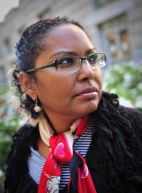
(author photo by Carrie Holbo Photography)
Paulette Beete’s poems, fiction, and nonfiction have appeared in journals included Crab Orchard Review, Rhino, Escape into Life, and Provincetown Arts, and in the anthologies Full Moon on K Street: Poems About Washington, DC and Saints of Hysteria (with Danna Ephland). She has held residencies at the Ragdale Foundation, the Atlantic Center for the Arts, and the Fine Arts Work Center in Provincetown. She is the author of two chapbooks: Blues for a Pretty Girl (Finishing Line Press) and Voice Lessons (Plan B Press). She blogs semi-regularly at www.thehomebeete.com.
November 2013 / Ingrid Goff-Maidoff
One Morning My Soul Arrived
One morning my soul arrived
through the fragrance of a lily,
and slipped inside my body to feel
the full wonder of being alive.
“Taste those grapes,” she said, “touch that silk.”
“Kiss that man,” she urged, “how delicious.”
All day she rode inside me
And told me what to do.
“Listen now. Breathe. Stop reaching.”
We wandered the wooded trails.
There were birds I’d never heard before
and strange flowers in the fields.
We ventured to town for chocolate,
friendship, news and bread.
It was a day of celebrations,
pleasures, praise and song.
Each moment tumbled forward,
a gentle wave unto the shore.
When night came, I was exhausted,
but very happy, yes.
From What Holds Us, Sarah’s Circle Publishing (2011)
Become the Beloved
The time will come when you tire
of the person you’ve created.
This isn’t in any case, who you really are.
What is it, within you, that knows this?
Whose voice have you begun to hear
like a long forgotten song?
You may call it consciousness or Soul.
It is a part of you greater than reason
and inseparable too ~
your twin, essential nature,
the wholeness of who you are.
You may as well stop hiding.
Who else has heard this song?
Begin to seek out those whose eyes
spark with a subtle awareness;
whose presence exudes the peace and the love
you’ve begun to taste within you.
Stay with this.
Become the Beloved.
The more hearts that are in
this sacred way of being
the better for us all.
From Befriending the Soul, Sarah’s Circle Publishing (2013)
About Ingrid Goff-Maidoff
“I love creating poetry, books and gifts that support the every-day art and practice of living ( human ) lives in loving alliance with the sacred. This has been my passion and my calling for more than thirty years.
As a visual artist, my heart delights in designing books and gifts that are as deeply soulful as they are beautiful. I love serving galleries, museum stores, church gift shops, and the gift giver within us all.
As a writer, I am so pleased that my words land and blossom in other people’s hearts. I am committed to being of service to those who seek out poetry as a bridge to illumination for their retreats, spiritual gatherings, curriculum development and personal lives.
And as an anthologist, my life has been a rich treasure hunt among the wisdom traditions of the world. Over time, I have found a long inter-faith lineage of mystics, poets, skeptics and saints from all ages and around the globe who have lived in conversation with oneness and the soul, and for whom this has been a primary passion and concern. I have come to consider them among my greatest teachers, companions and support. It has been my deepest delight to search for, study, and share their words, gathering them up like offerings of beautiful flowers.
I live on Martha’s Vineyard with the loves of my life. My husband Jonah and I were college sweethearts, and have been married for over 25 years. We have two daughters whom we adore: Rose who is now in college, and Bella who is a beautiful teen. In 2000, we built a house in the woods behind the old farm which has been in my family for over sixty years. My parents still live there today. Jonah and I have planted fruit trees and a garden, and sense that with enough elbow grease and the proper attitude we could create a heaven here on earth. It has been our sh”ared desire to cultivate a home of creativity, love, humor, wisdom and compassion.”
OCTOBER 2013 / Cristina M. R. Norcross
Blue Heron Speaks / (Inspired by the artwork of Daniel Adams)
Come dream with me –
in a place of being and echo –
of sound and dance.
Our souls will speak in verse.
We will laugh out loud in the meadow,
where no one can hear us but the birds
perched on high.
Come dream with me –
as we create an oasis for the spirit –
a place where the heart loves without fear –
where oneness is a daily celebration.
Copyright 2013
The Sacredness of Now
Waiting for time to elapse –
flipping through a book of film cells,
is never productive.
Like paint drying
or the watched pot,
it cannot be pressured into passing.
Wasted moments –
these periods when you wish
for another heartbeat
to come and save you.
You long for this day to end,
so that the real you
may begin to unfold its wings.
The most beautiful bird in flight
is the one that hangs in the air
with no purpose in mind,
other than eventually calming hunger,
gliding on air
with no effort –
no wing exerting might.
The hawk
can tell you some lies,
if you wish,
about time.
It passes.
It quickens.
It slows to fill space,
in spite of this hurried life.
The only thing worth waiting for –
is for your heart to acknowledge
the sacredness of now.
From The Red Drum: Selected and New Poems, Lone Gull Press (2013)
Copyright © 2013 – 2017 Blue Heron Review ALL RIGHTS RESERVED
(Blue Heron Review holds first publication rights of poems. All original rights go back to individual authors.)
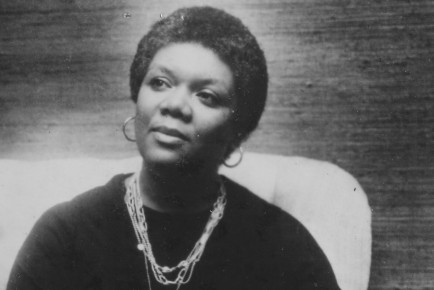
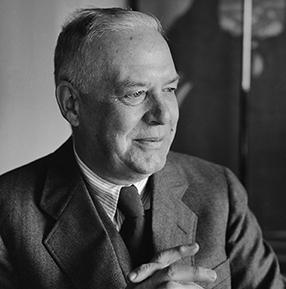
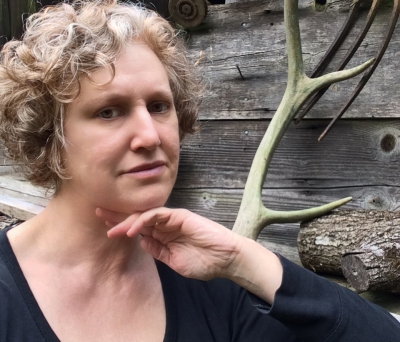
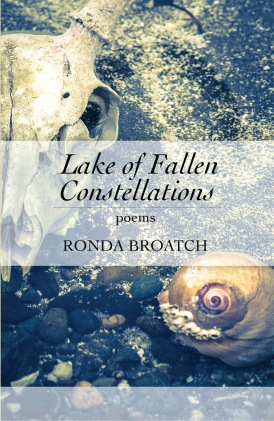
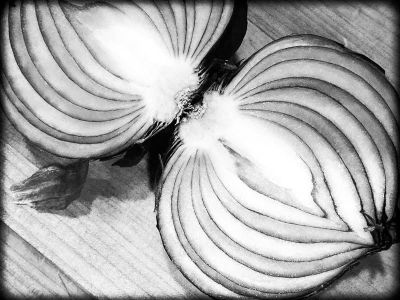
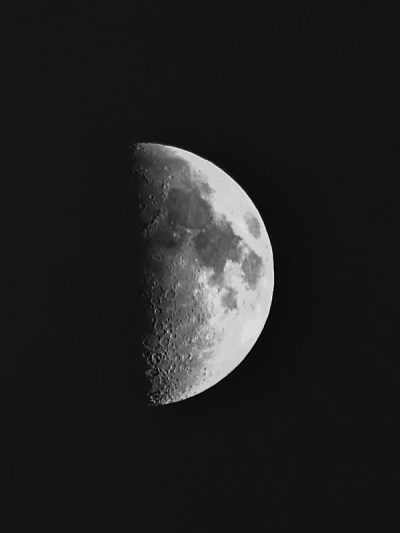
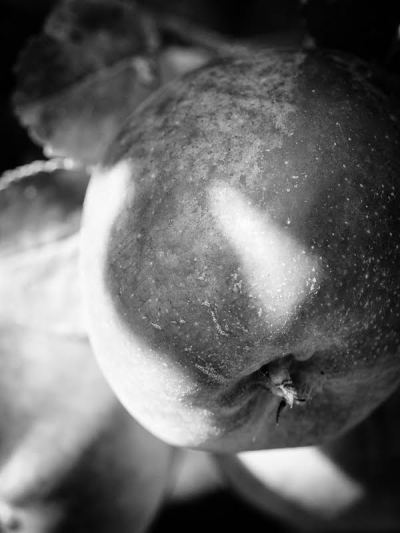
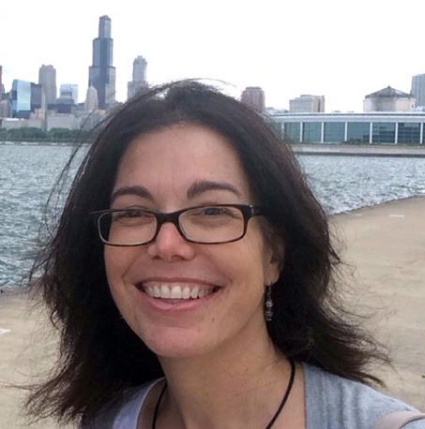
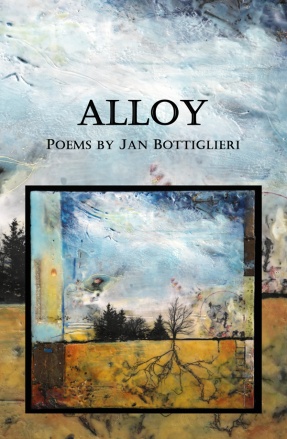

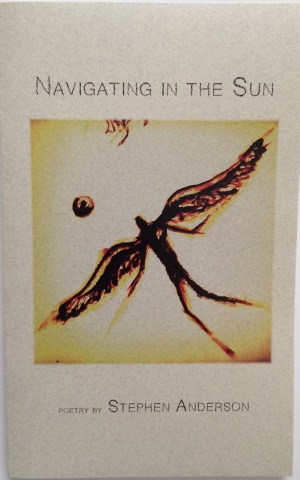
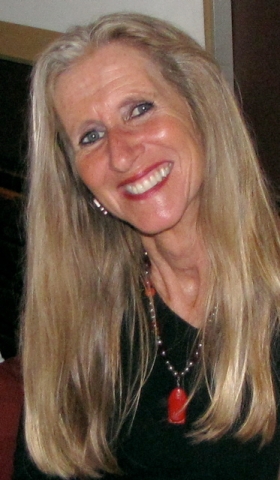
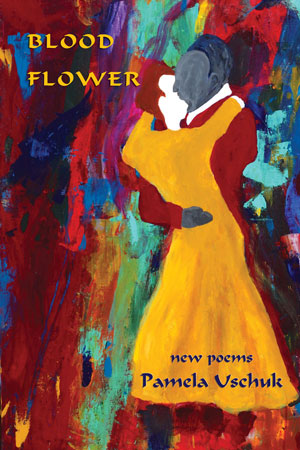

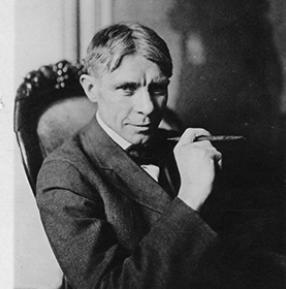
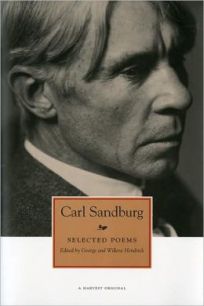
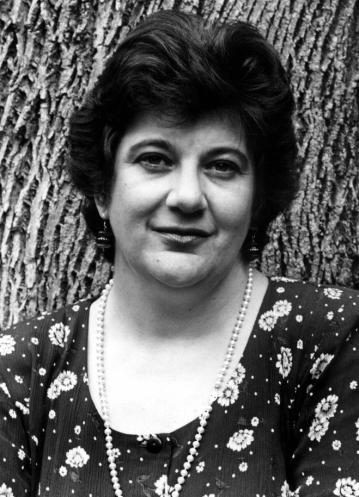
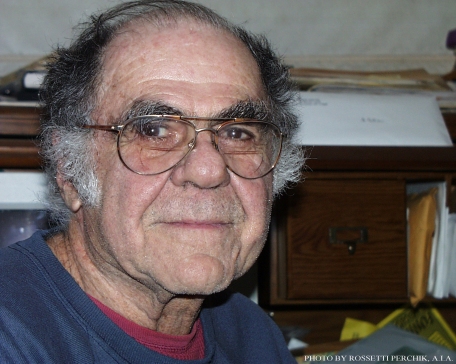
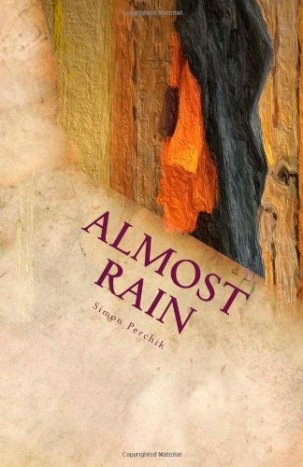
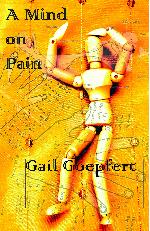
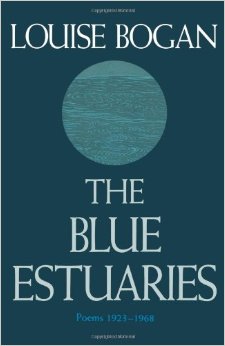
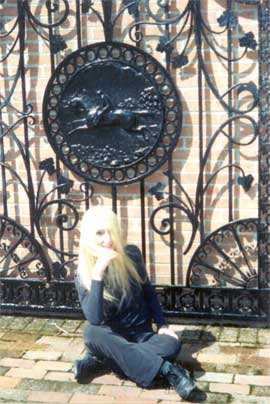
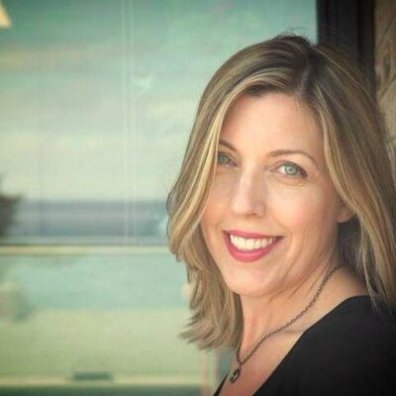

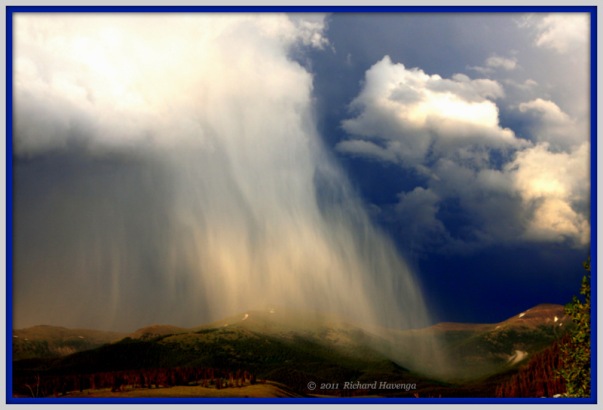
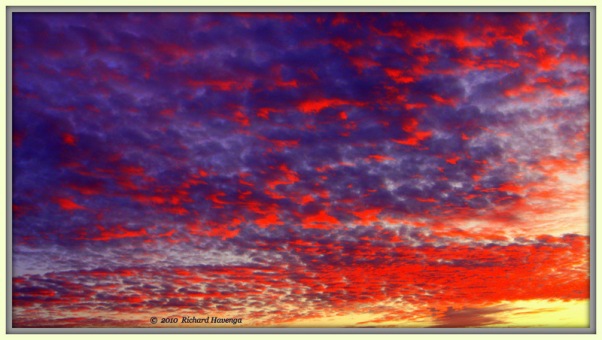
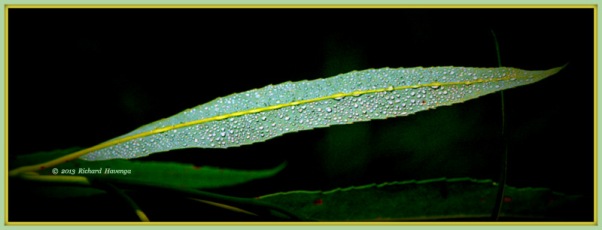
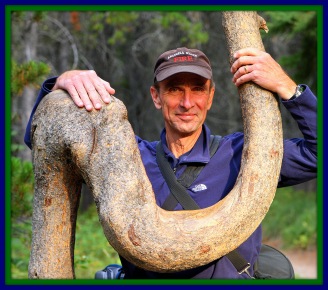
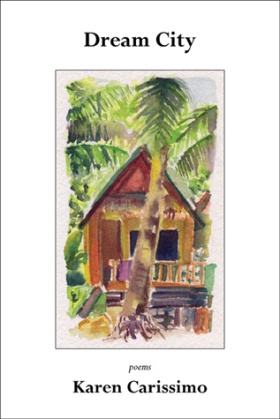

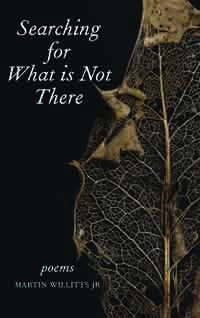
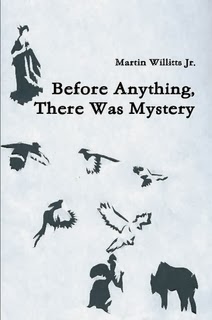
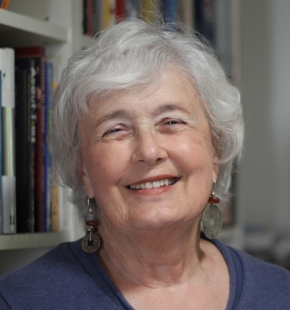
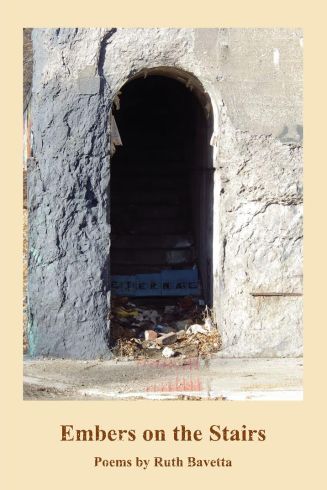
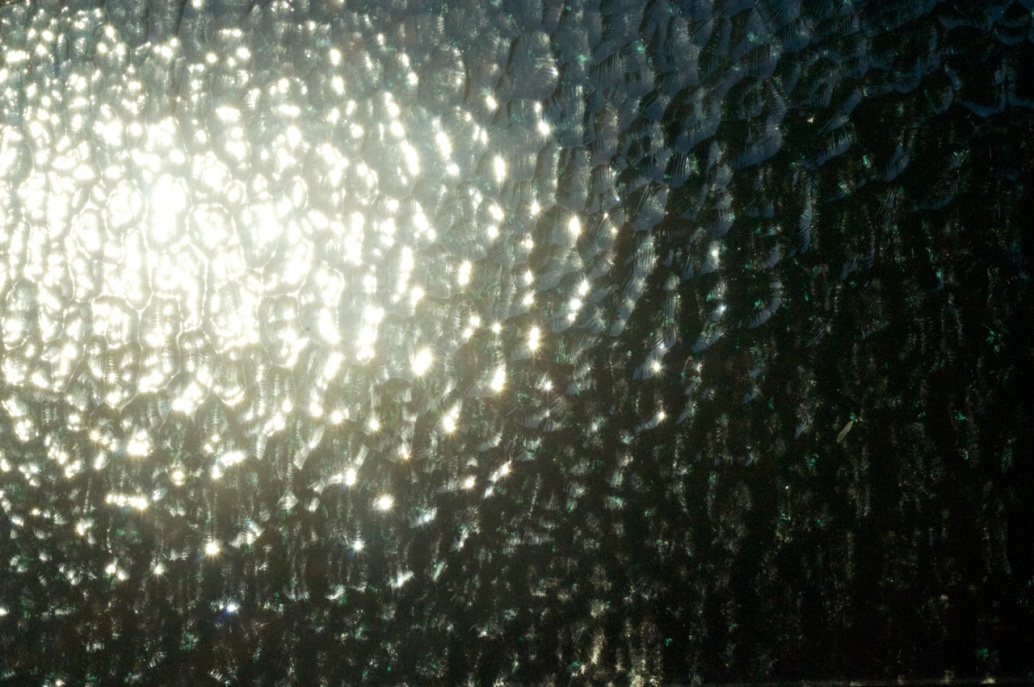
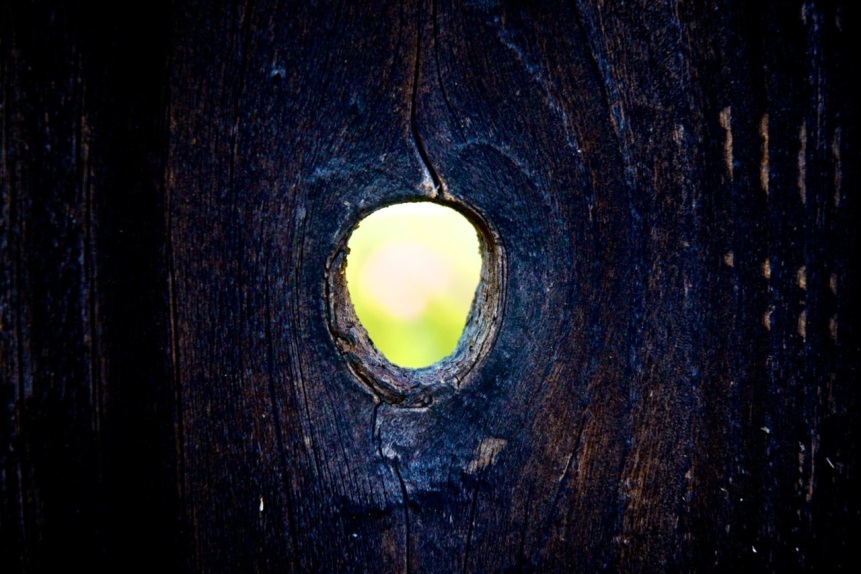
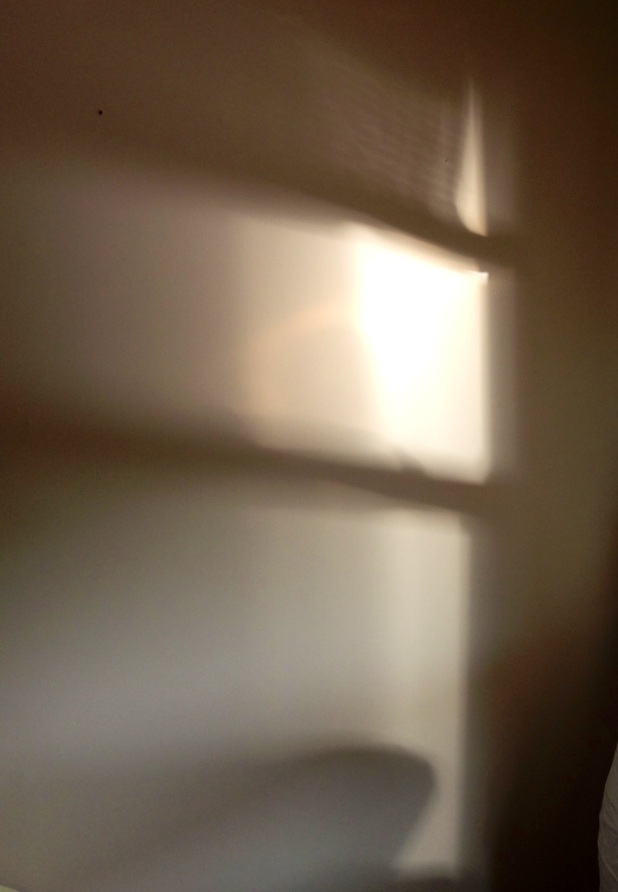

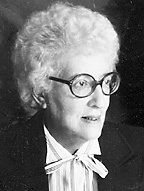

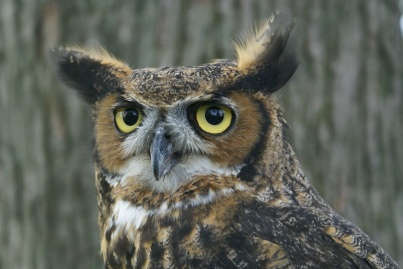
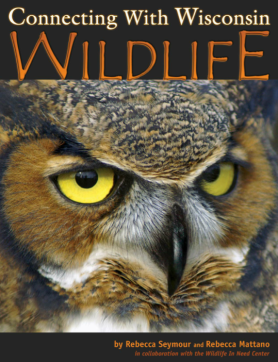
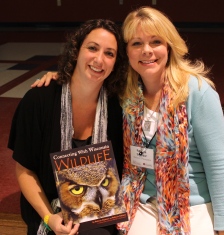
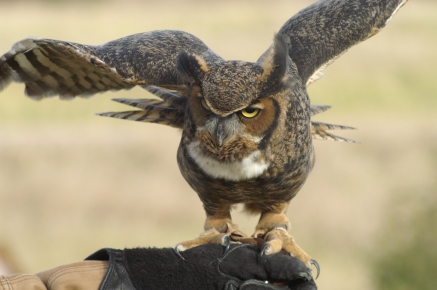
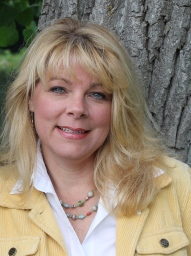
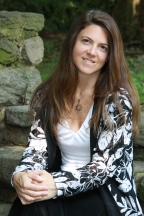

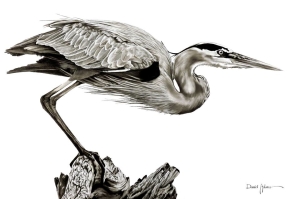
Pingback: Blue Heron Speaks - Featured Poet » Rachel Dacus
Pingback: The December 2017 Blue Heron Speaks Featured Author is Chris Abbate! | Blue Heron Review
Pingback: The January 2018 Blue Heron Speaks Featured Author is Michael Hettich! | Blue Heron Review
Pingback: The February 2018 Blue Heron Speaks Featured Author is Yvonne Stephens! | Blue Heron Review
Pingback: The Blue Heron Speaks Featured Author for March 2018 is Rosalie Sanara Petrouske! | Blue Heron Review
Pingback: Happy National Poetry Month! The April 2018 Blue Heron Speaks Featured Author is Lucille Clifton | Blue Heron Review
Pingback: The Blue Heron Speaks Featured Author for May 2018 is Diana Raab! | Blue Heron Review
Pingback: The Blue Heron Speaks Featured Author for June 2018 is Darren C Demaree! | Blue Heron Review
Pingback: Blue Heron Review Recent News | Blue Heron Review
Pingback: The Blue Heron Speaks Featured Author for September 2018 is Diane Sahms-Guarnieri! | Blue Heron Review
Pingback: The Blue Heron Speaks Featured Author for October 2018 is Linda C Ehrlich! | Blue Heron Review
Pingback: The November 2018 Blue Heron Speaks Featured Author is Olga Garcia Echeverría! | Blue Heron Review
Pingback: The Blue Heron Speaks Featured Author page will be on hiatus until January 2019. Warmest wishes this holiday season from Blue Heron Review! | Blue Heron Review
Pingback: Happy New Year! The January 2019 Blue Heron Speaks Featured Author is William Stafford (1914-1993) | Blue Heron Review
Pingback: The February Blue Heron Speaks Featured Author is Kersten Christianson! | Blue Heron Review
Pingback: Blue Heron Speaks: February Author – Kersten Christianson
Pingback: The March Blue Heron Speaks Featured Author is Lois Roma-Deeley! | Blue Heron Review
Pingback: Happy National Poetry Month from Blue Heron Review! Edith Sitwell is our April 2019 Featured Author! | Blue Heron Review
Pingback: The June 2019 Blue Heron Review Featured Author is Shawn Aveningo Sanders! | Blue Heron Review
Pingback: The September 2019 Blue Heron Review Featured Author is Kai Coggin! | Blue Heron Review
Pingback: The October 2019 Blue Heron Review Featured Author is Marjorie Power | Blue Heron Review
Pingback: The November 2019 Blue Heron Review Featured Author is Kenneth Pobo! | Blue Heron Review
Pingback: The December 2019 Blue Heron Review Featured Author is Jonel Abellanosa | Blue Heron Review
Pingback: The January 2020 Blue Heron Review Featured Author is Josephine Jacobsen / Happy New Year from BHR! | Blue Heron Review
This is amazing!! What a poetry evolution!
Pingback: The March 2020 Blue Heron Review Featured Author is Lorette C. Luzajic! | Blue Heron Review
Pingback: Happy National Poetry Month from Blue Heron Review! | Blue Heron Review